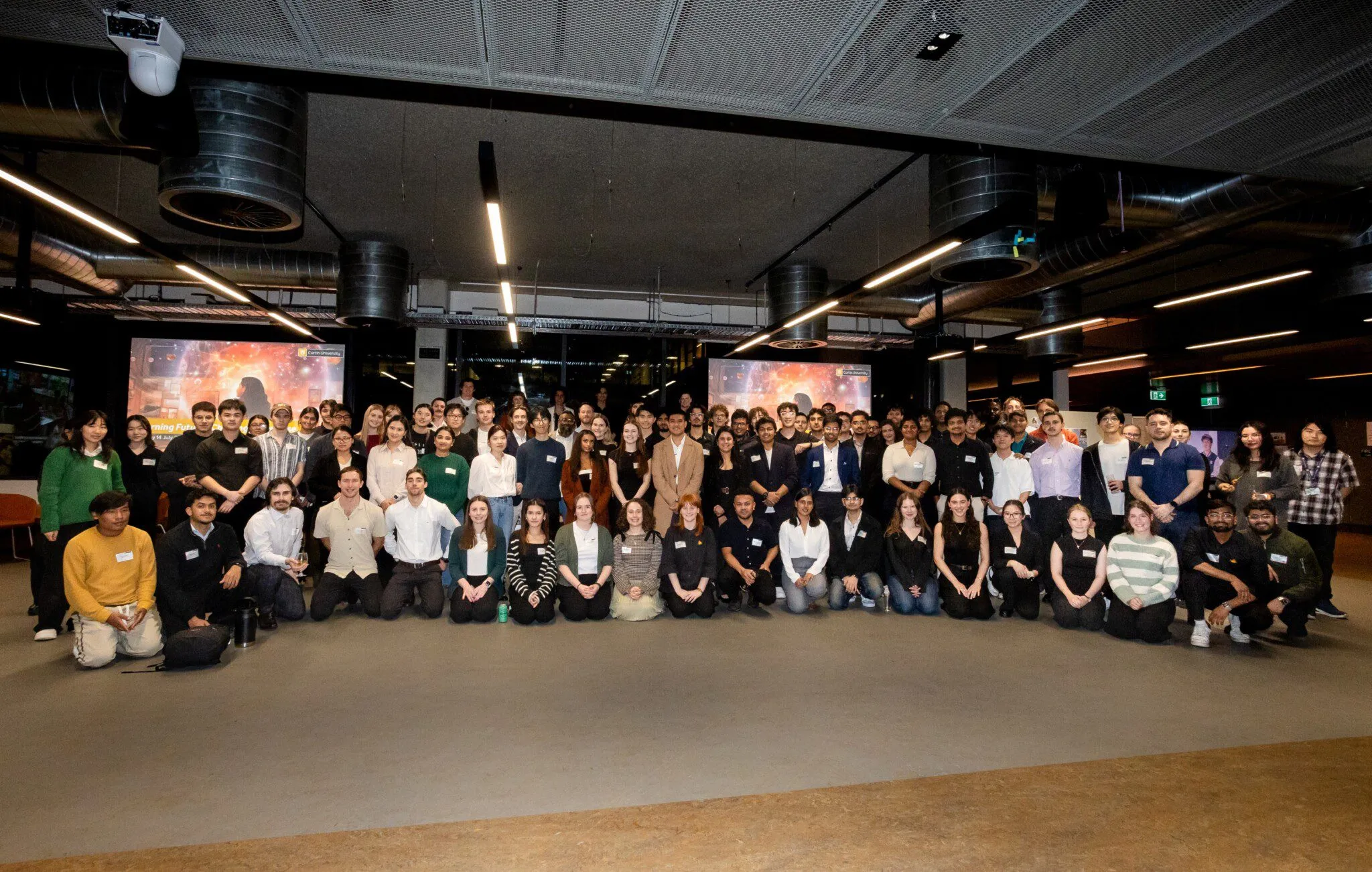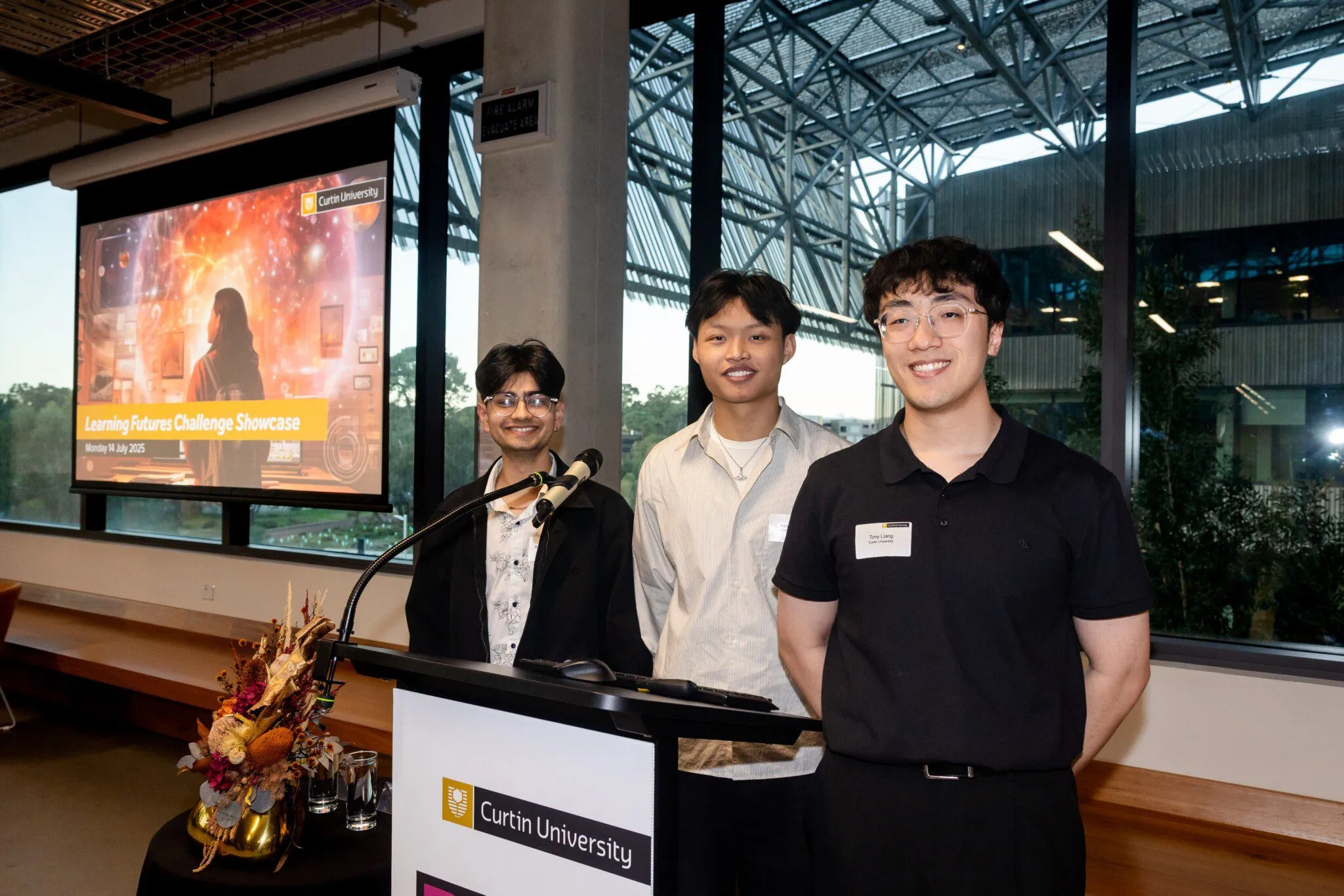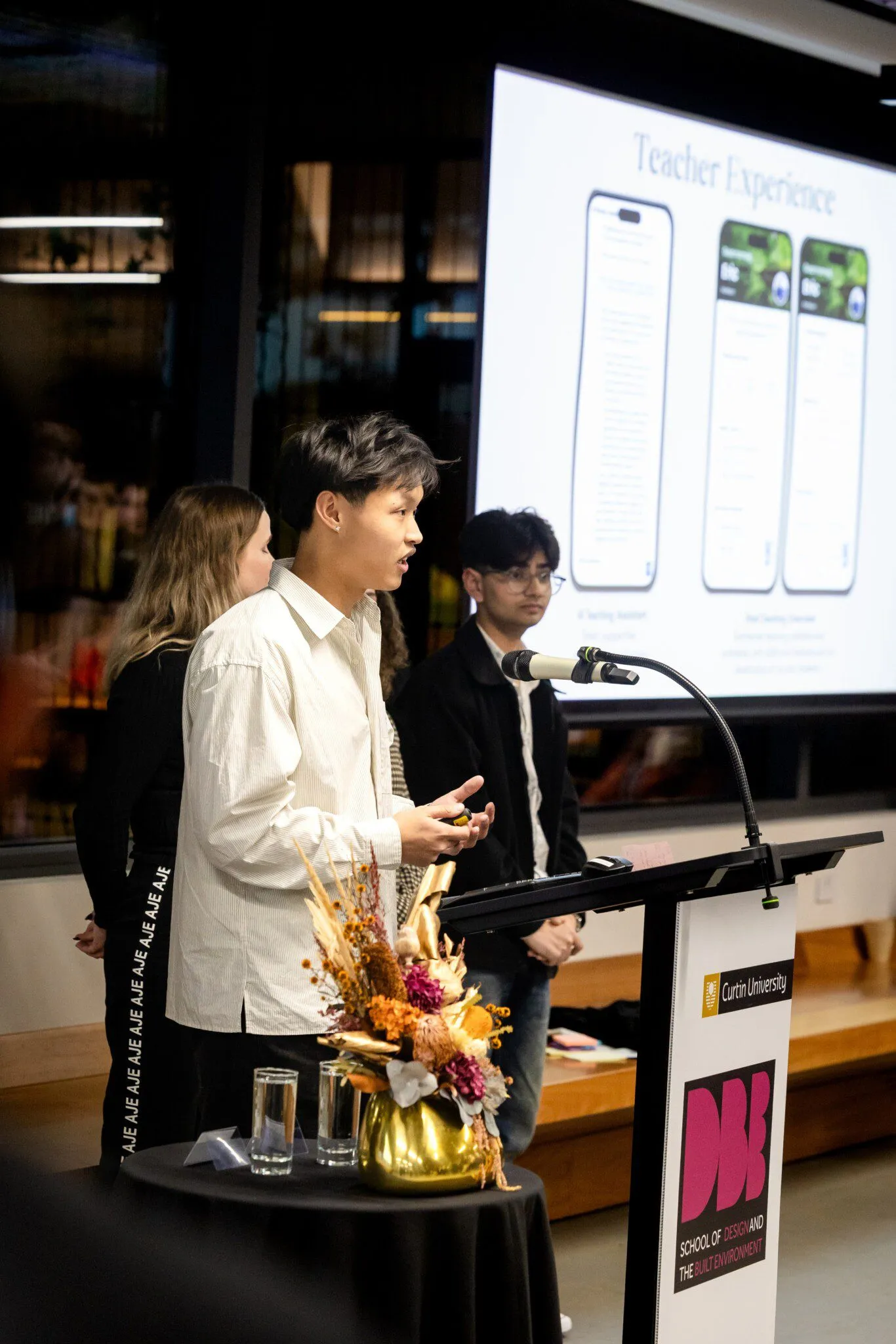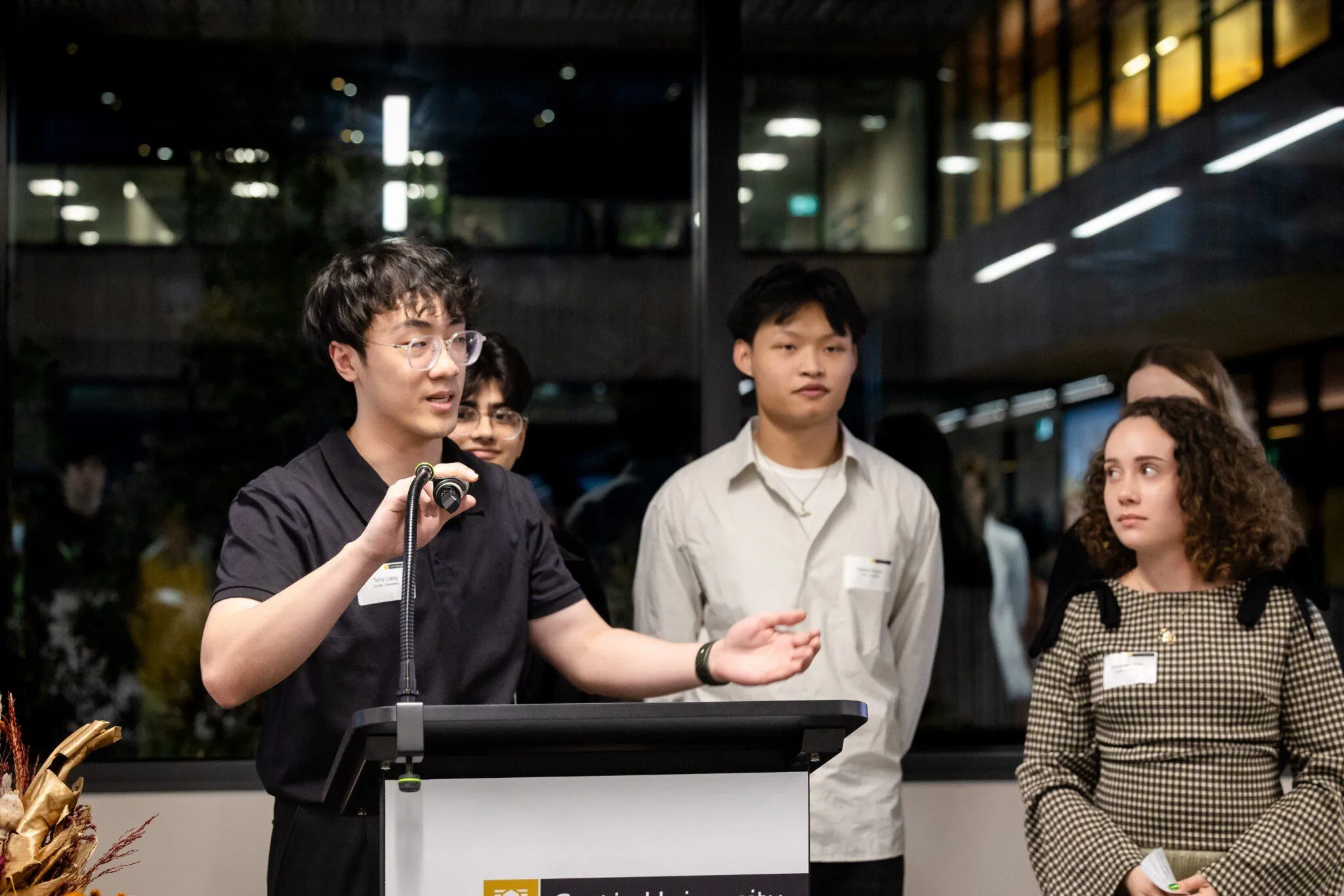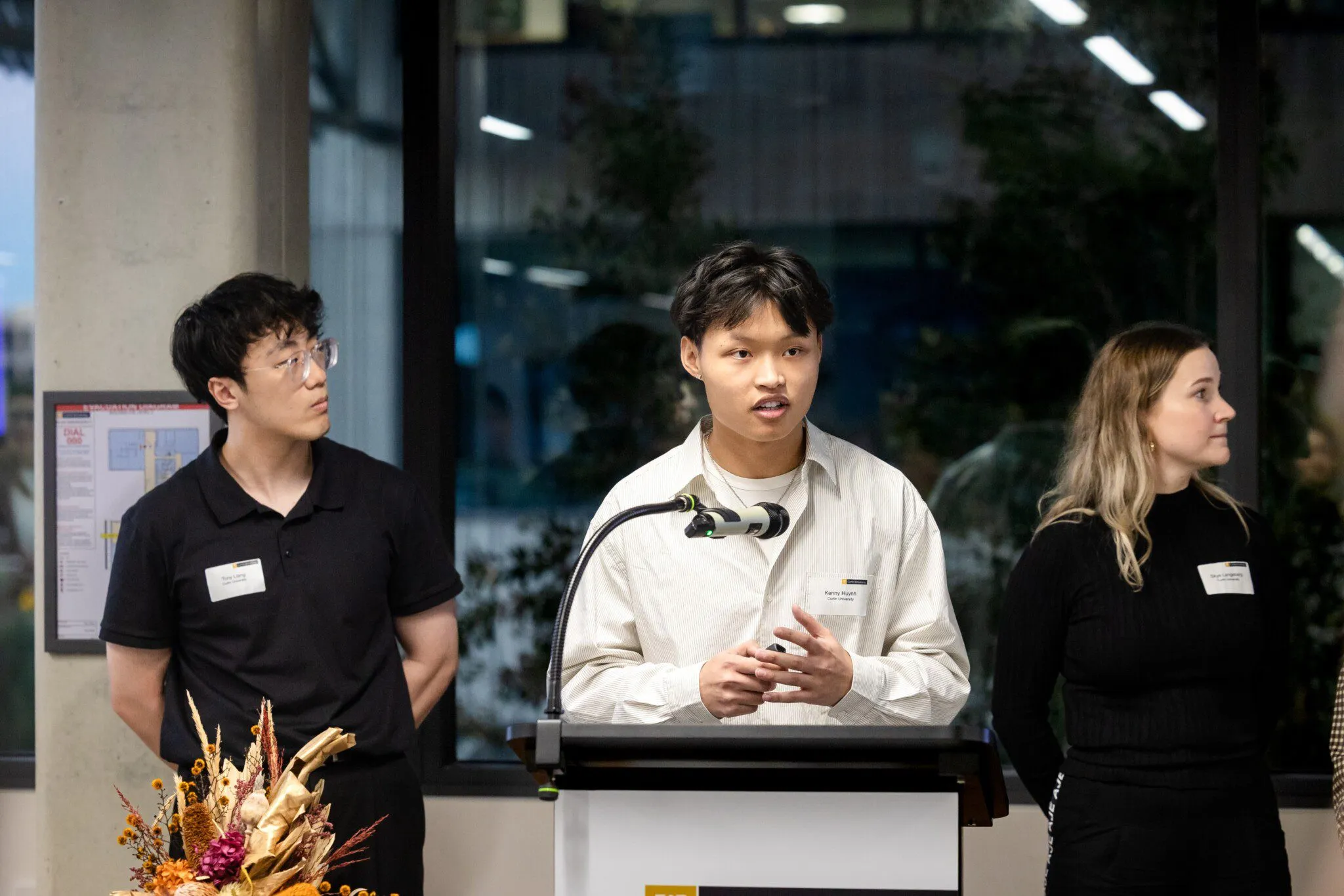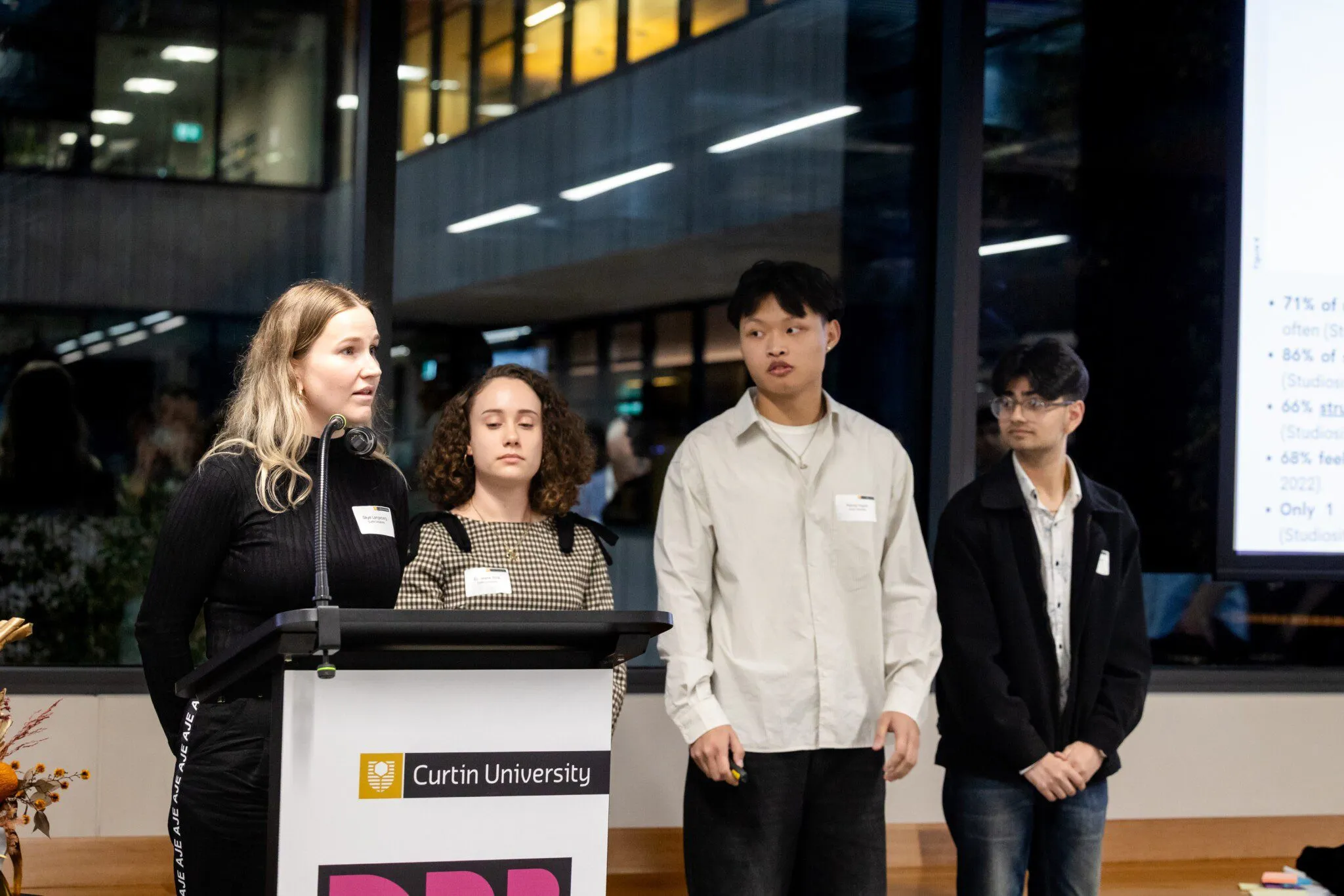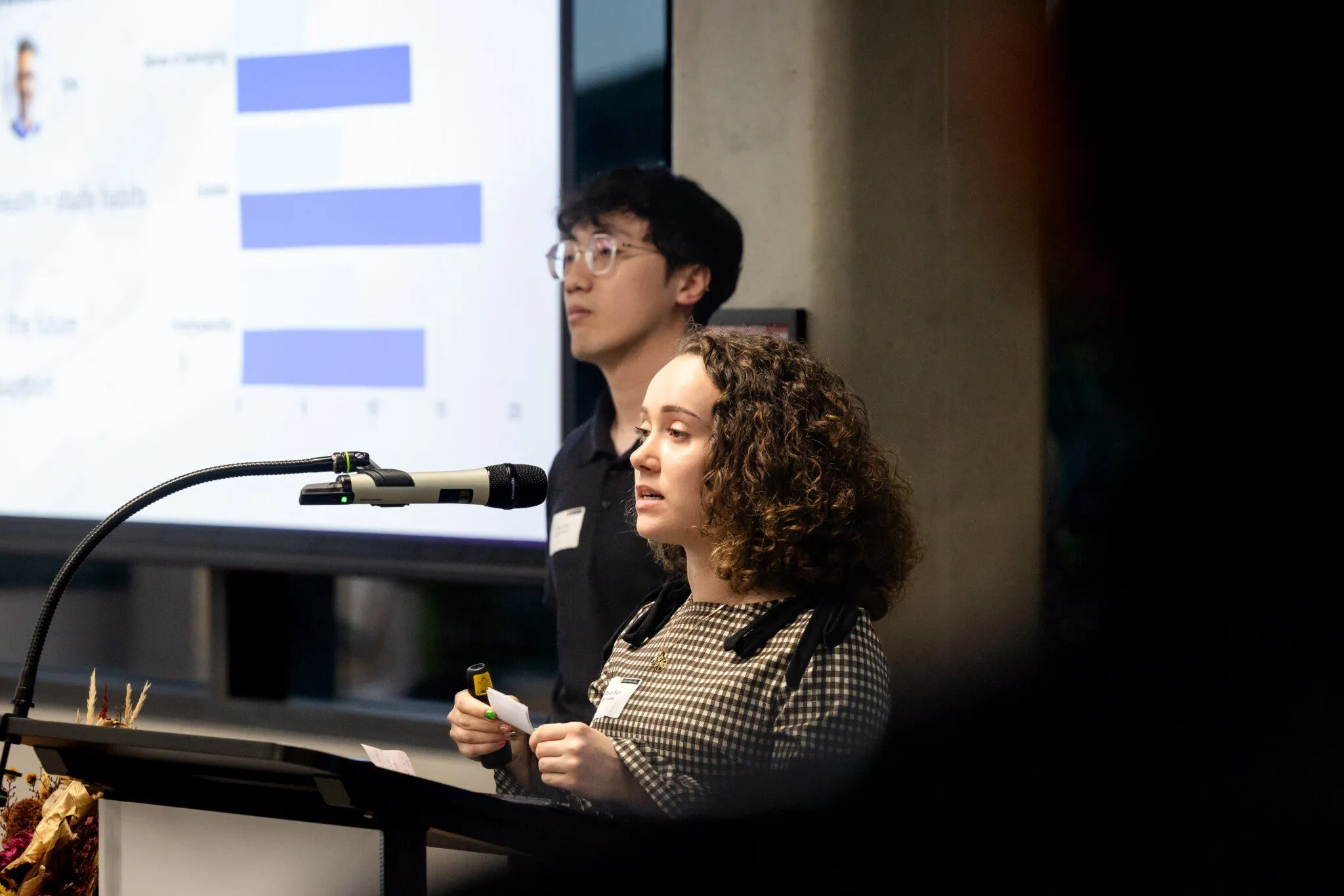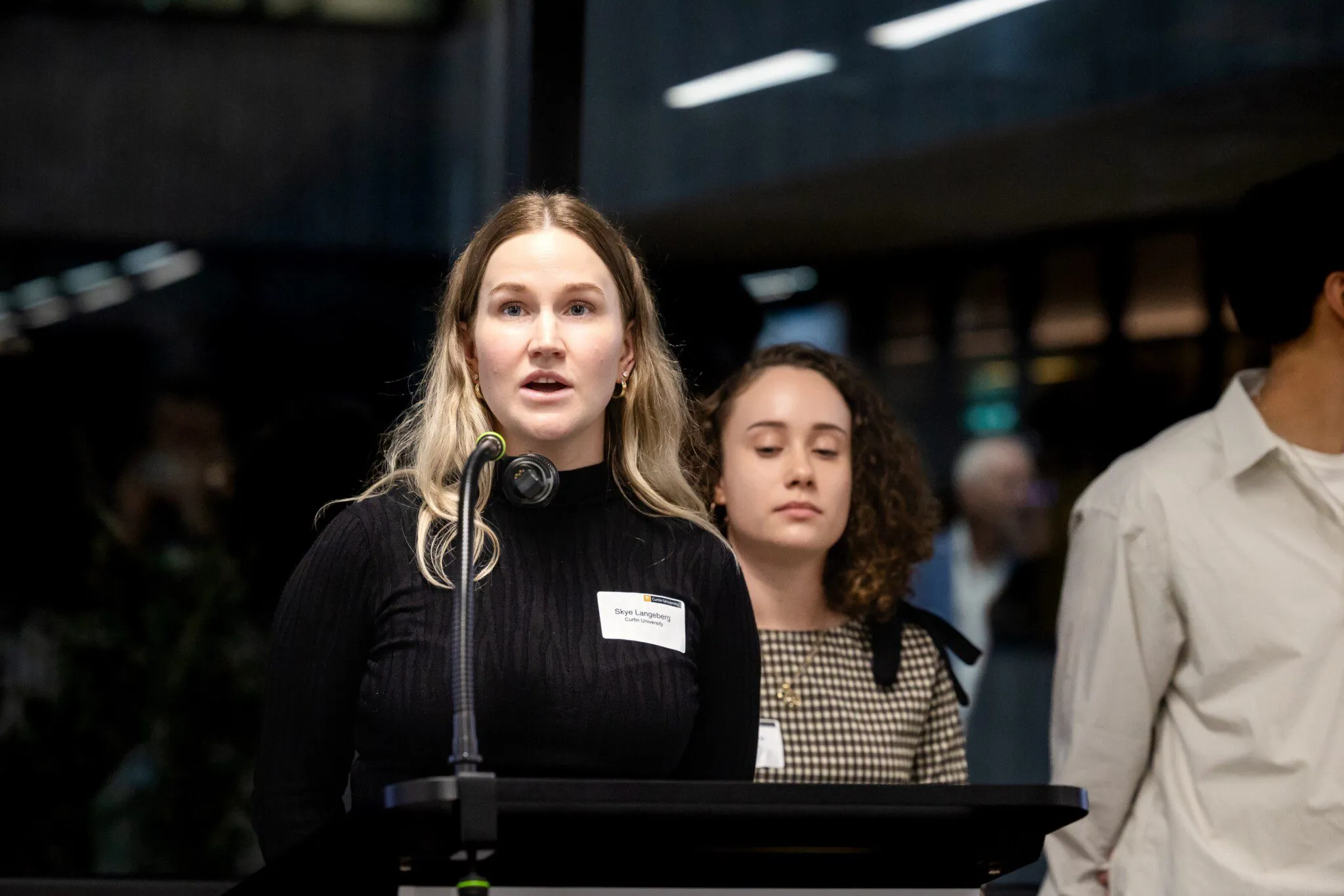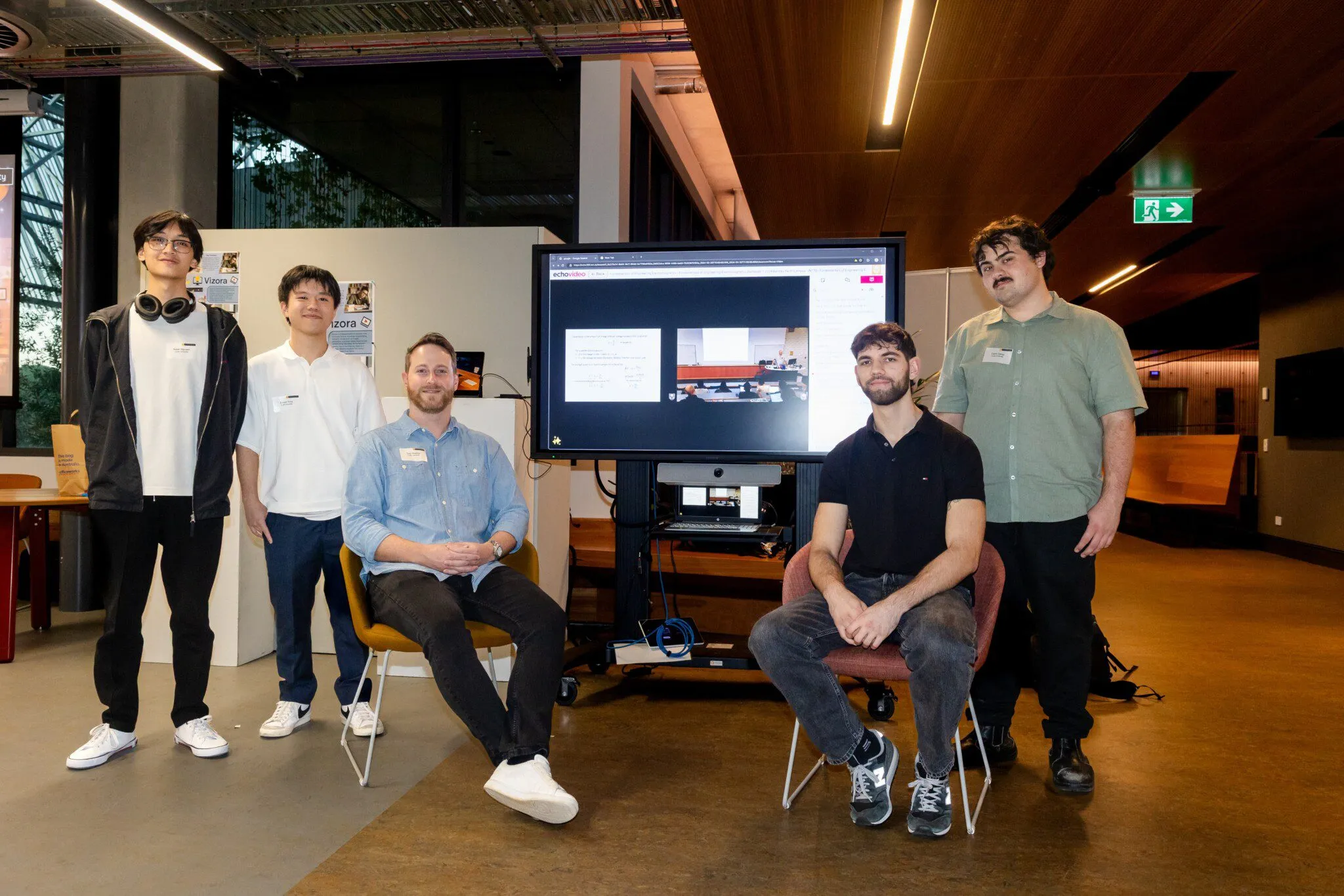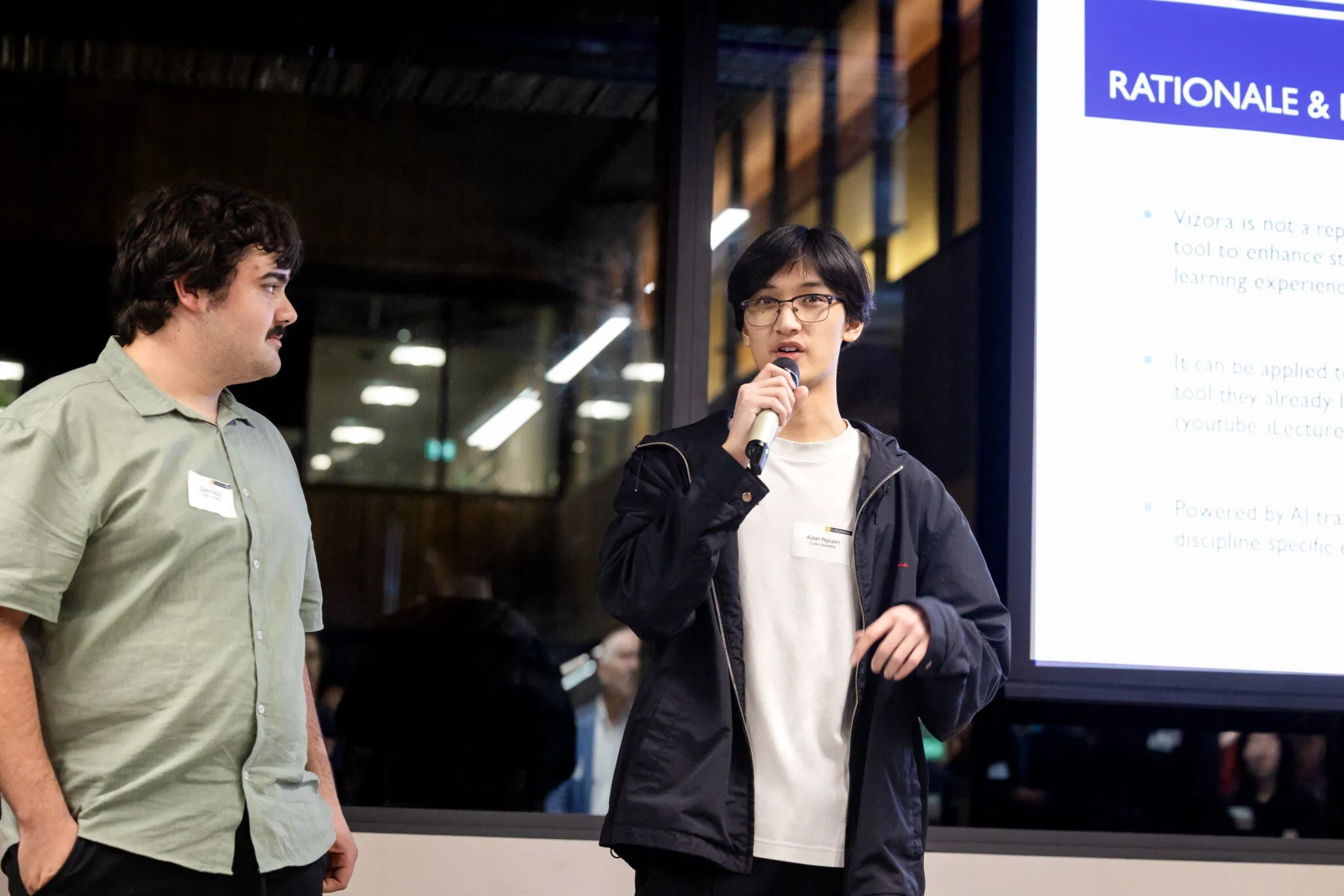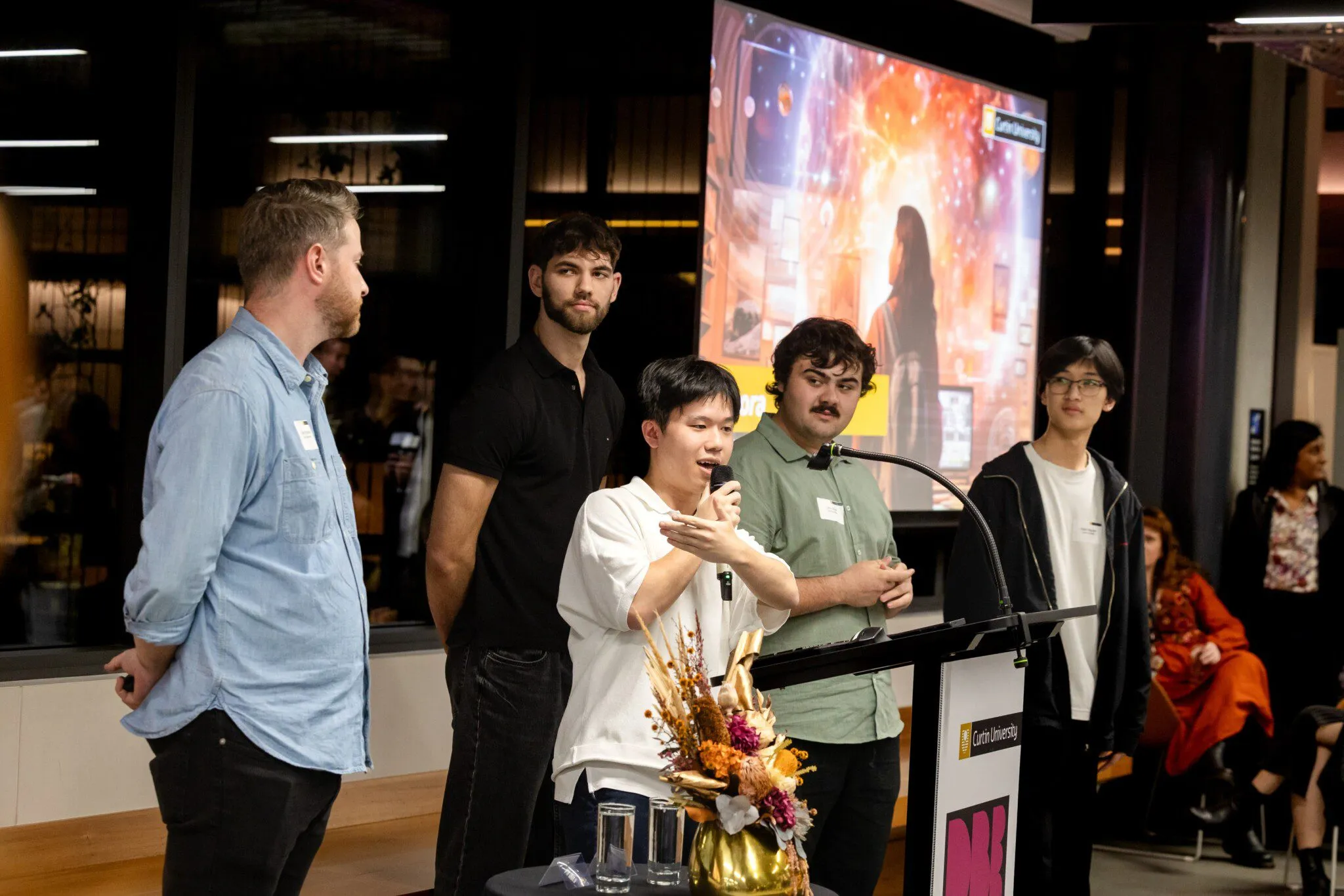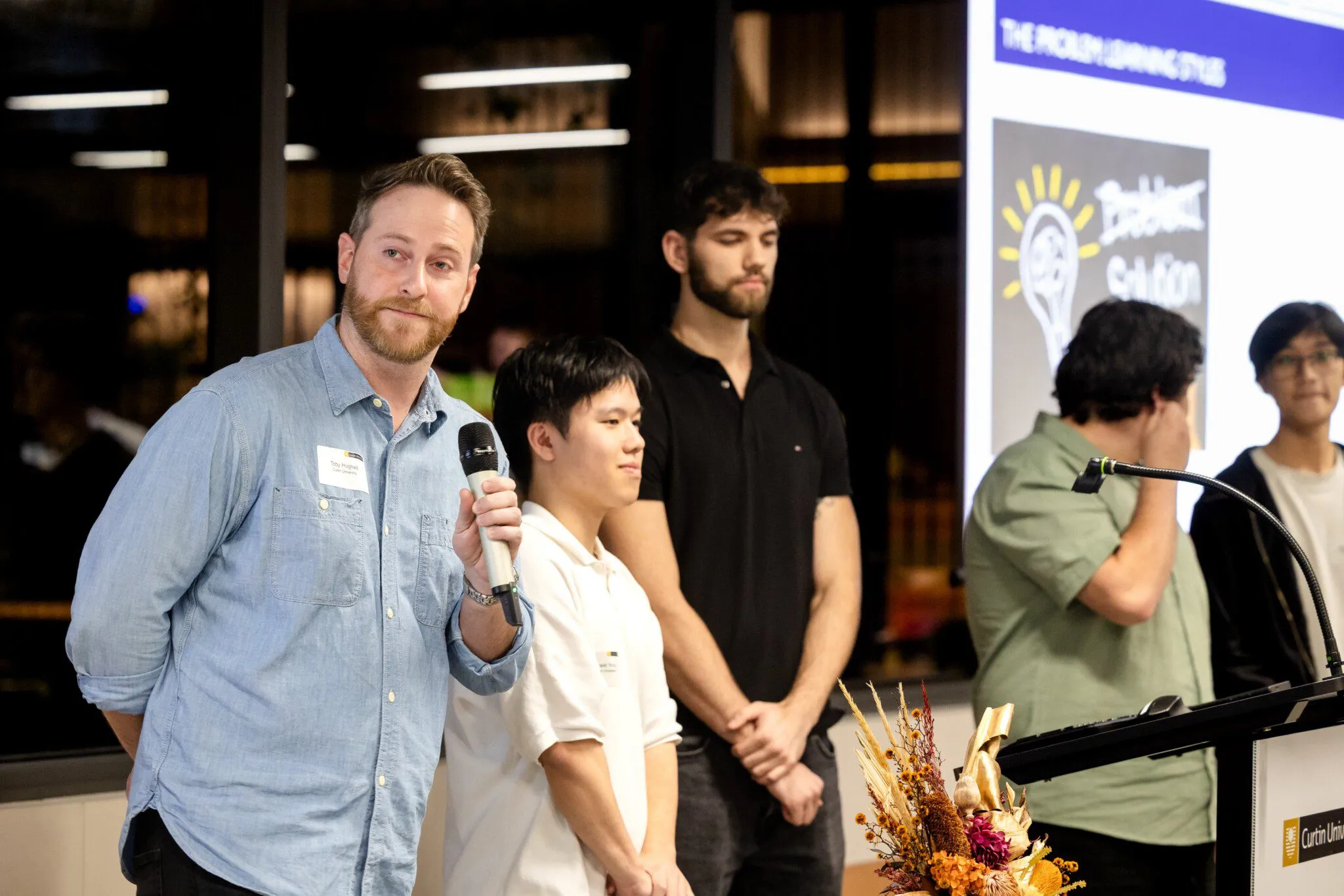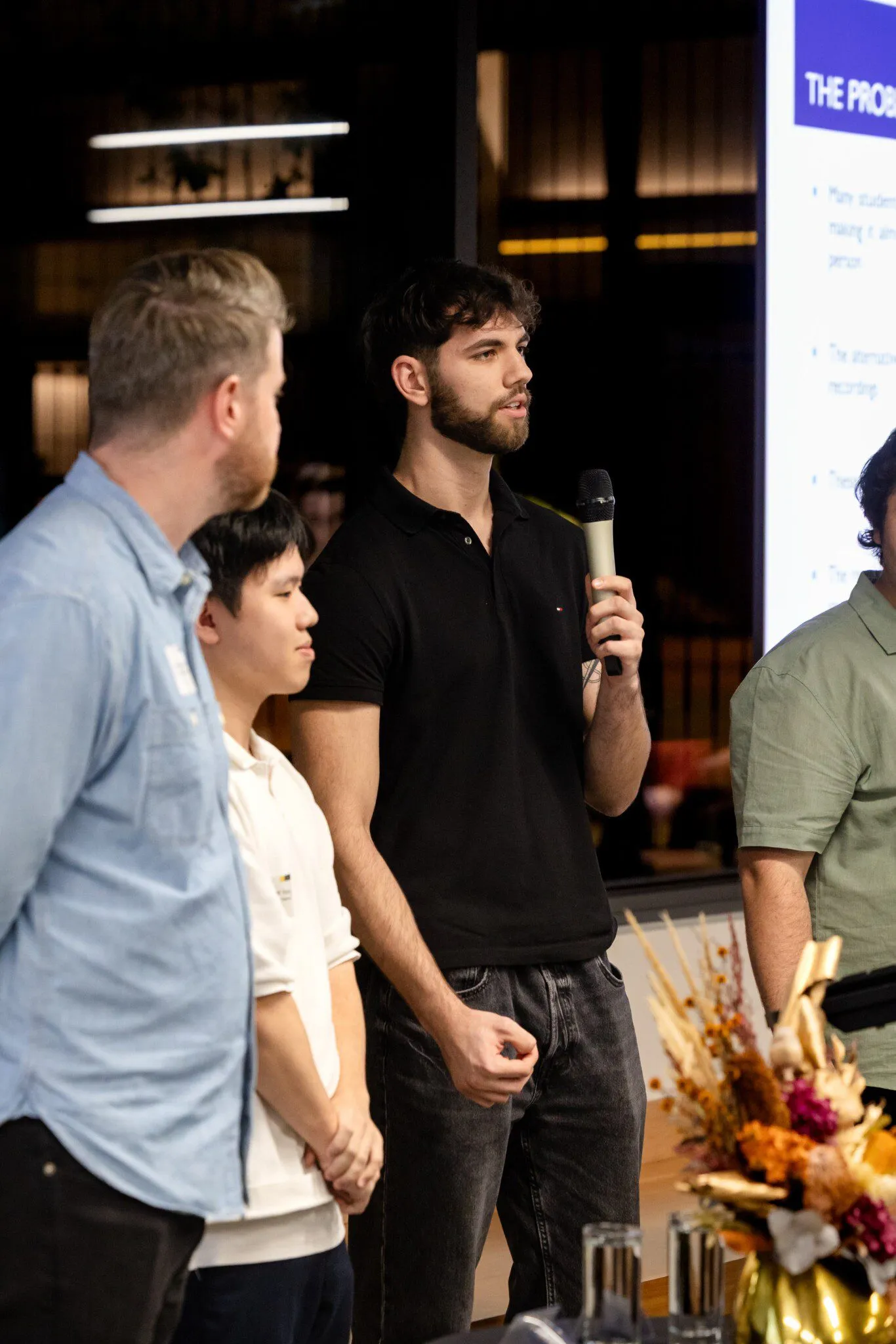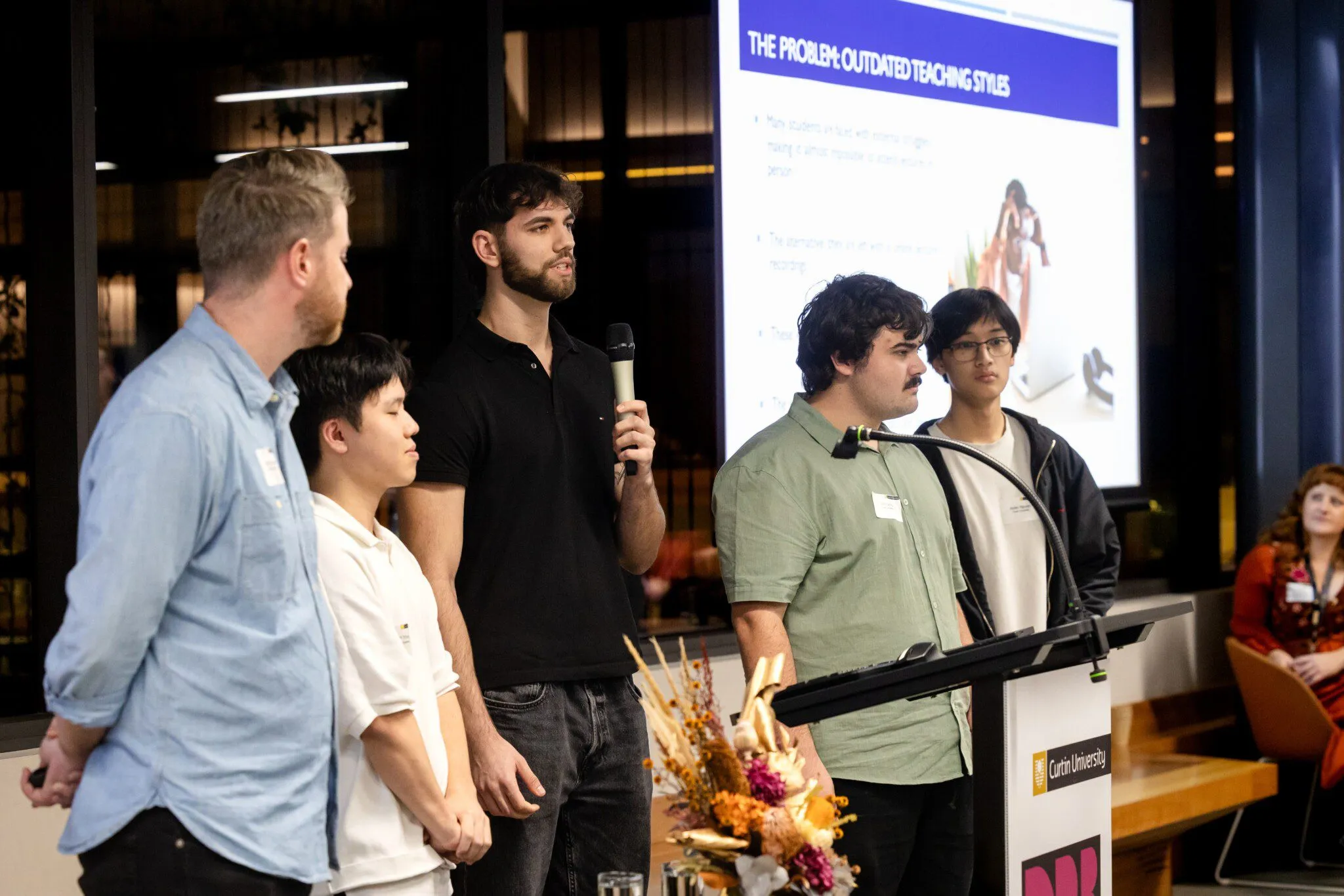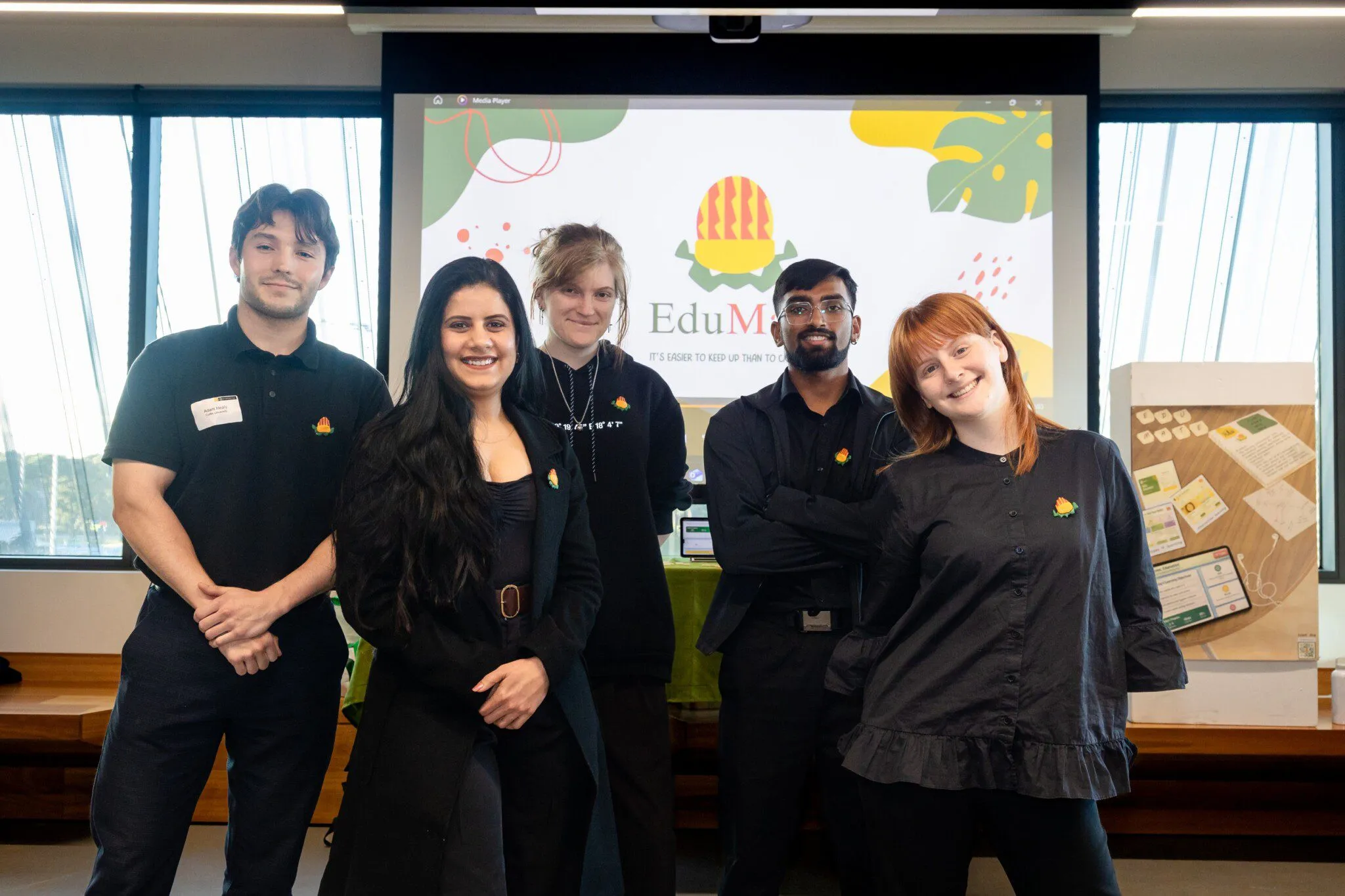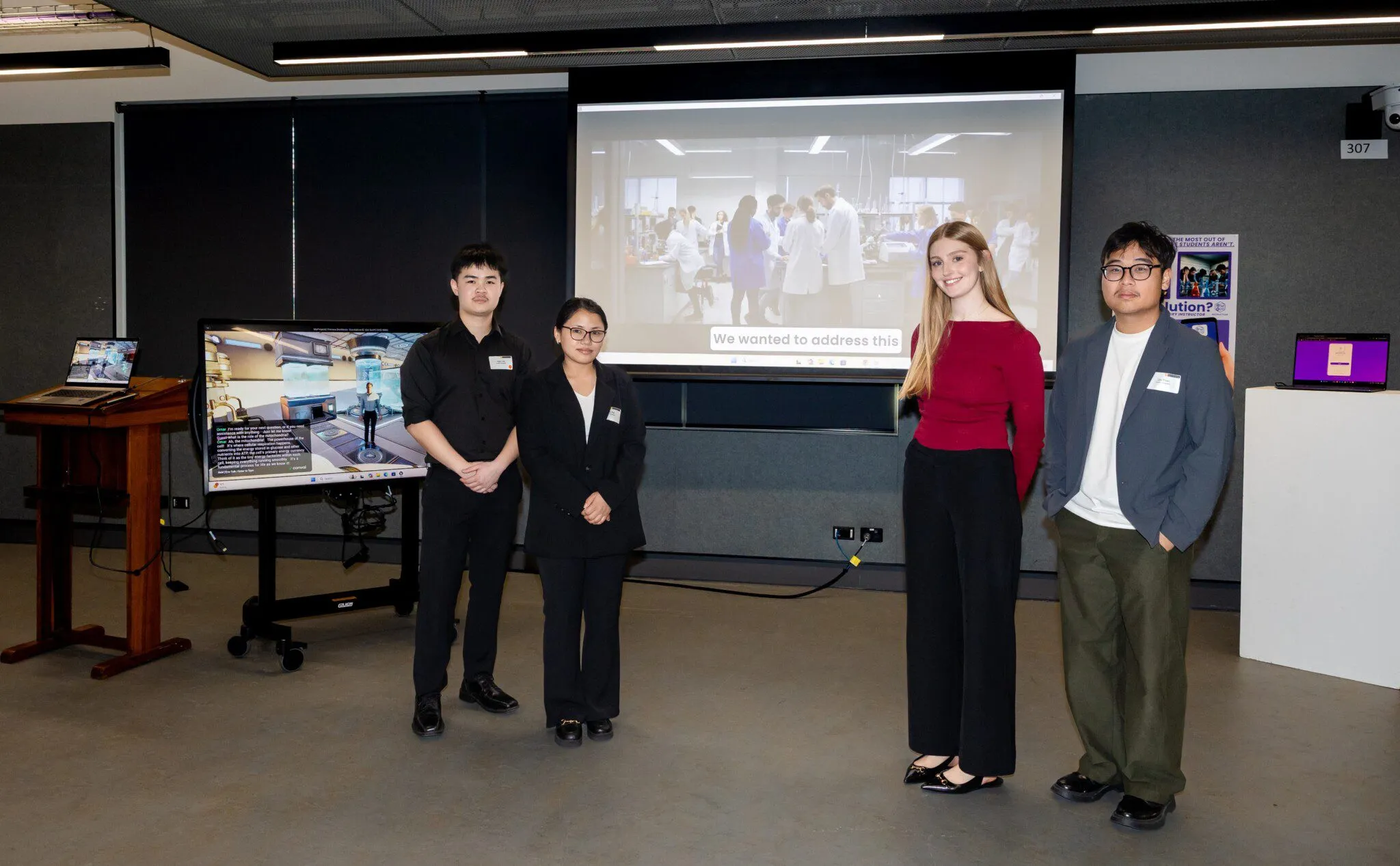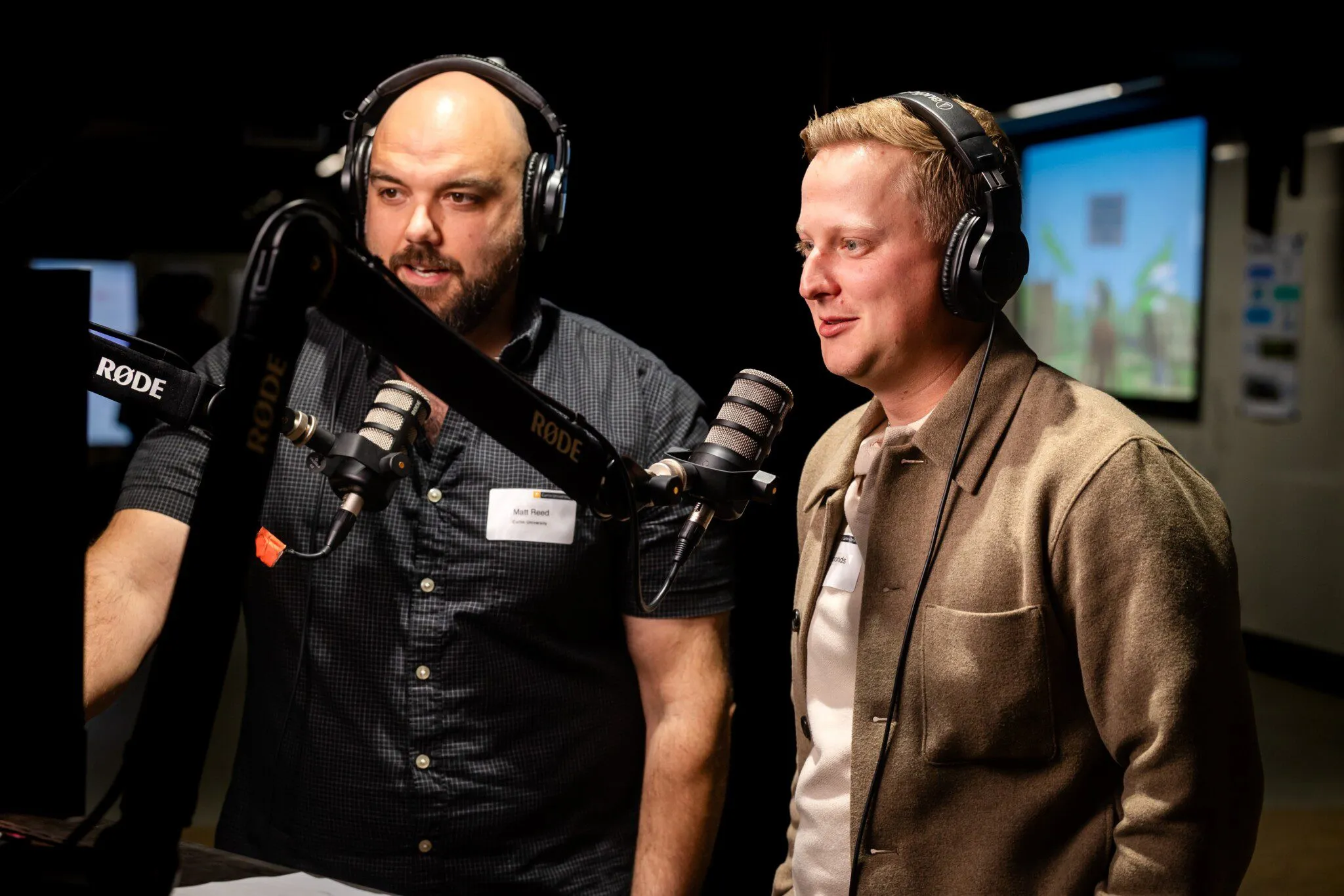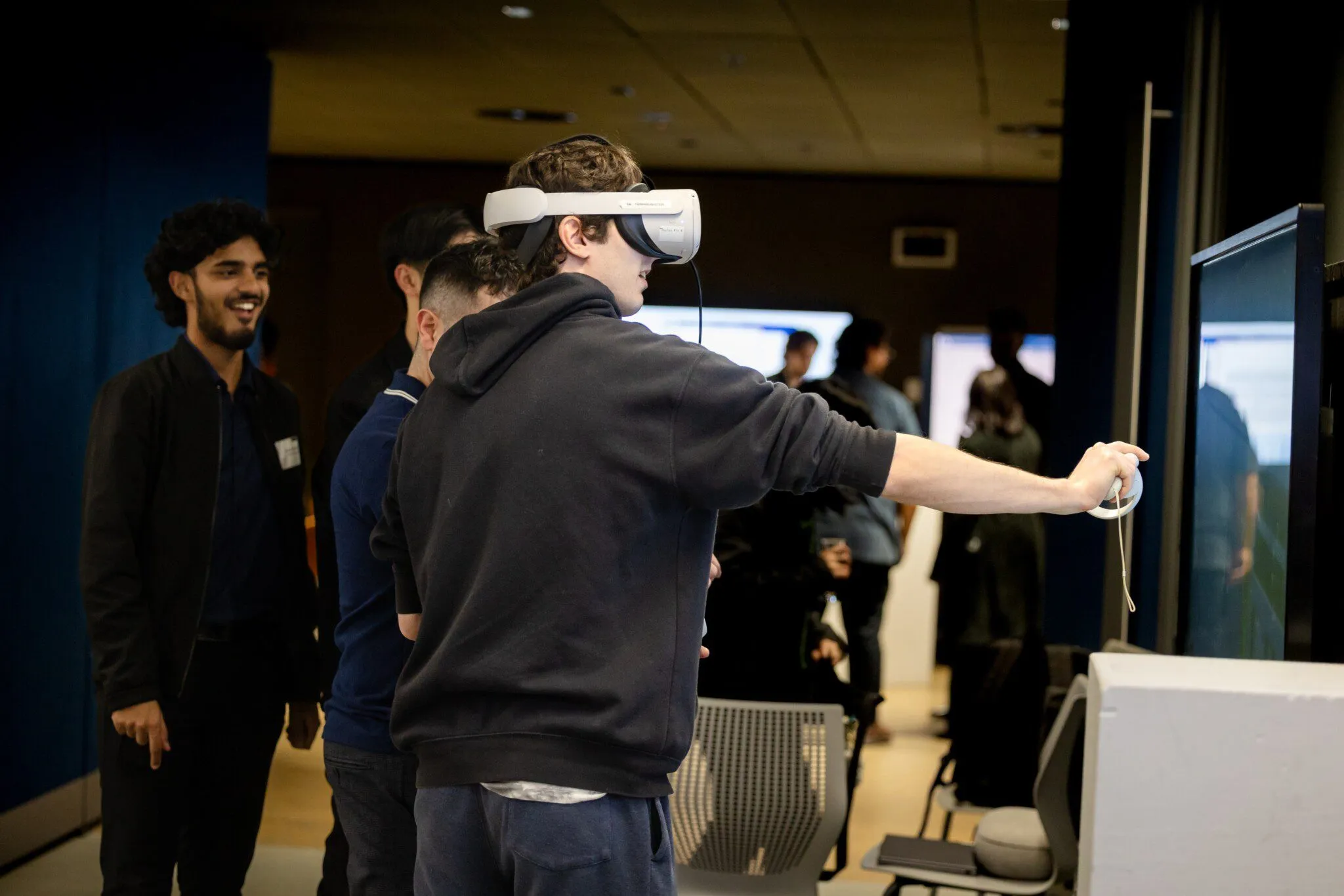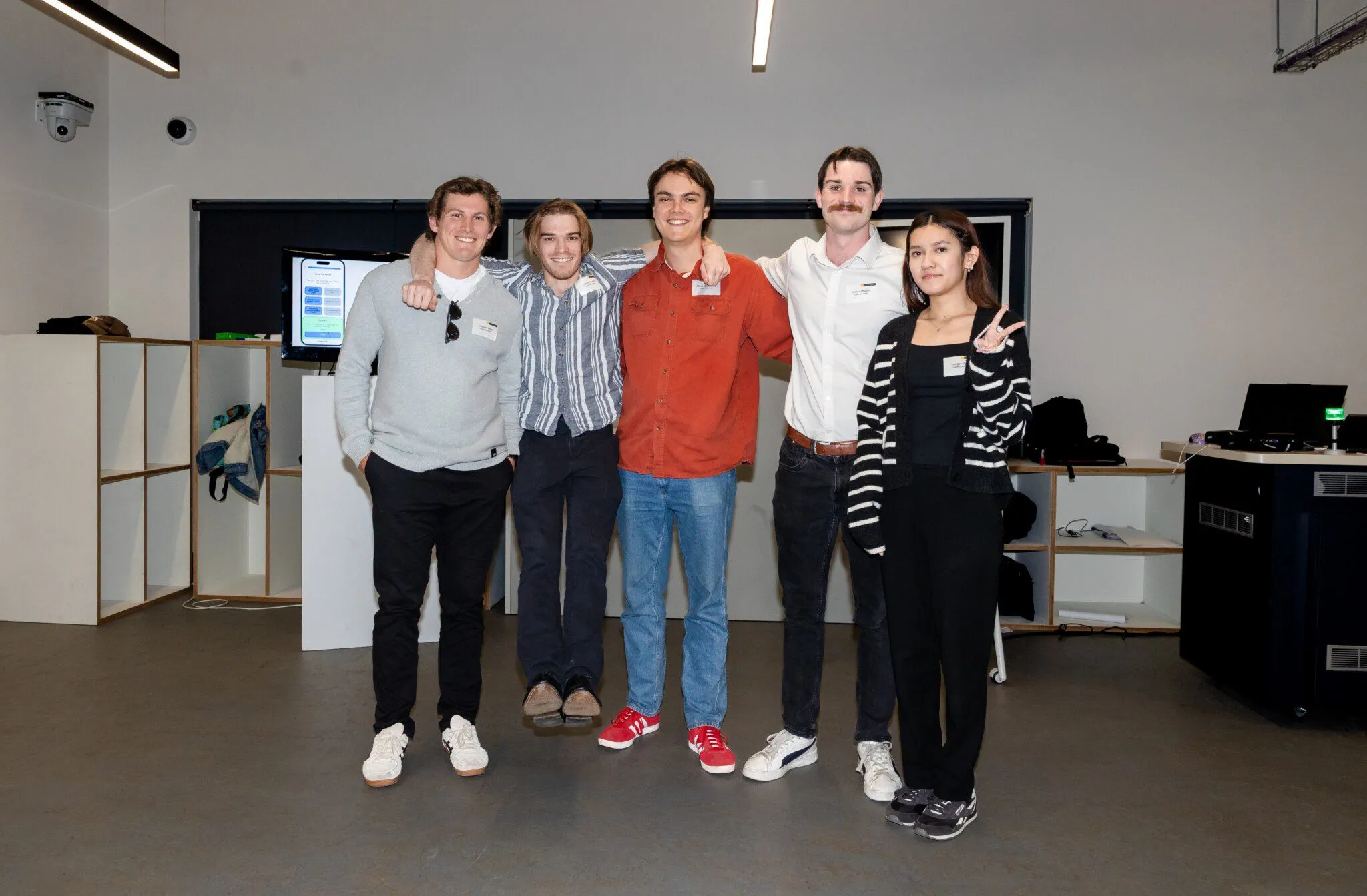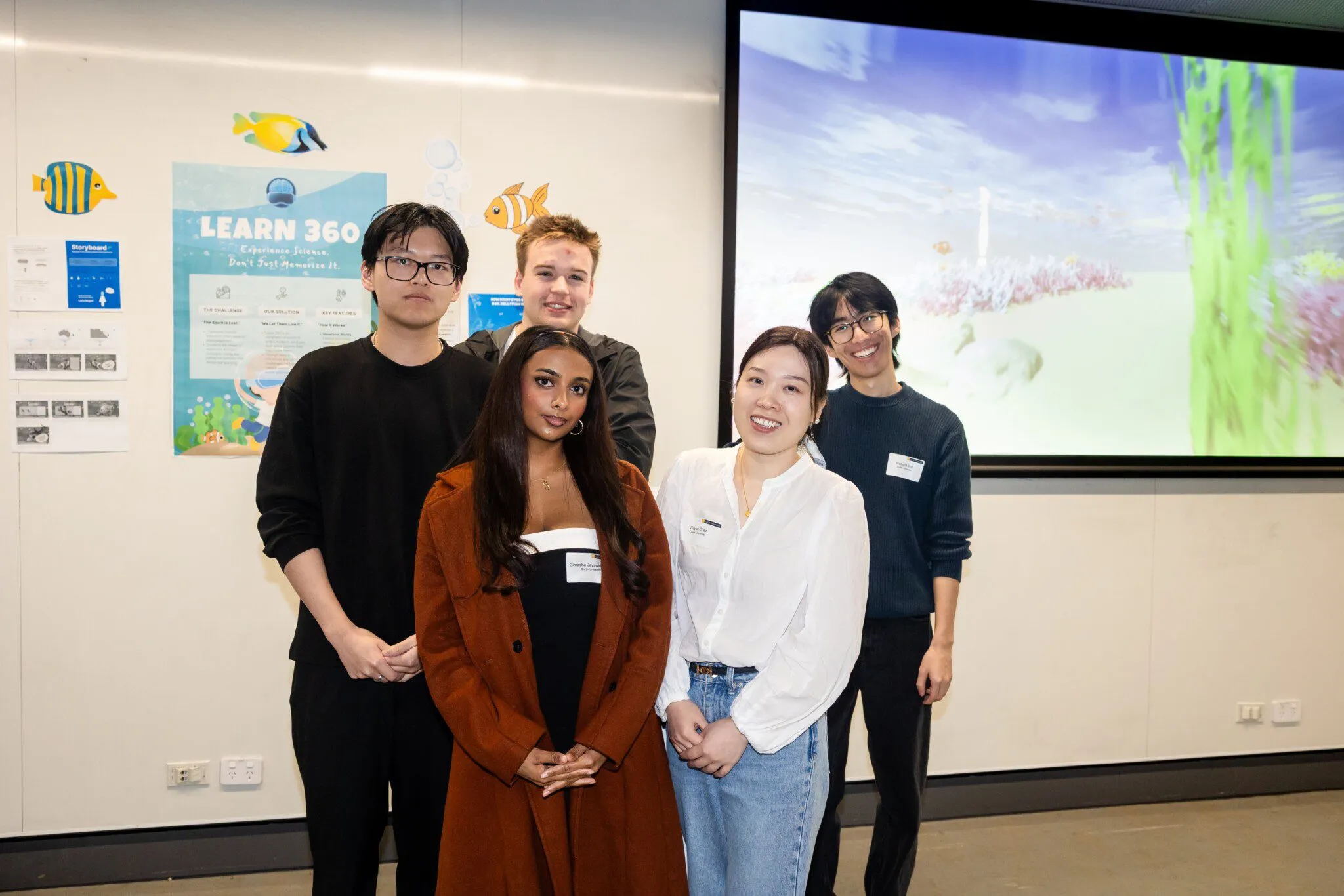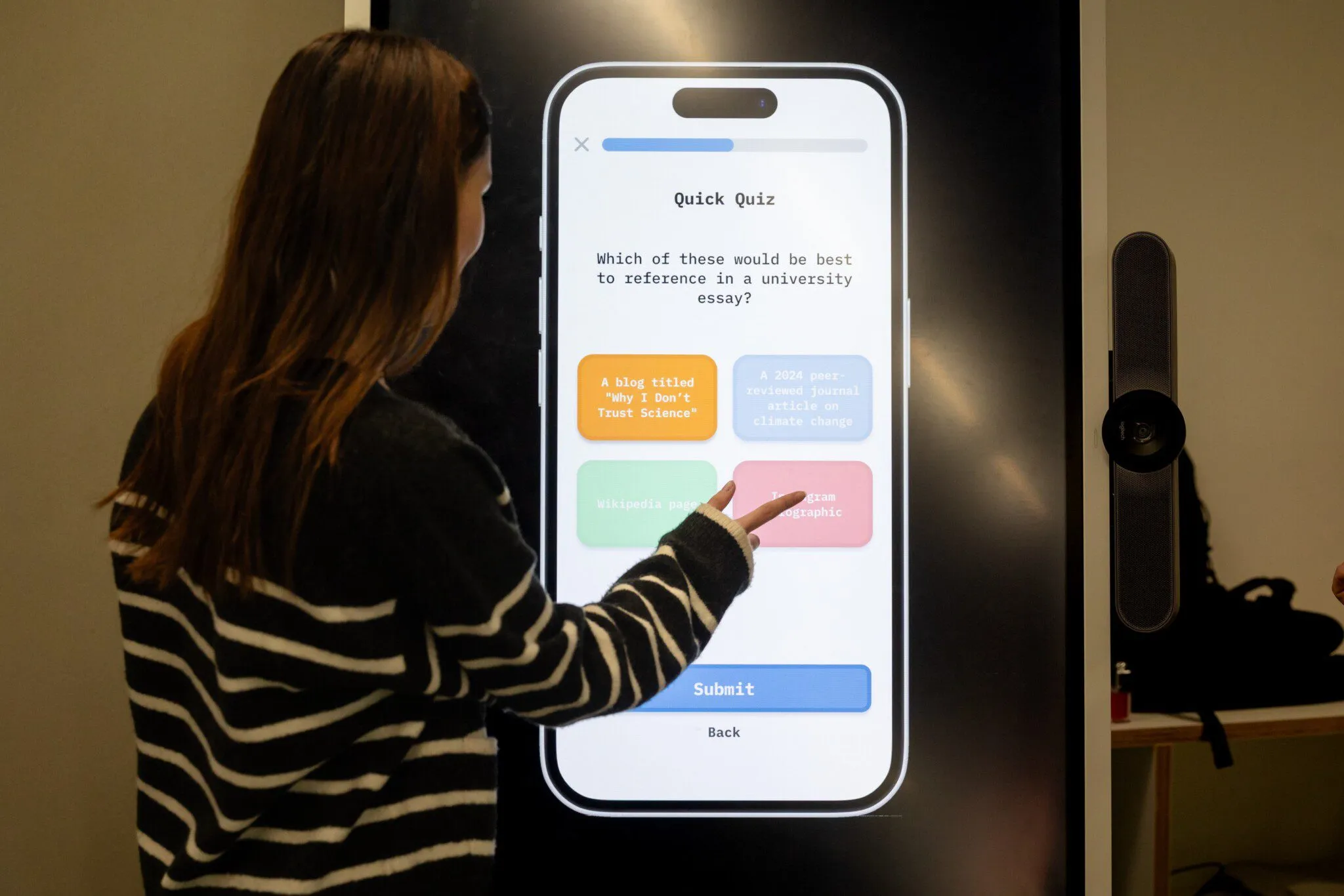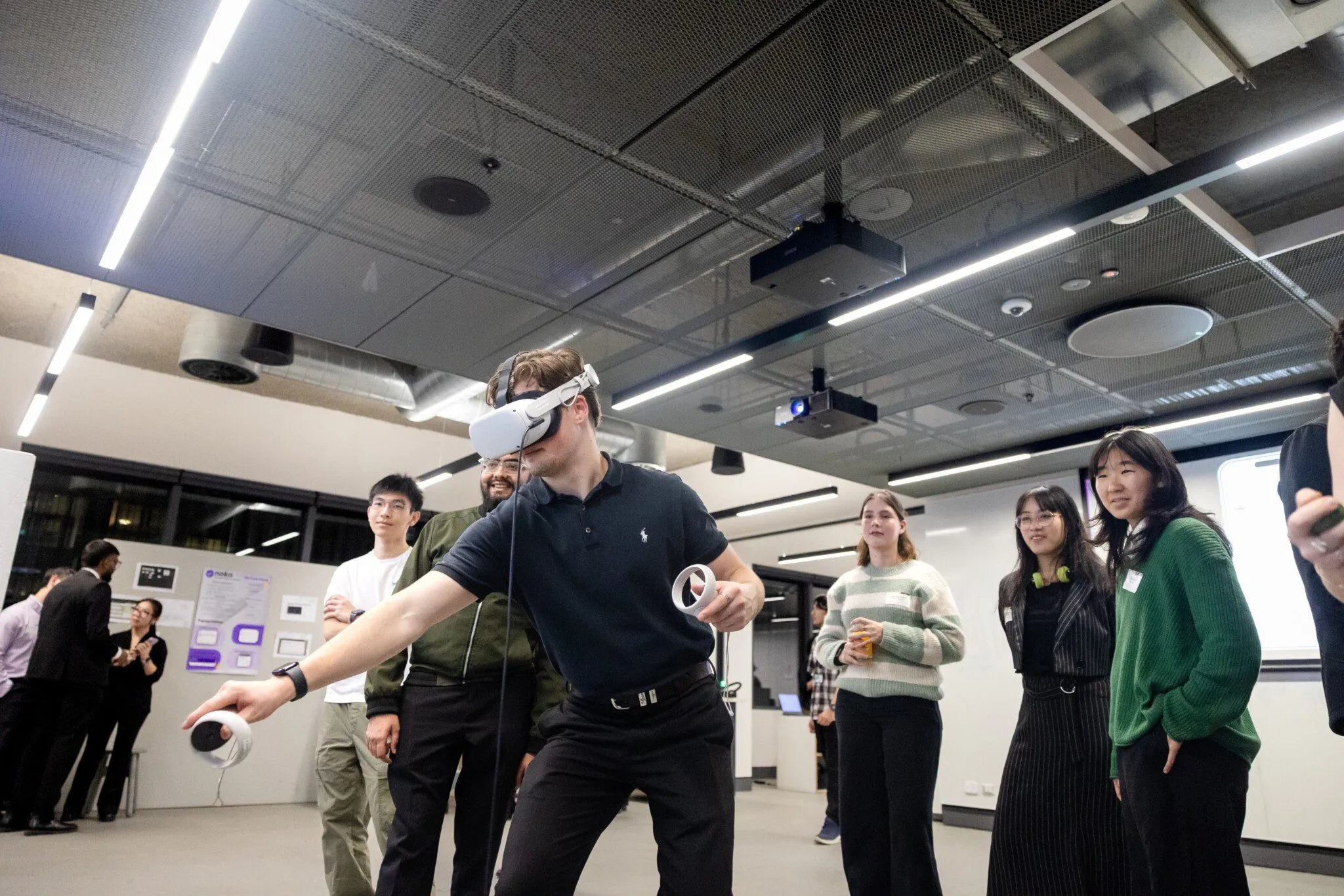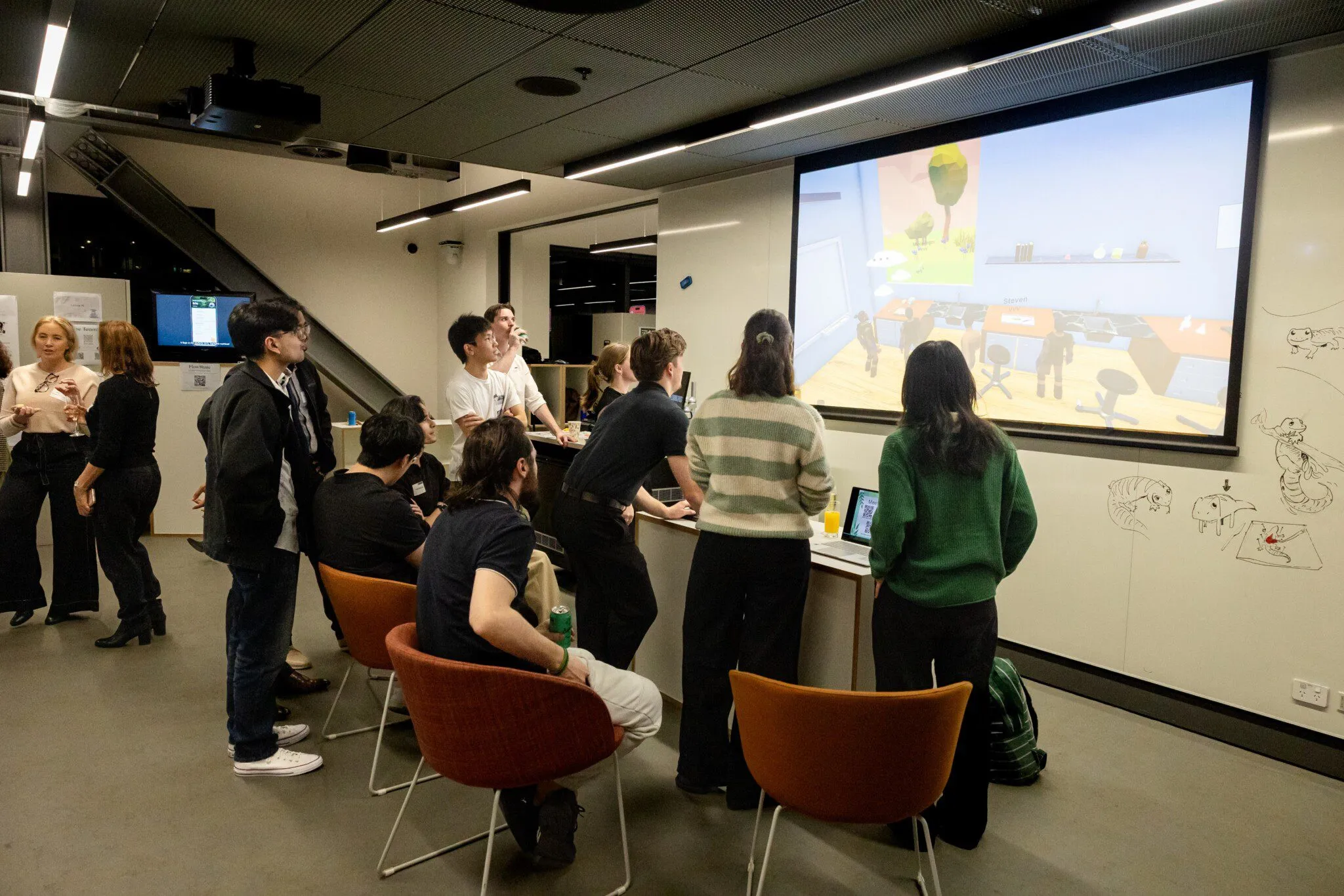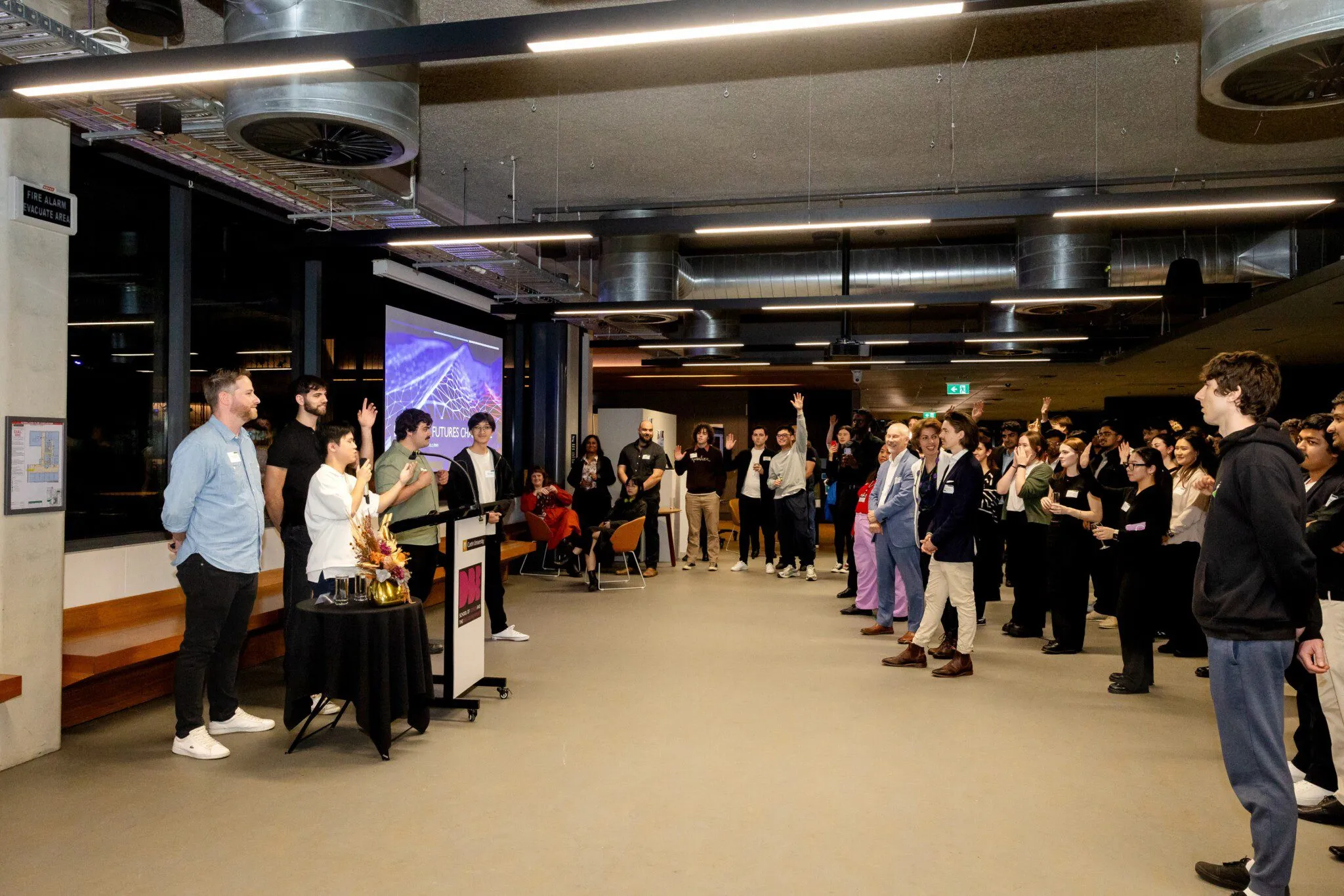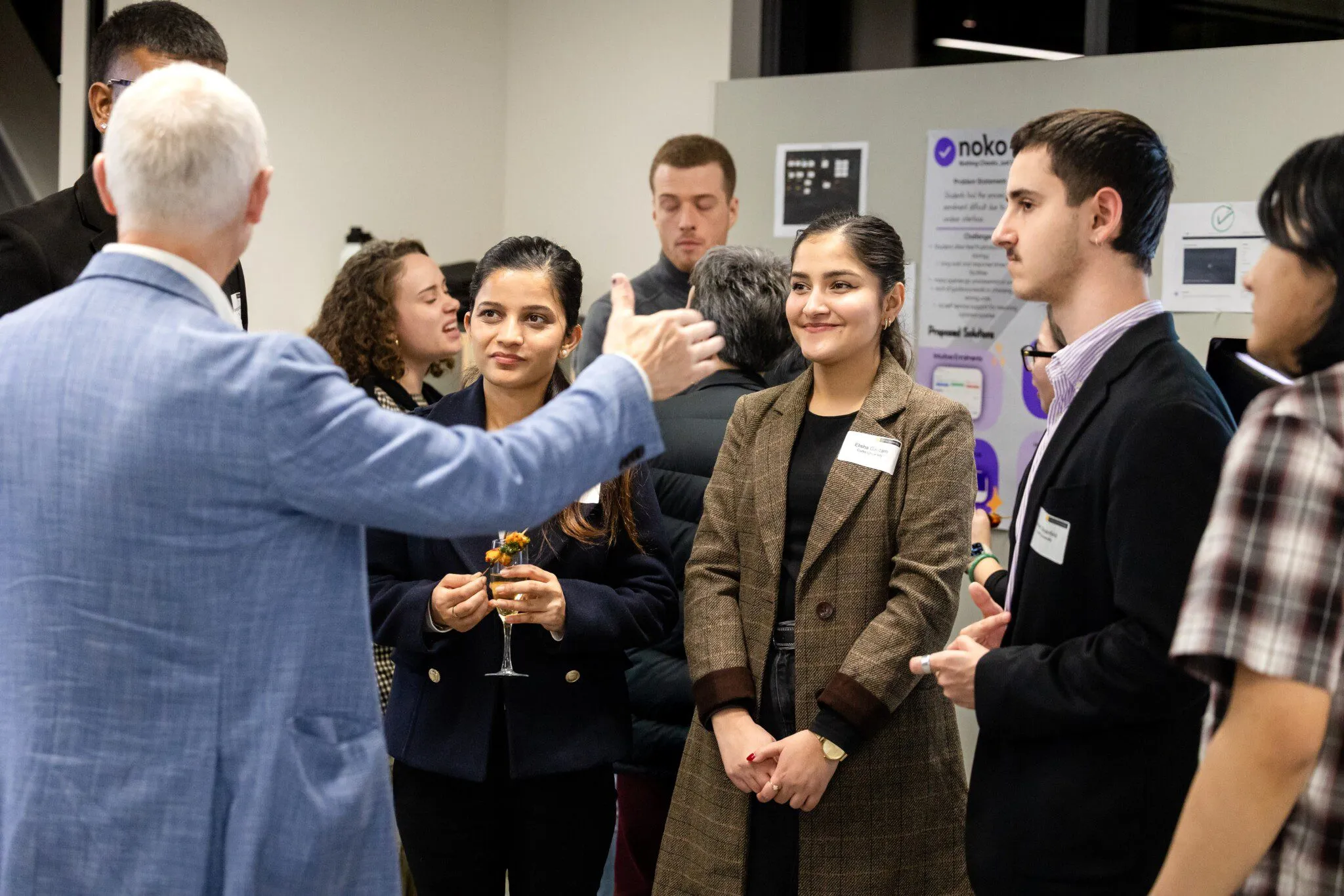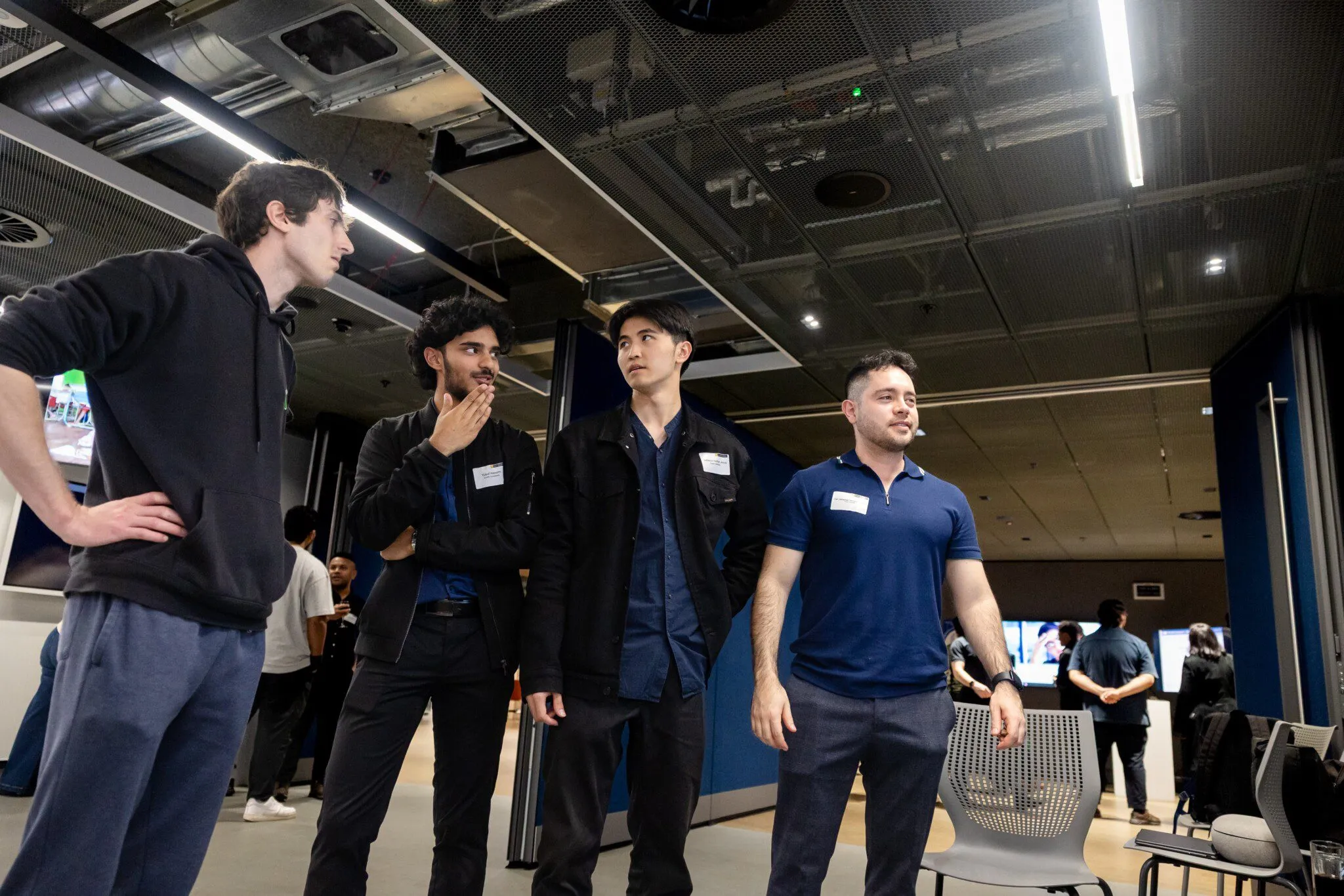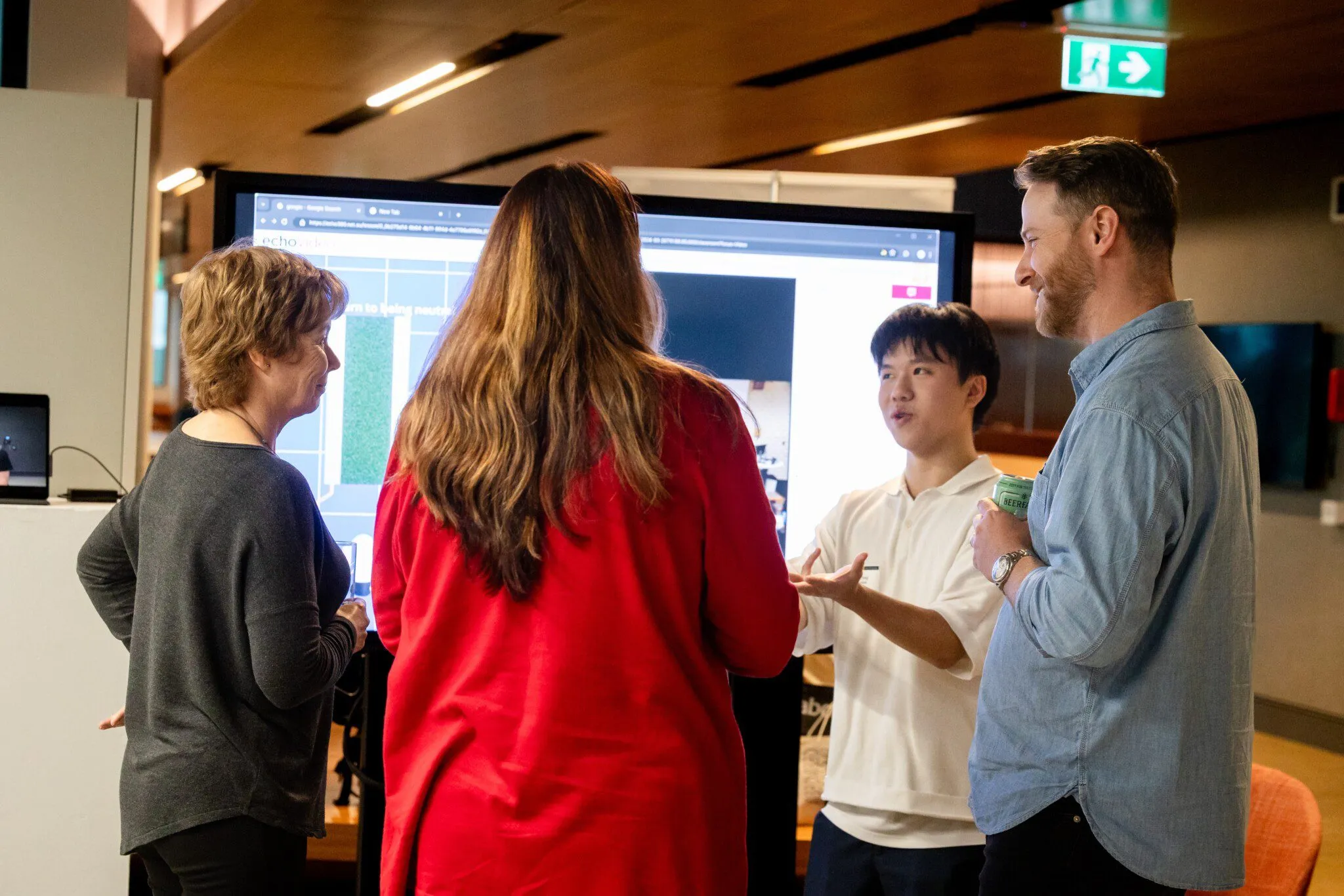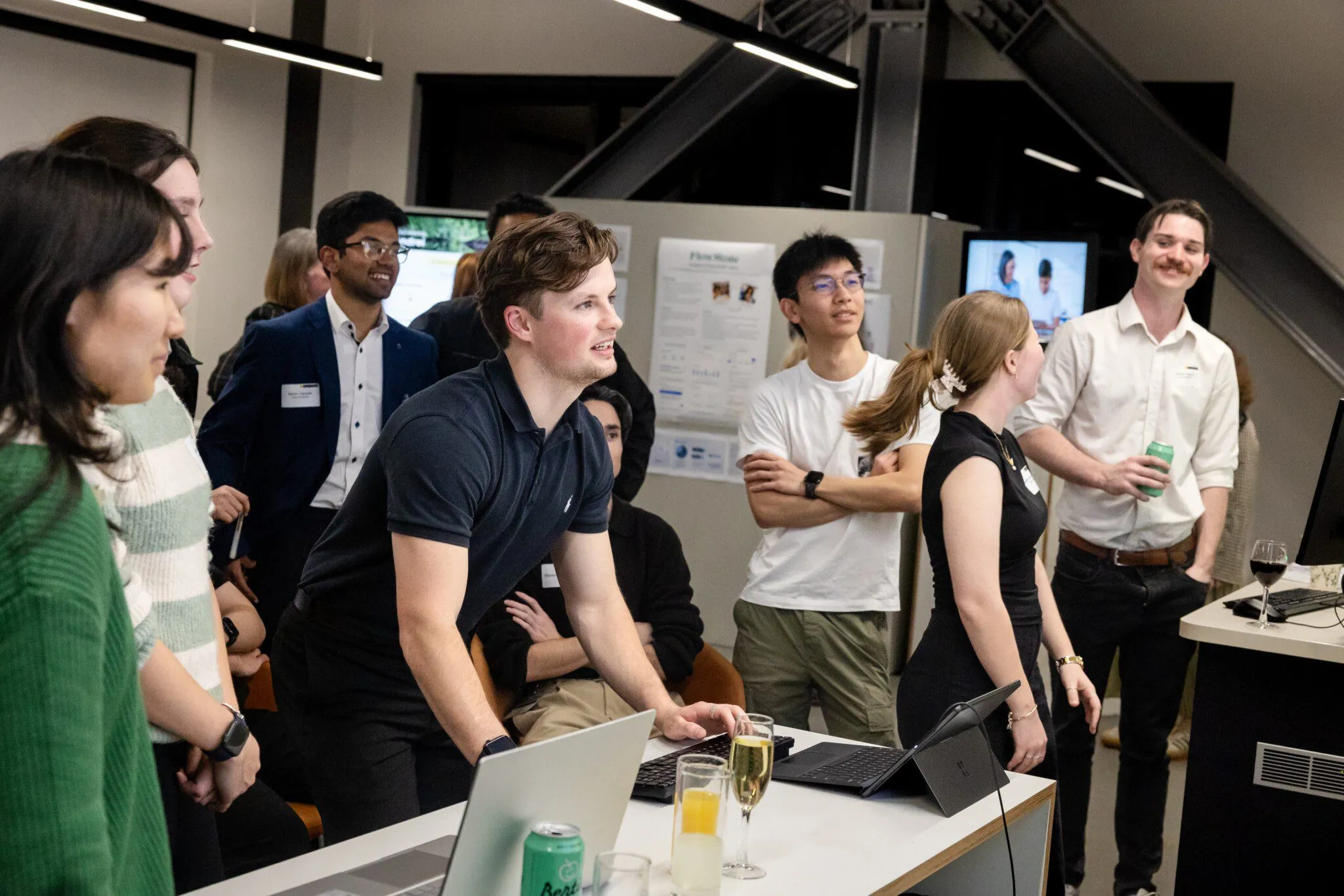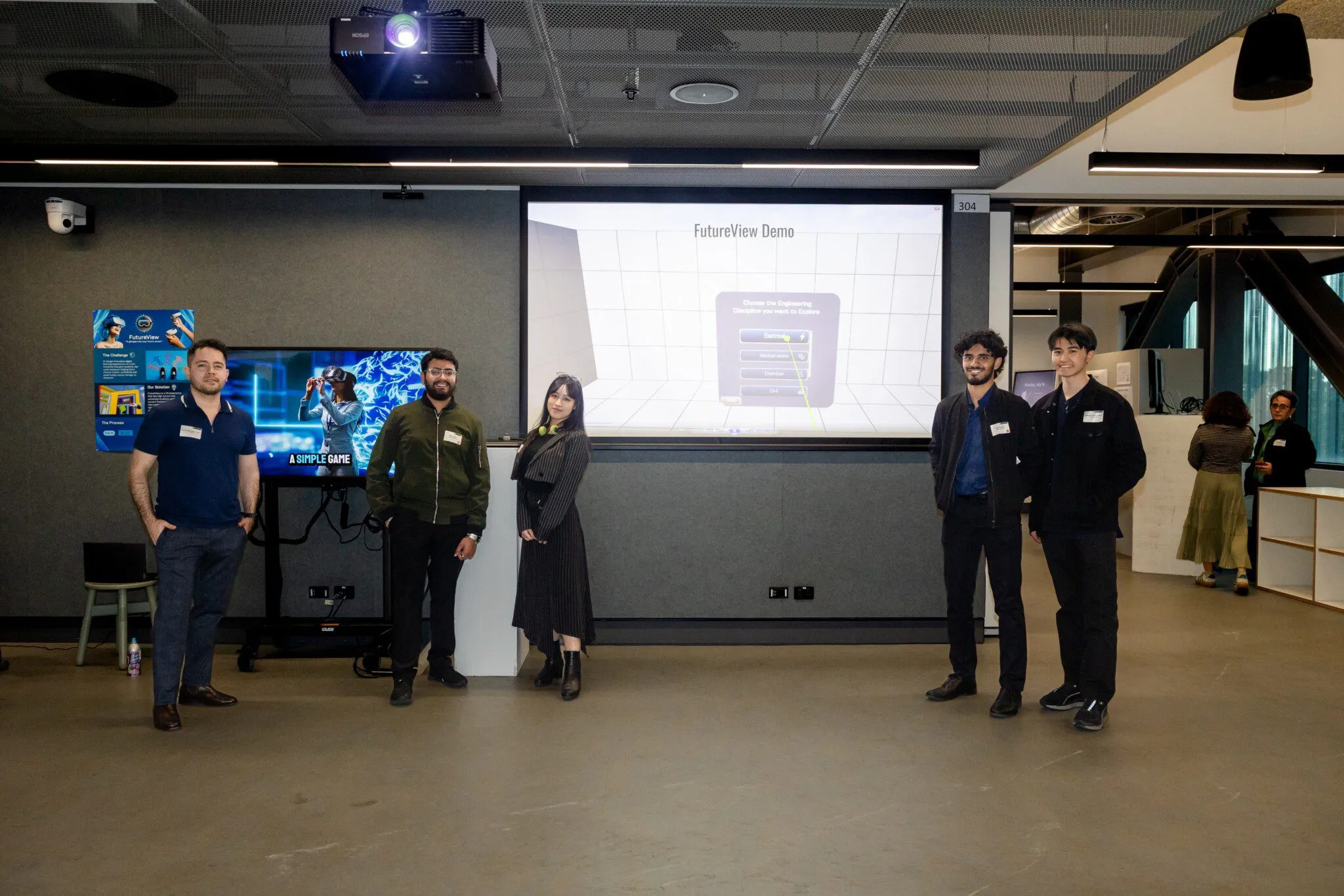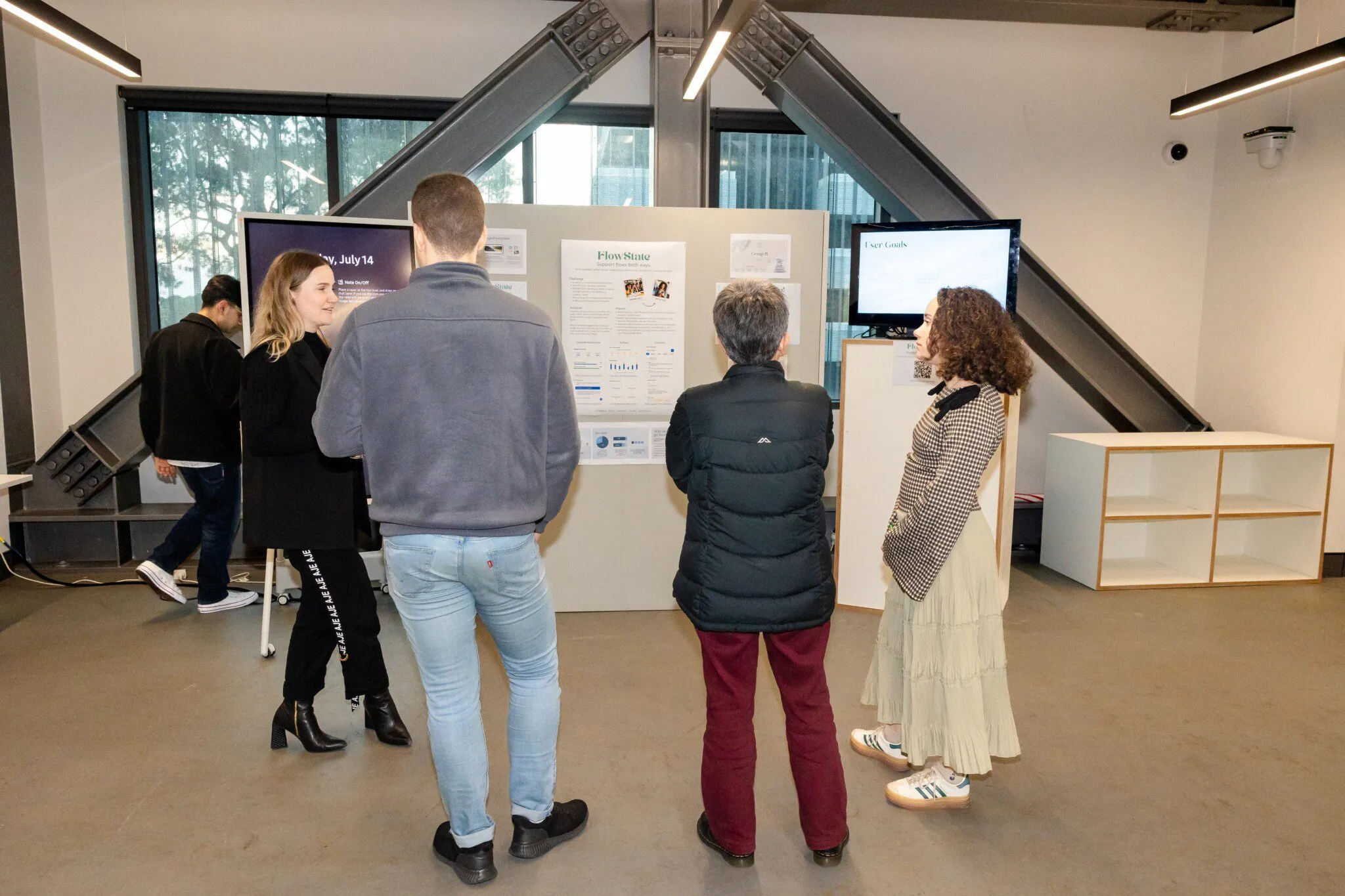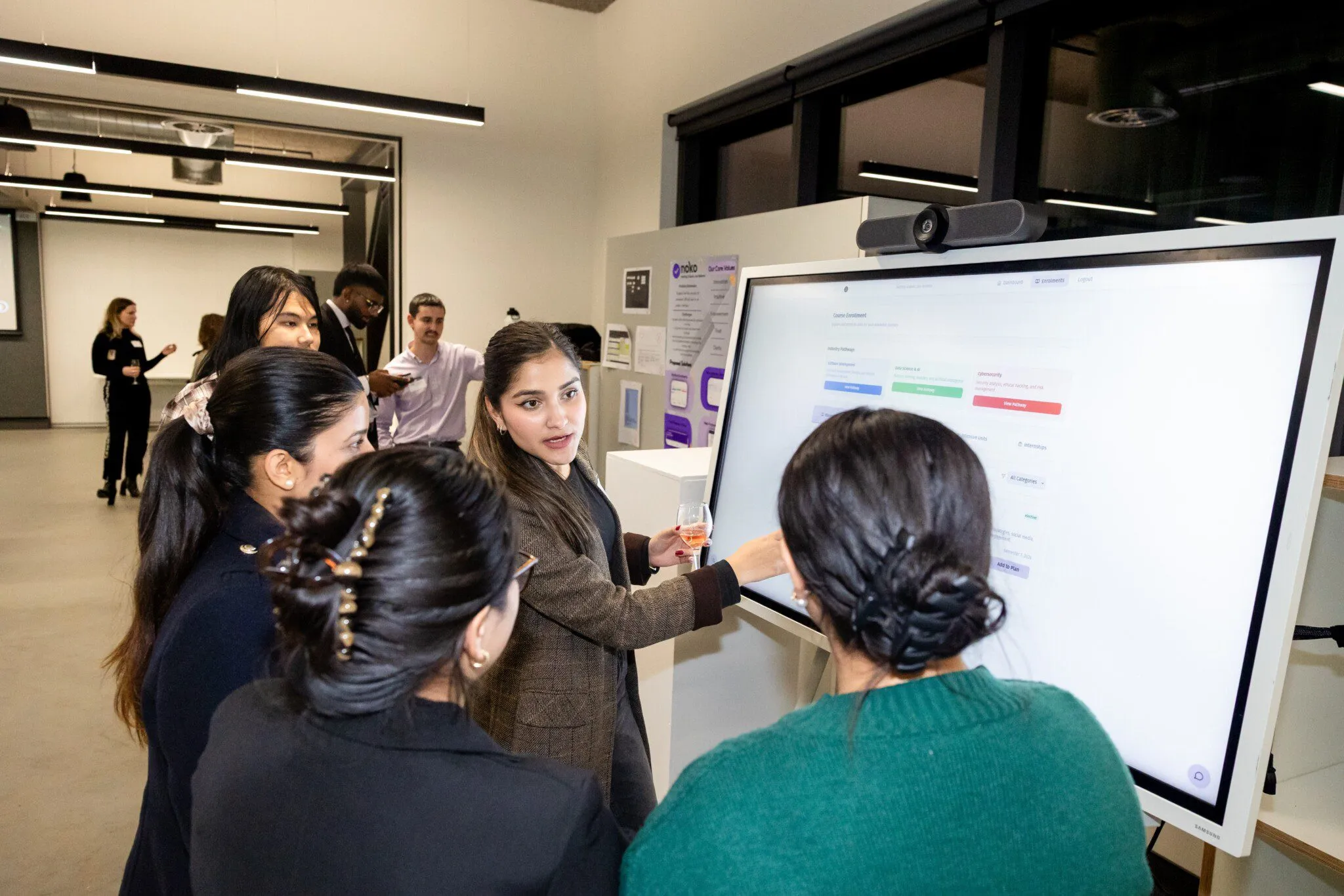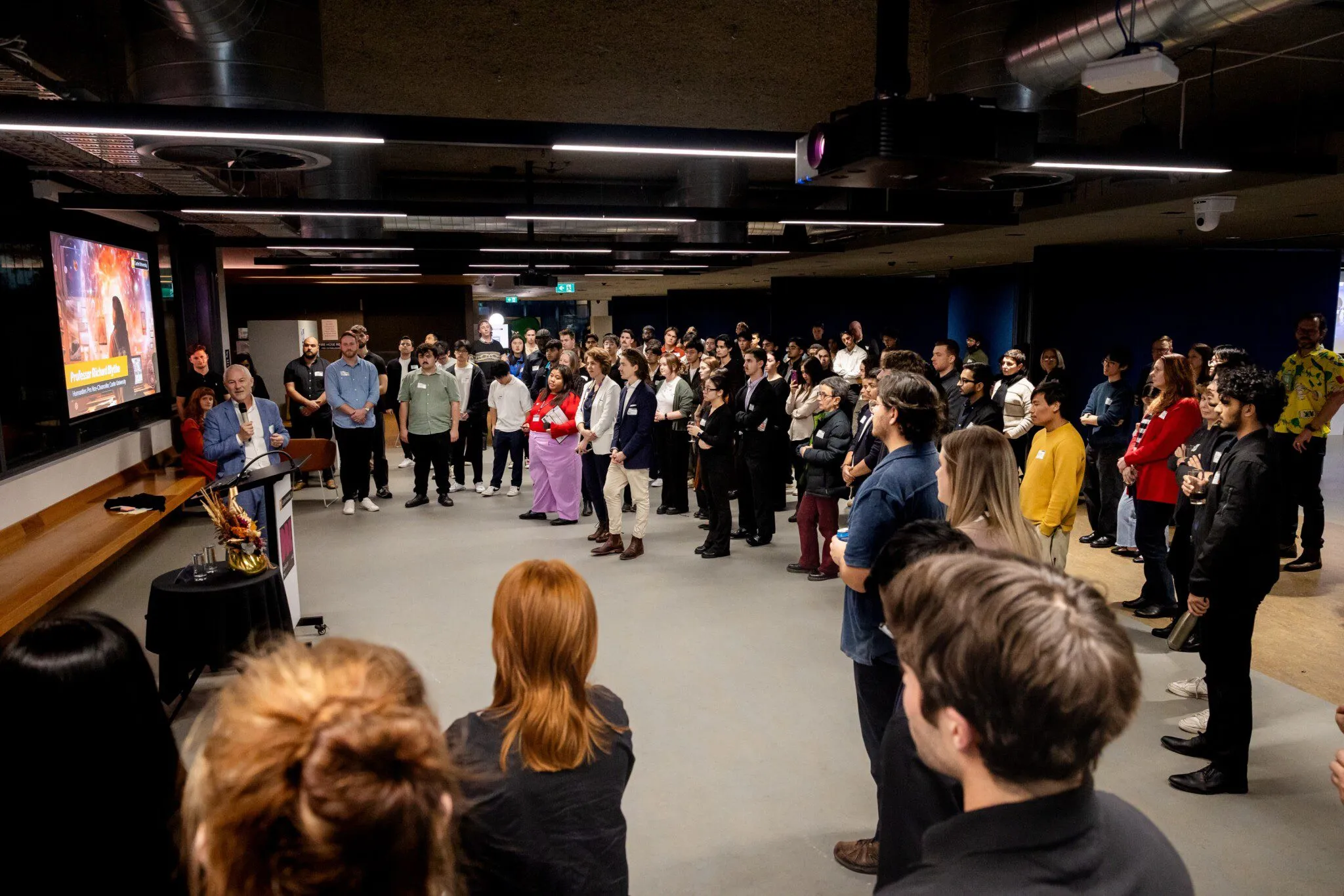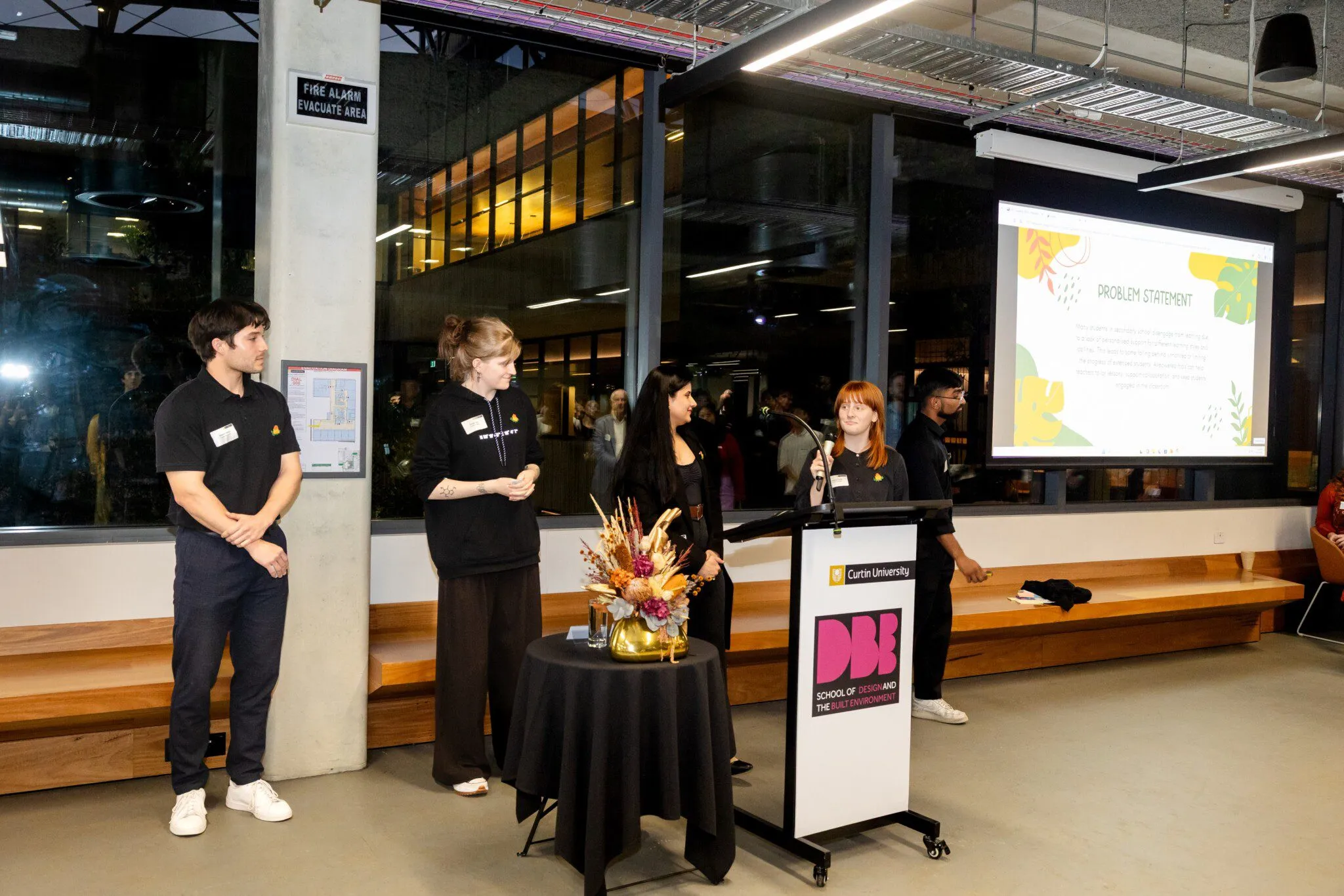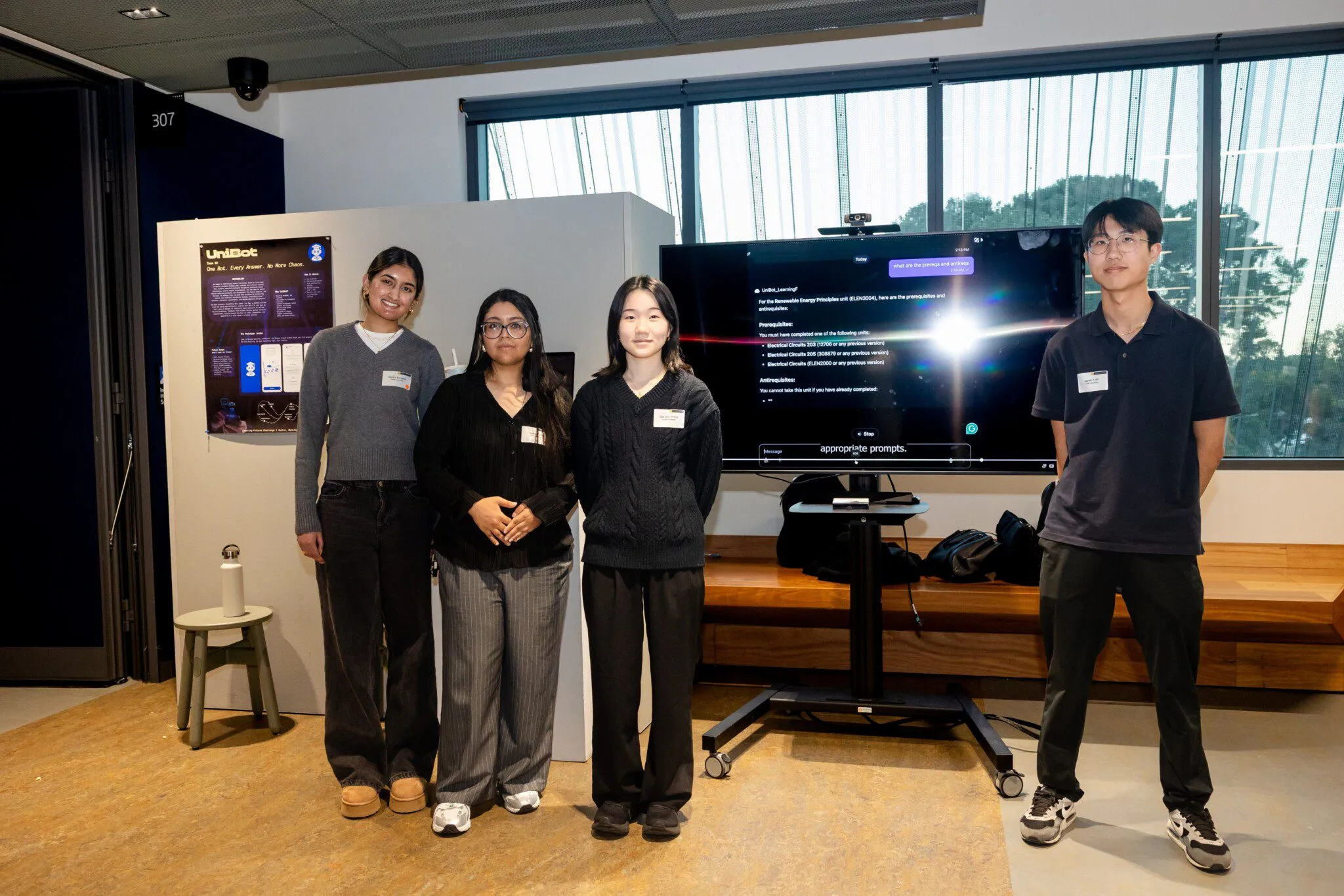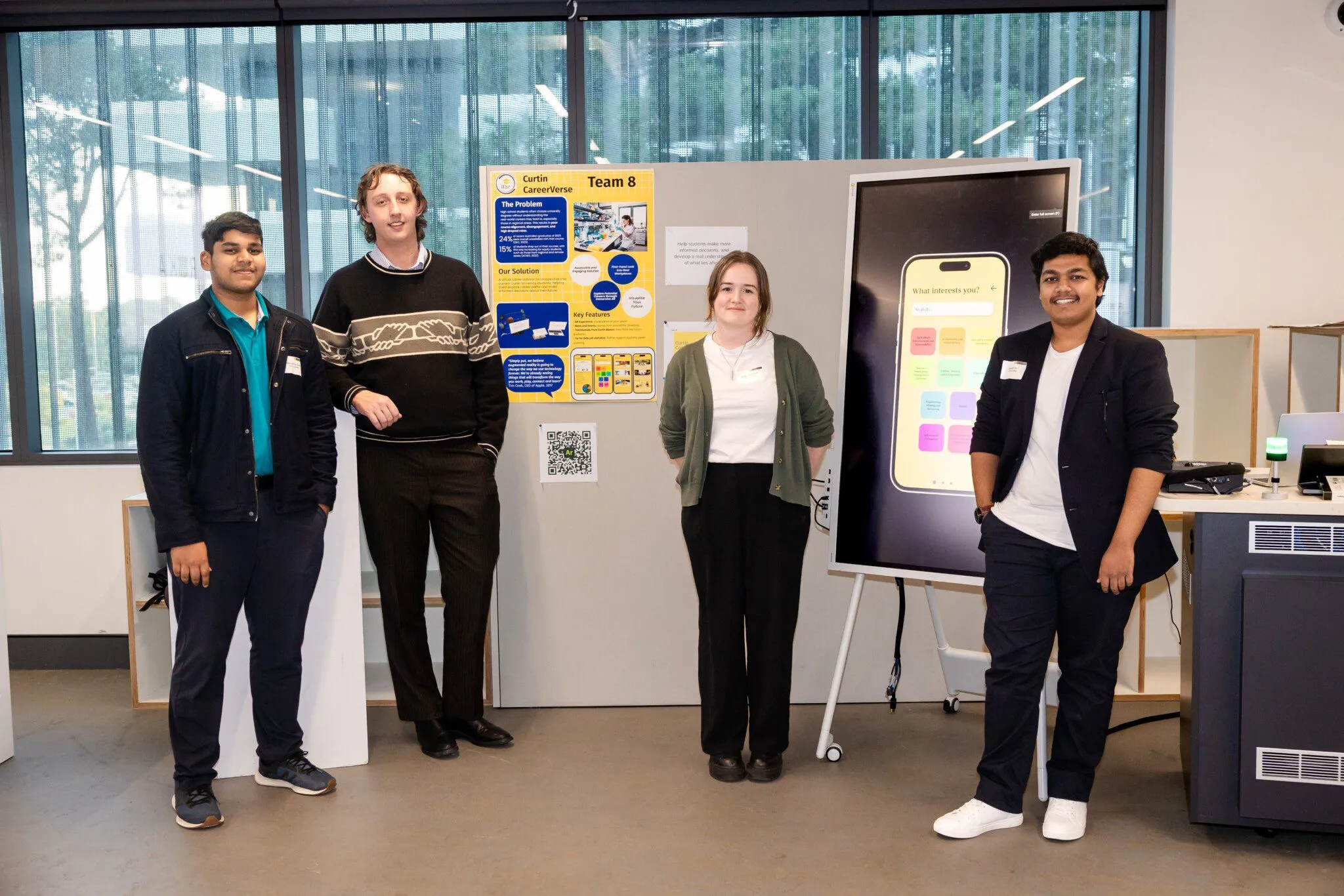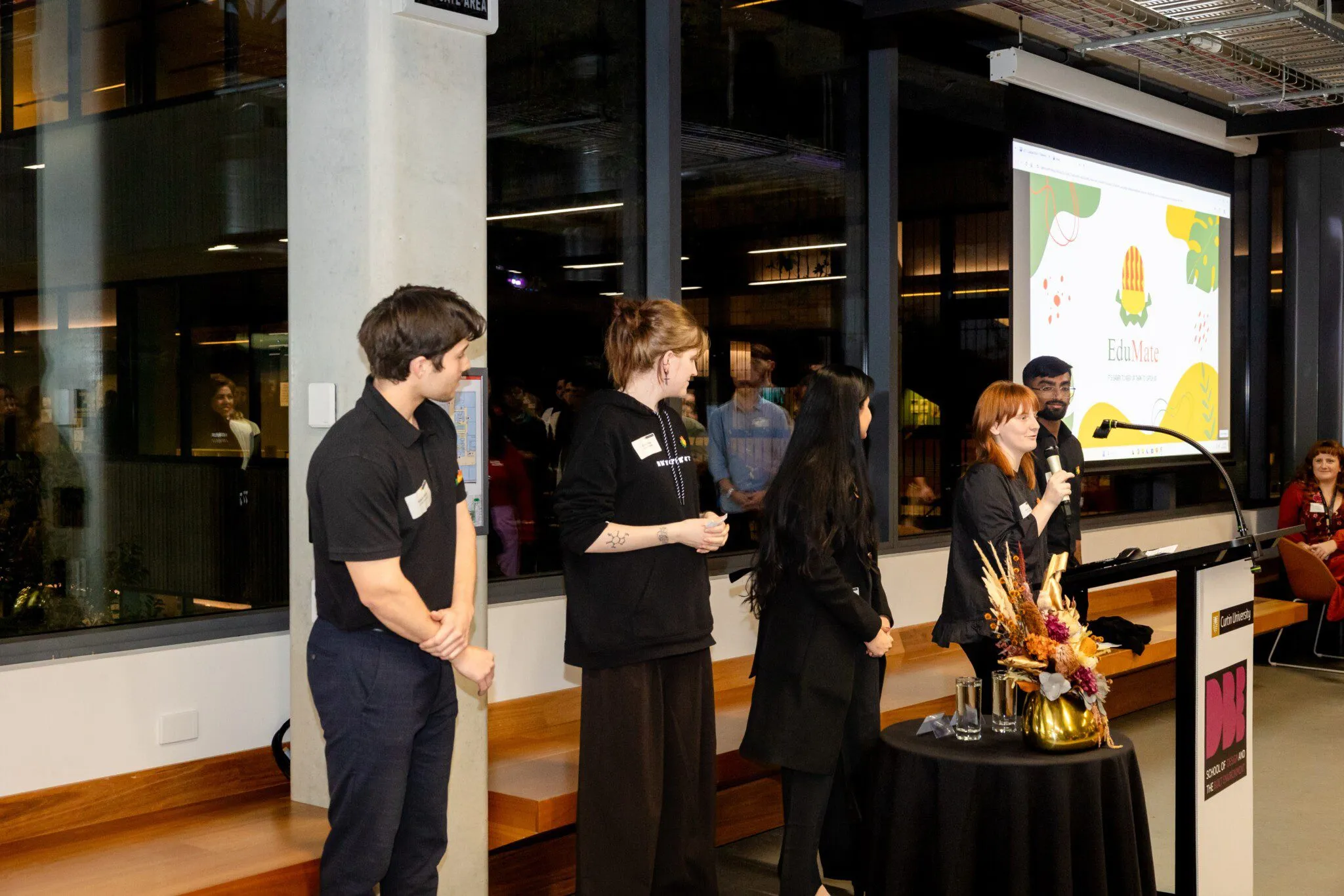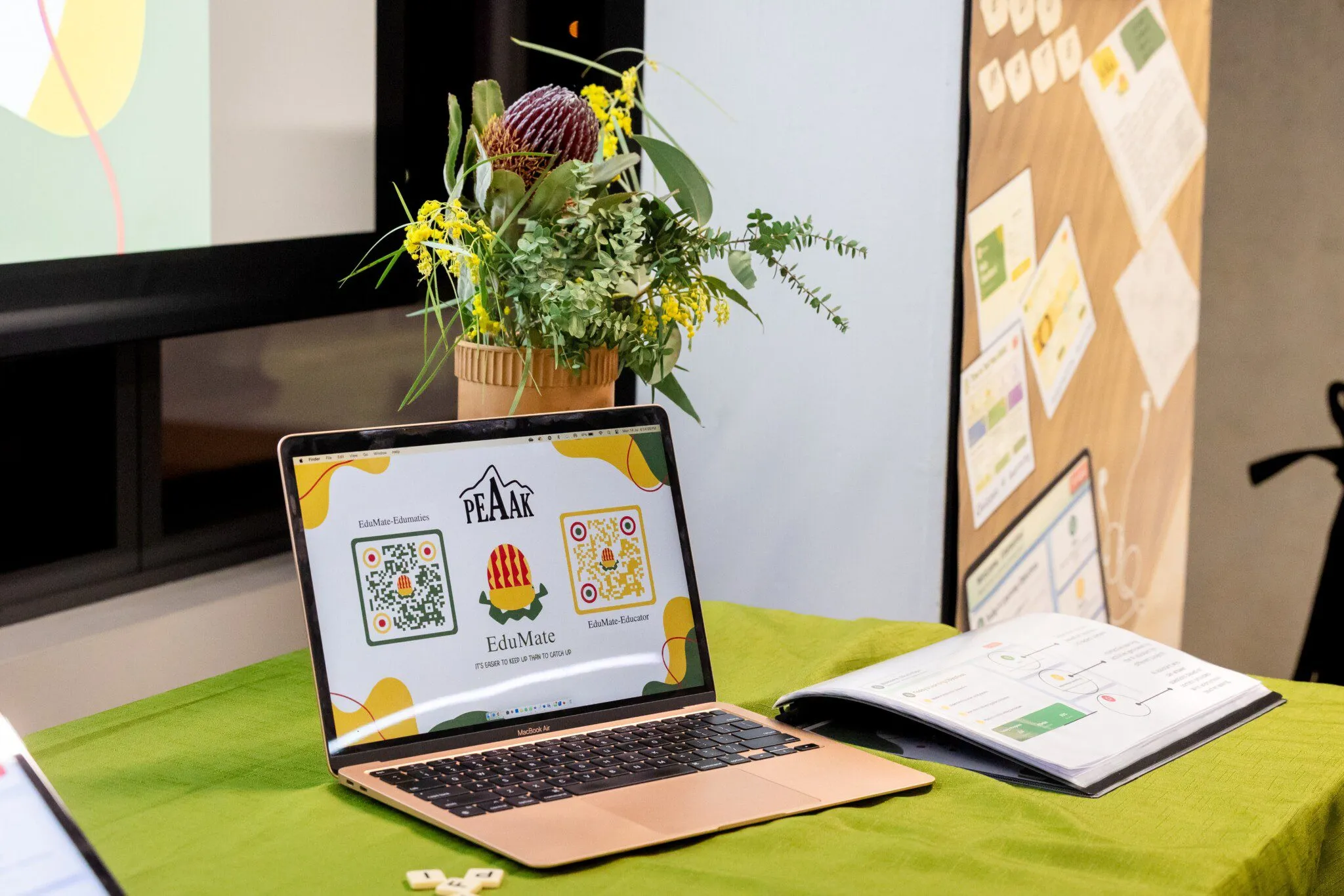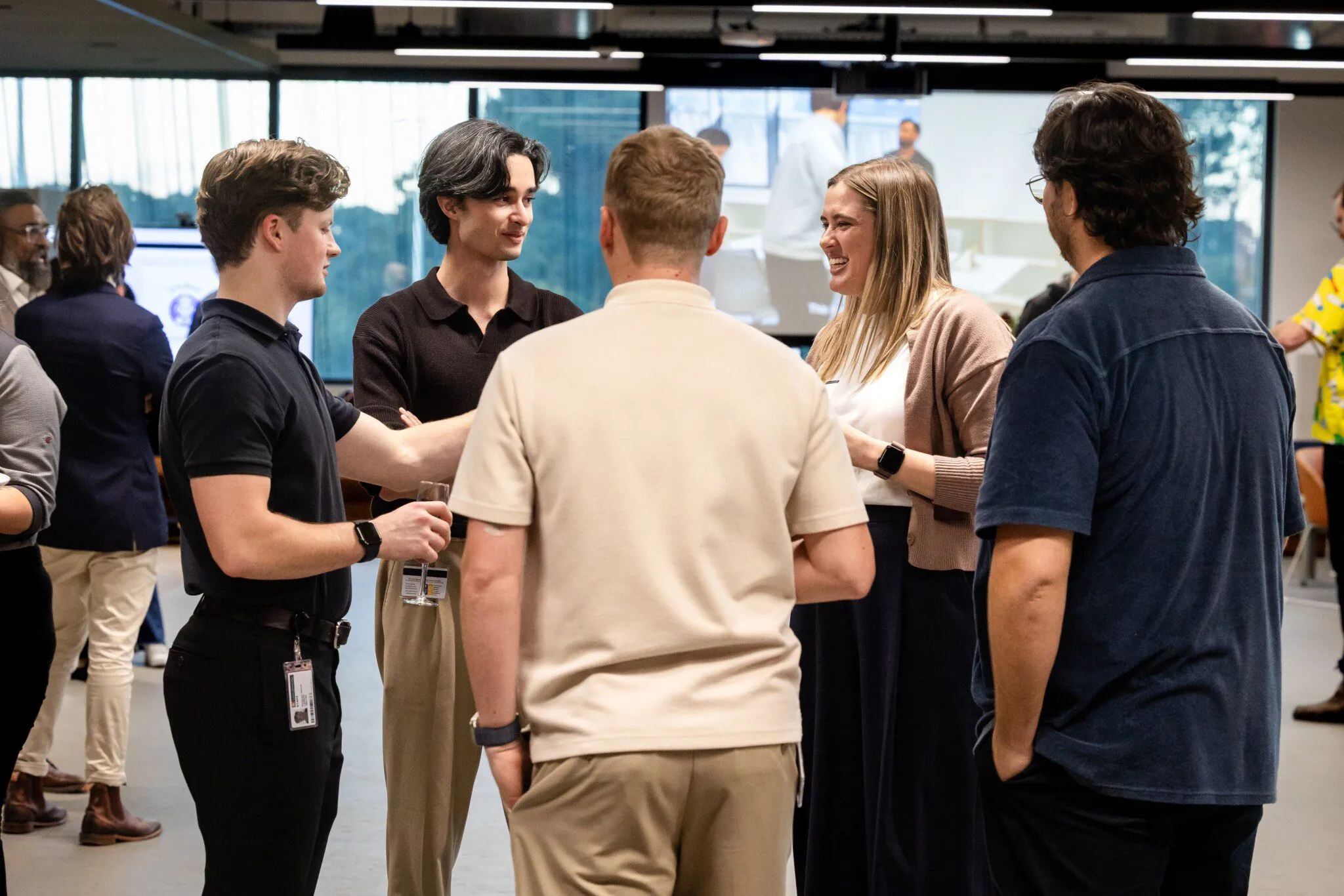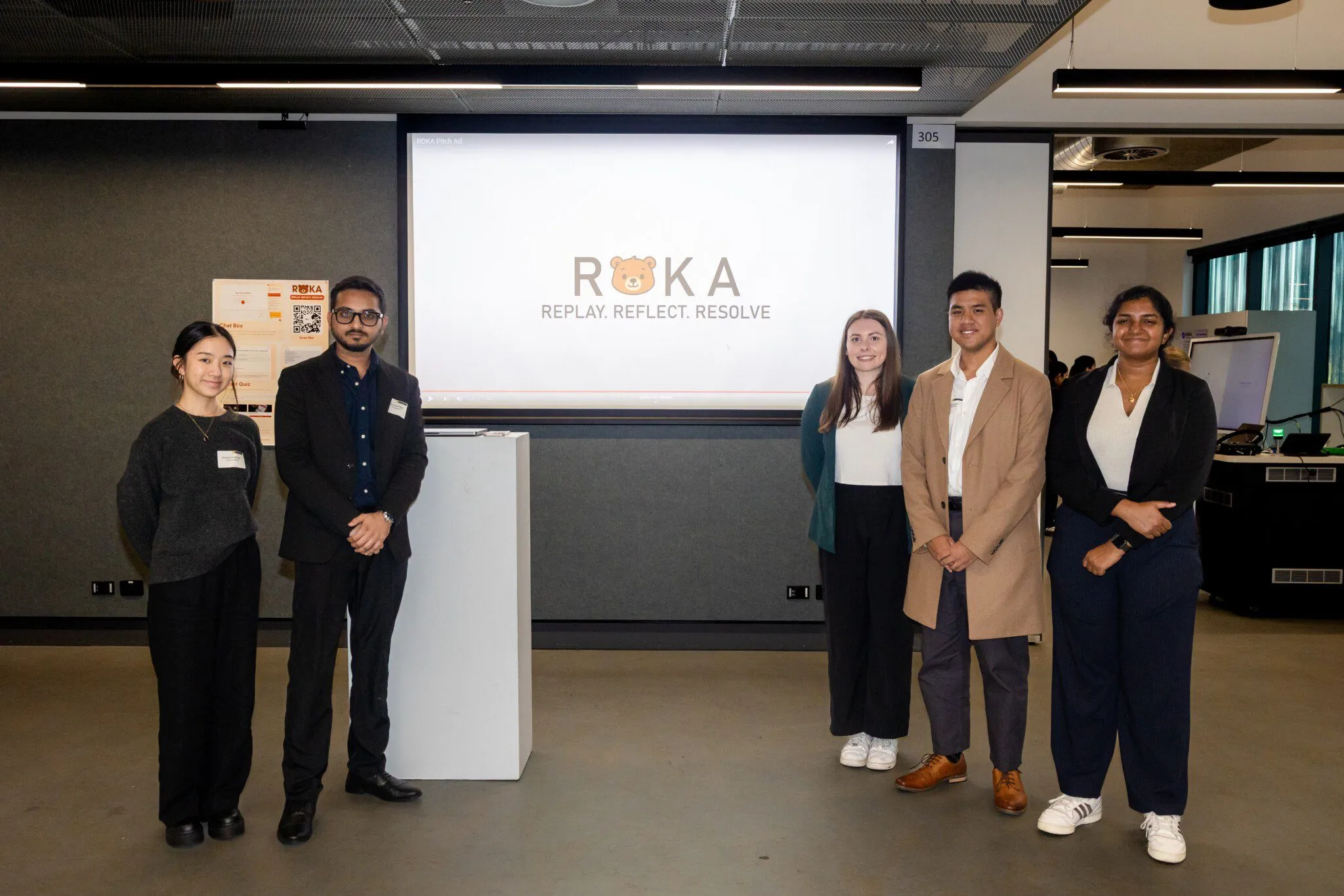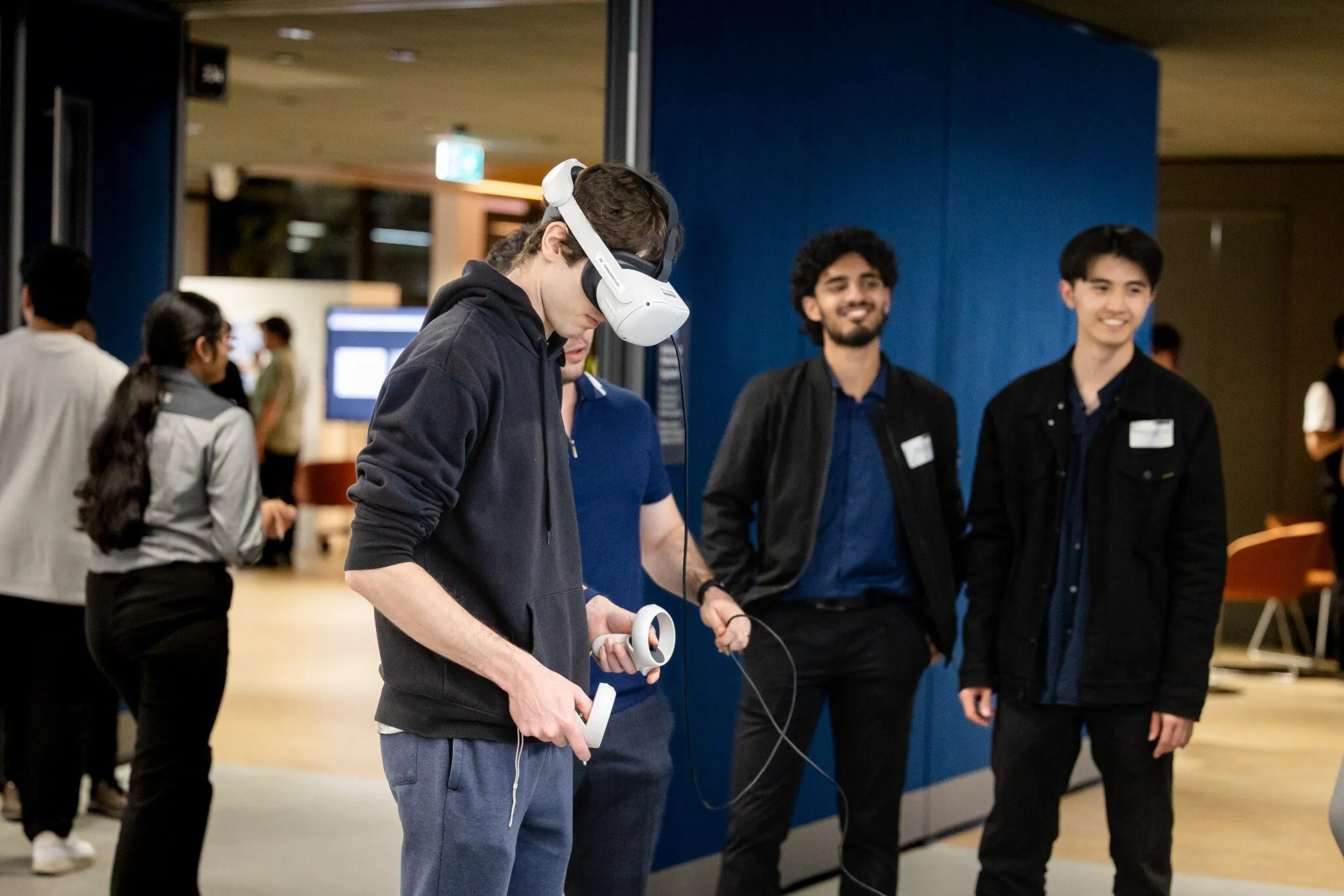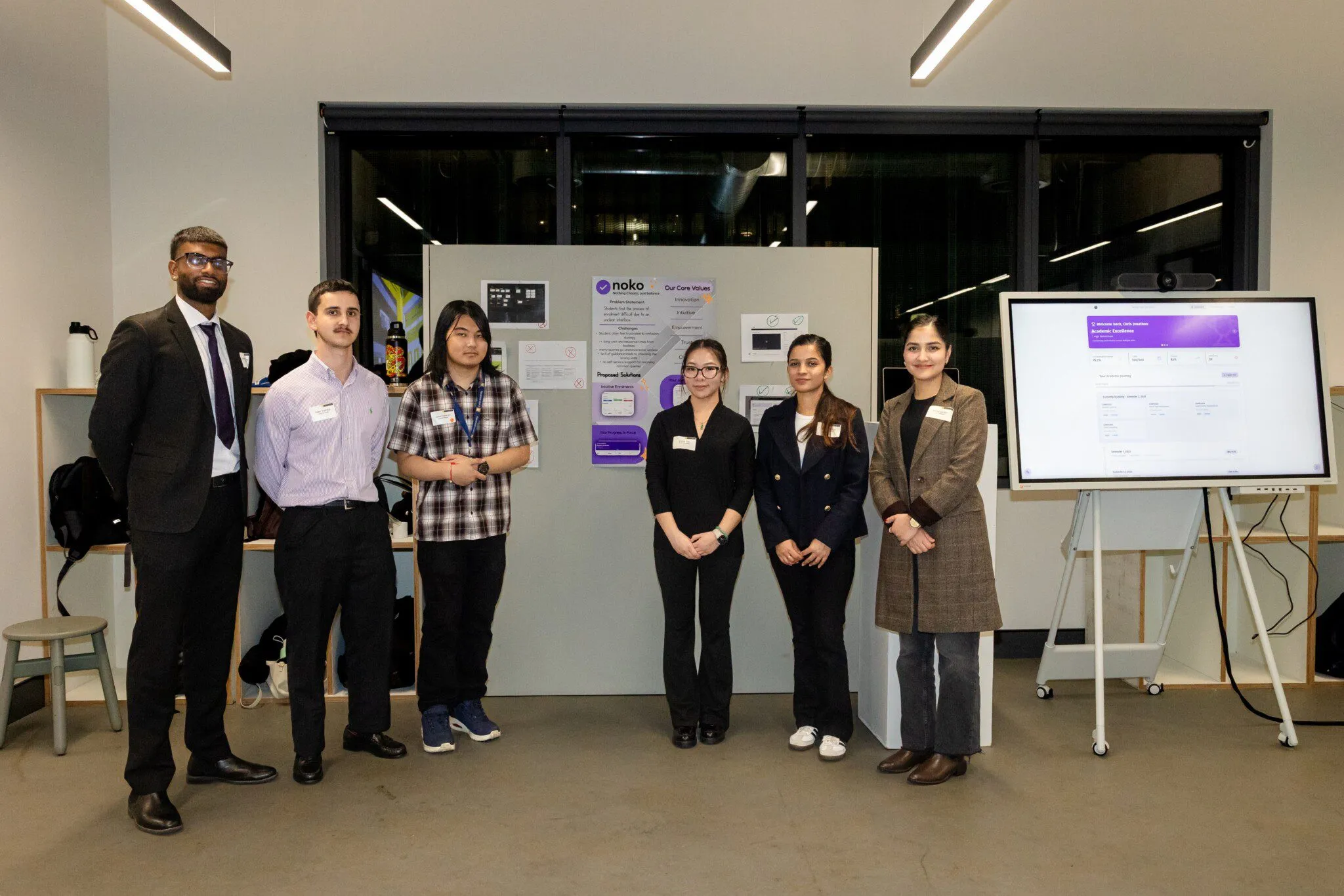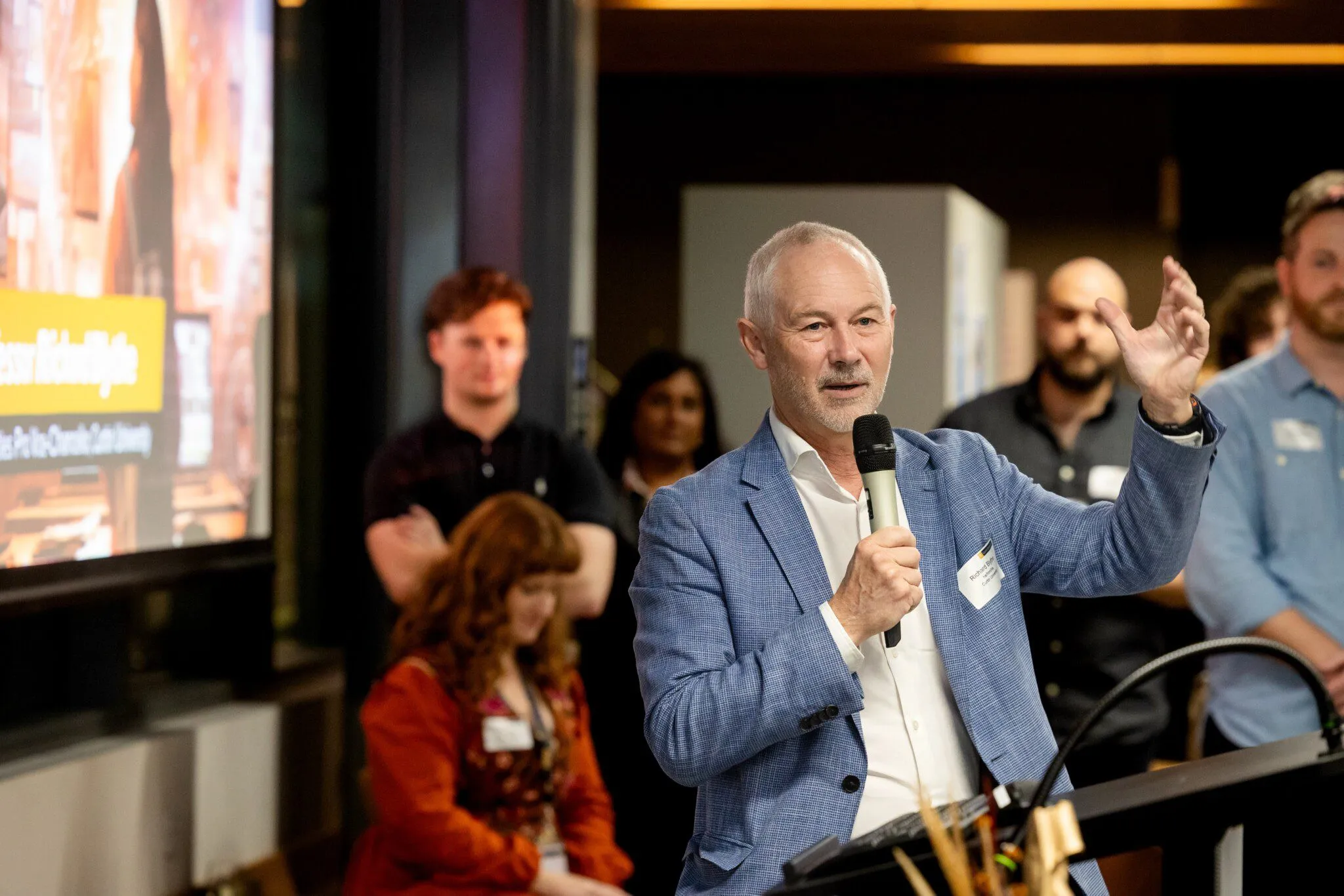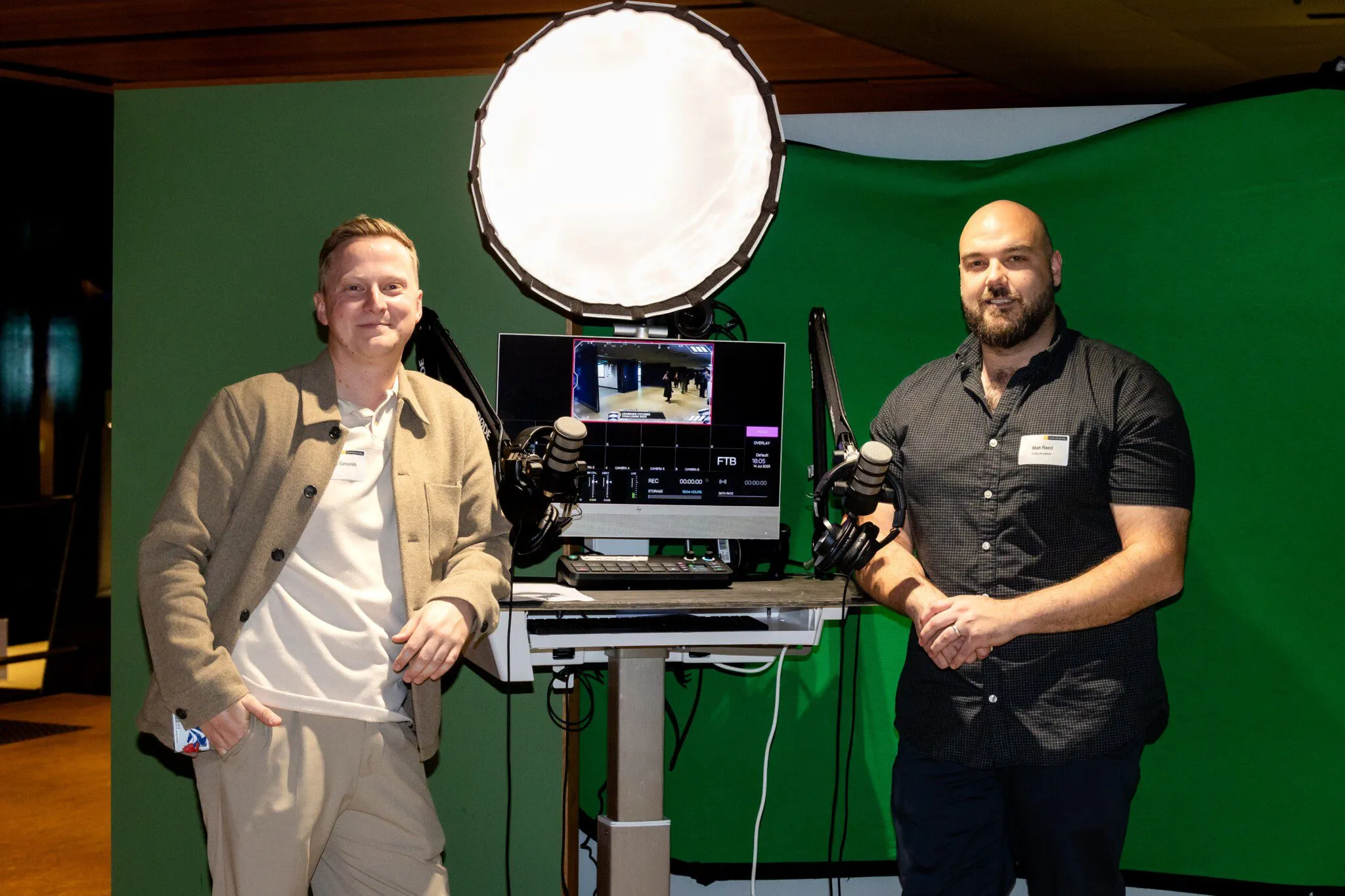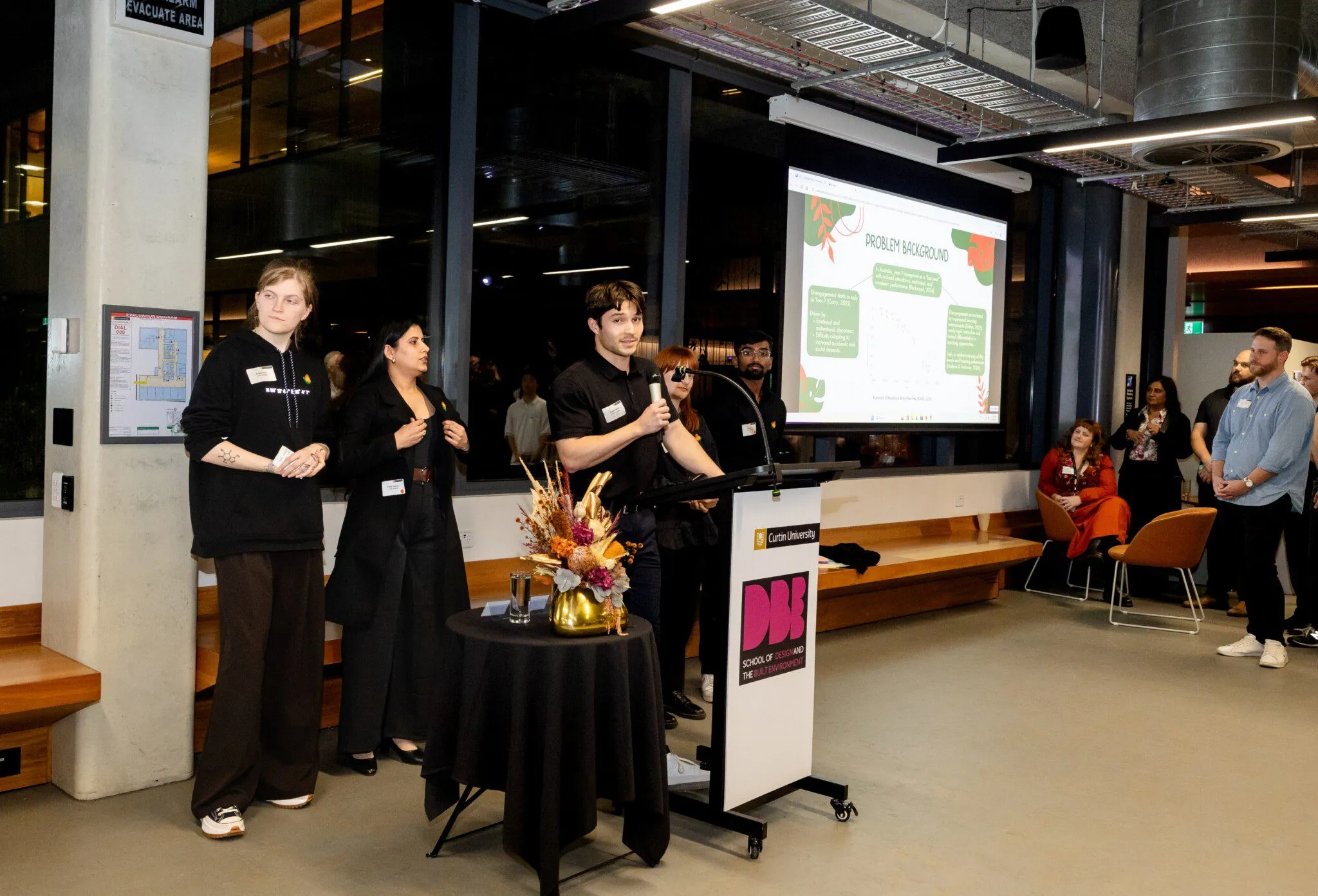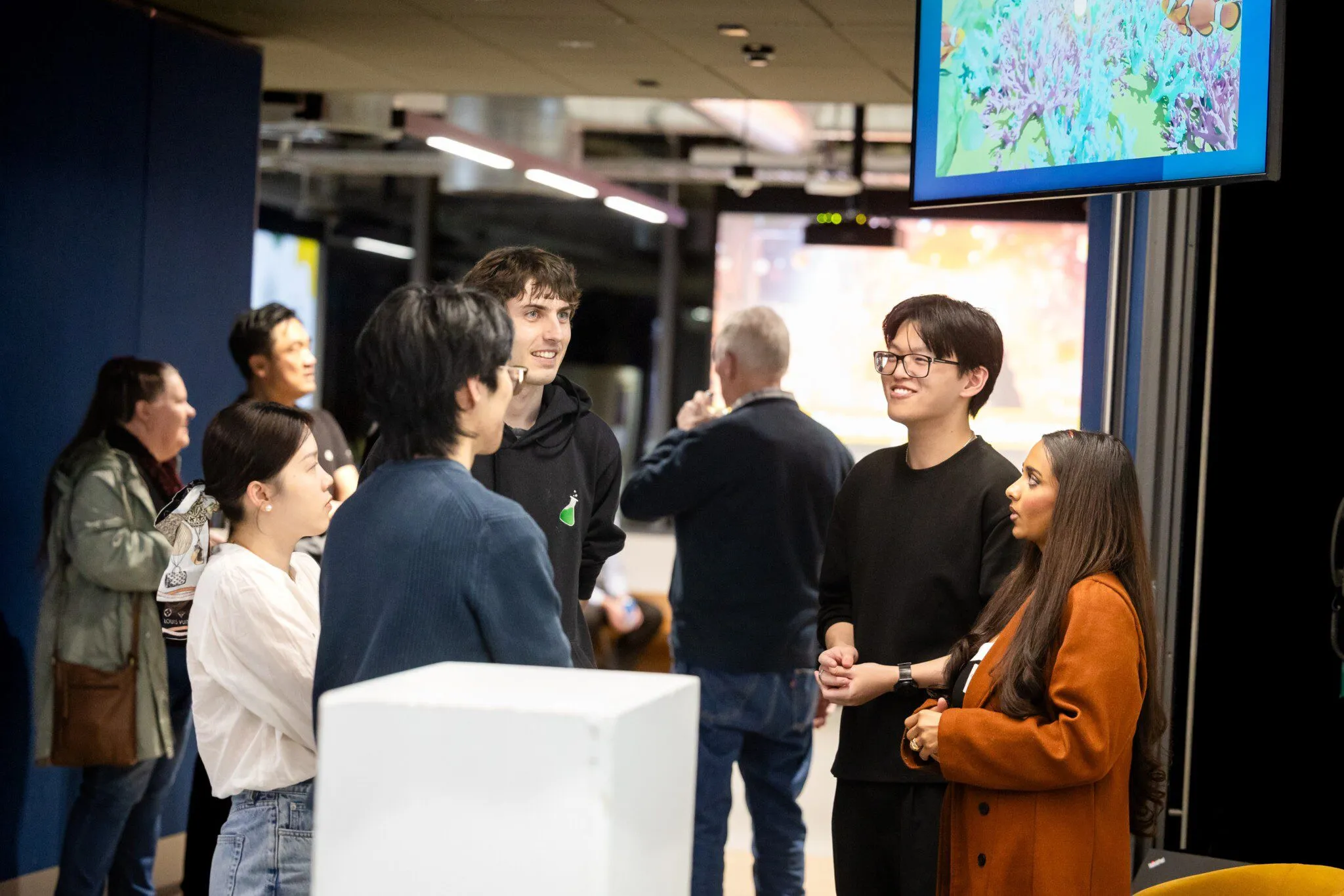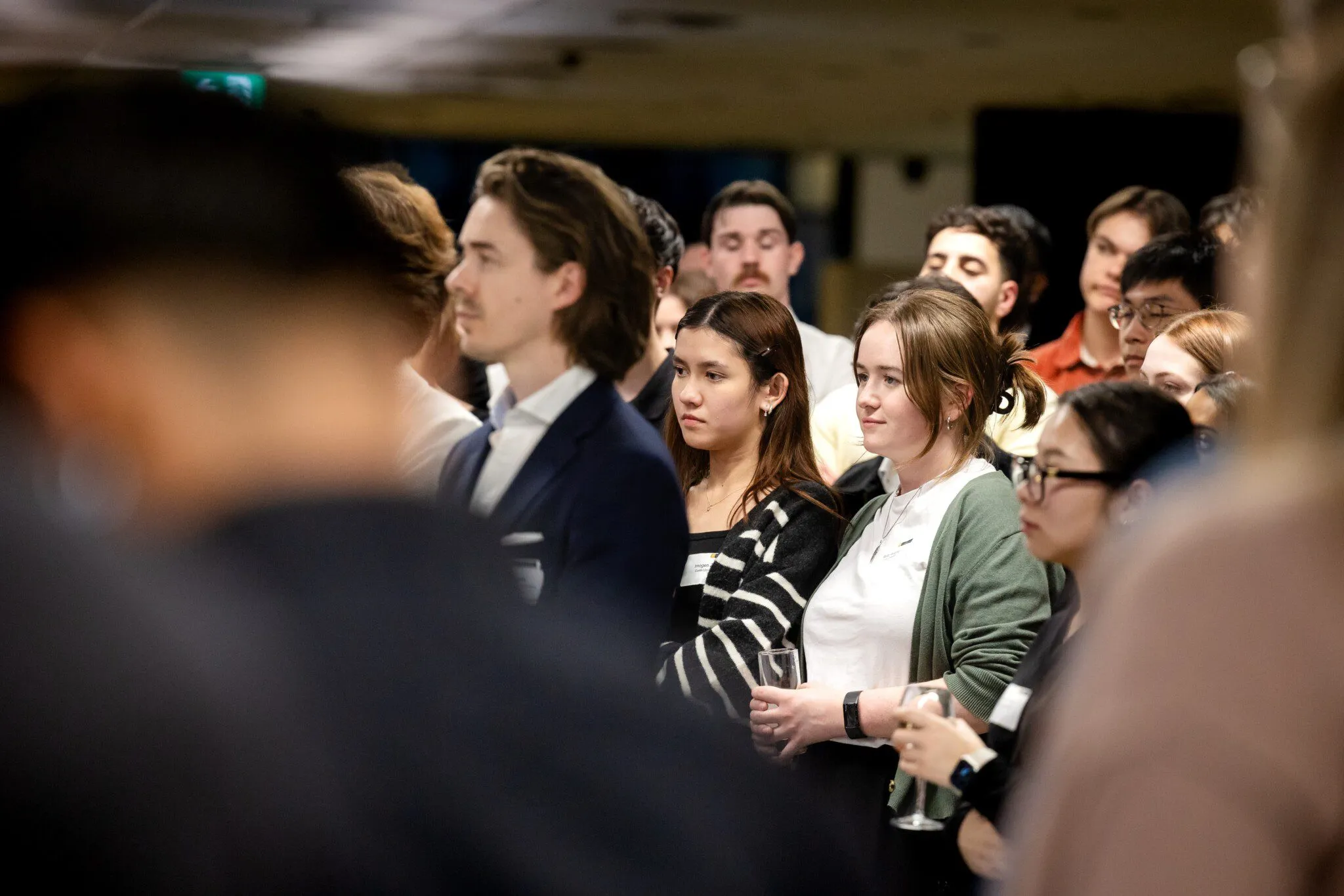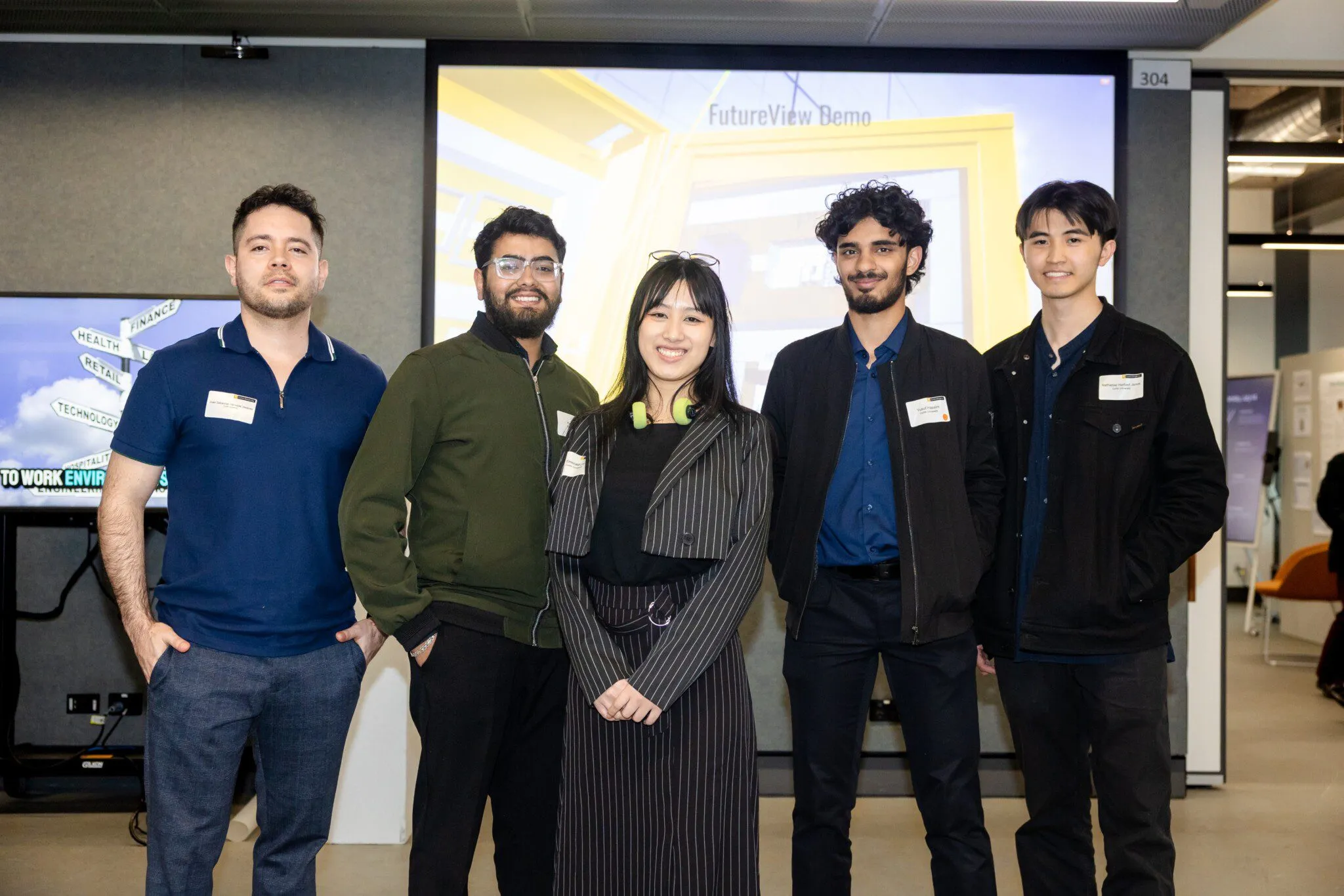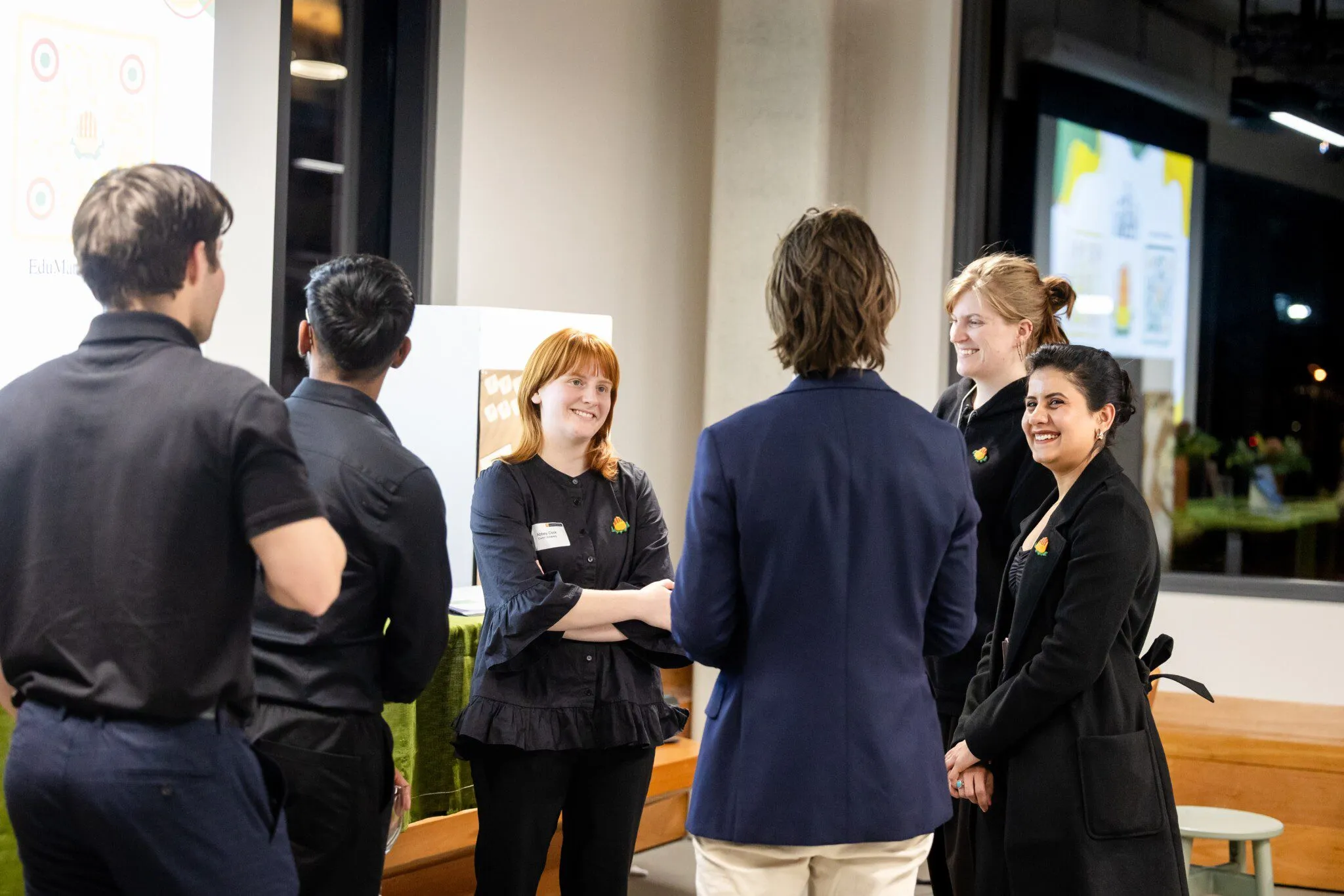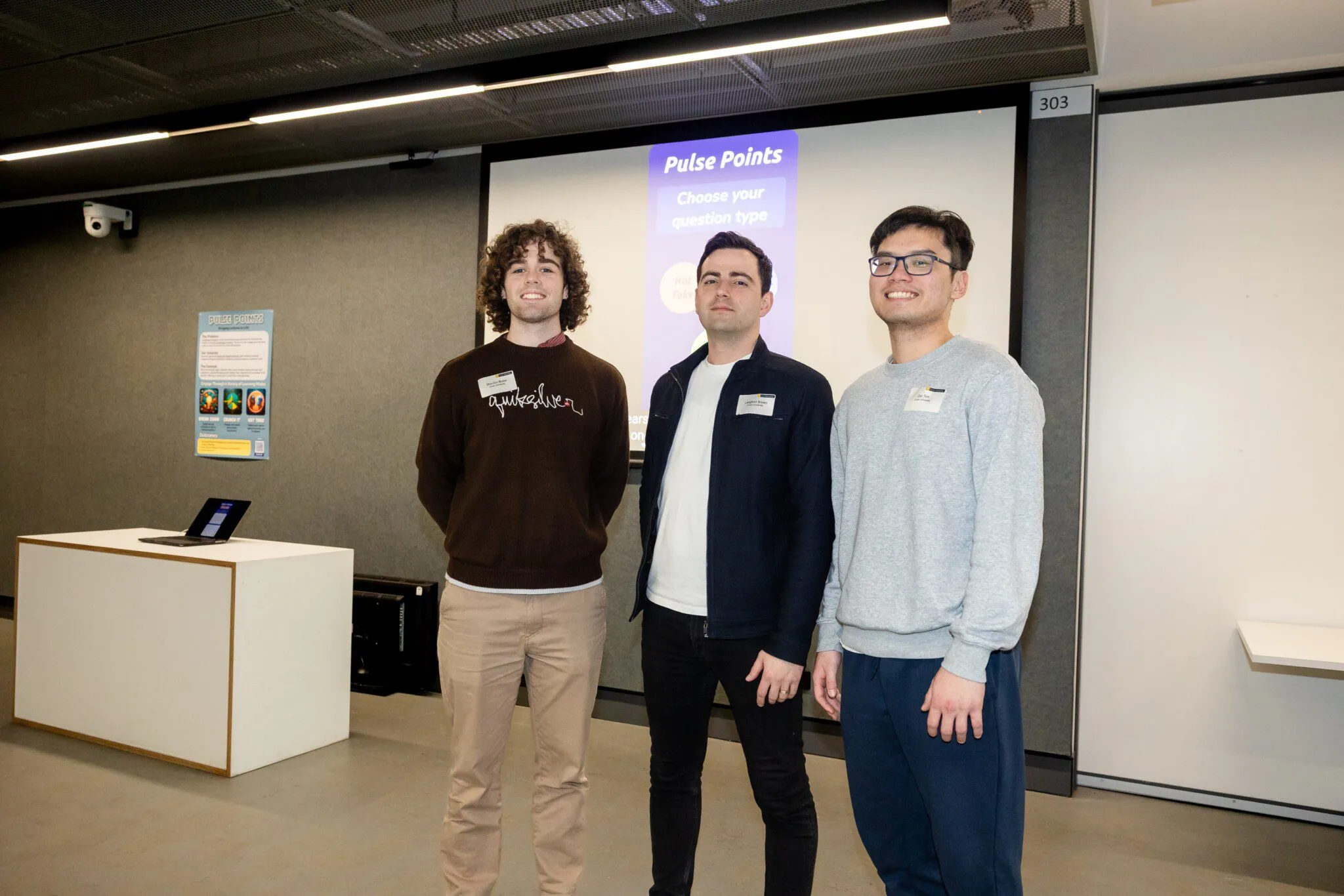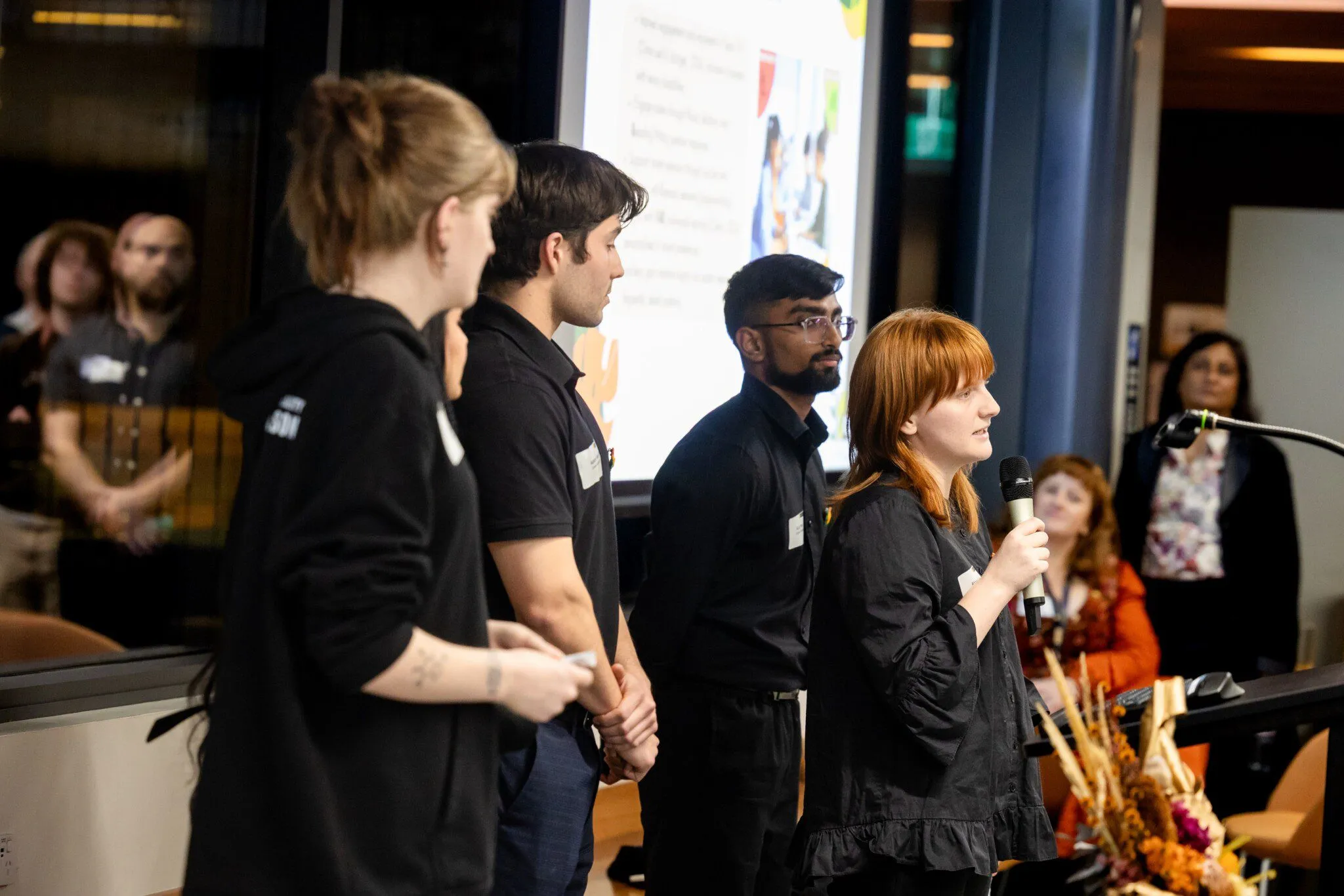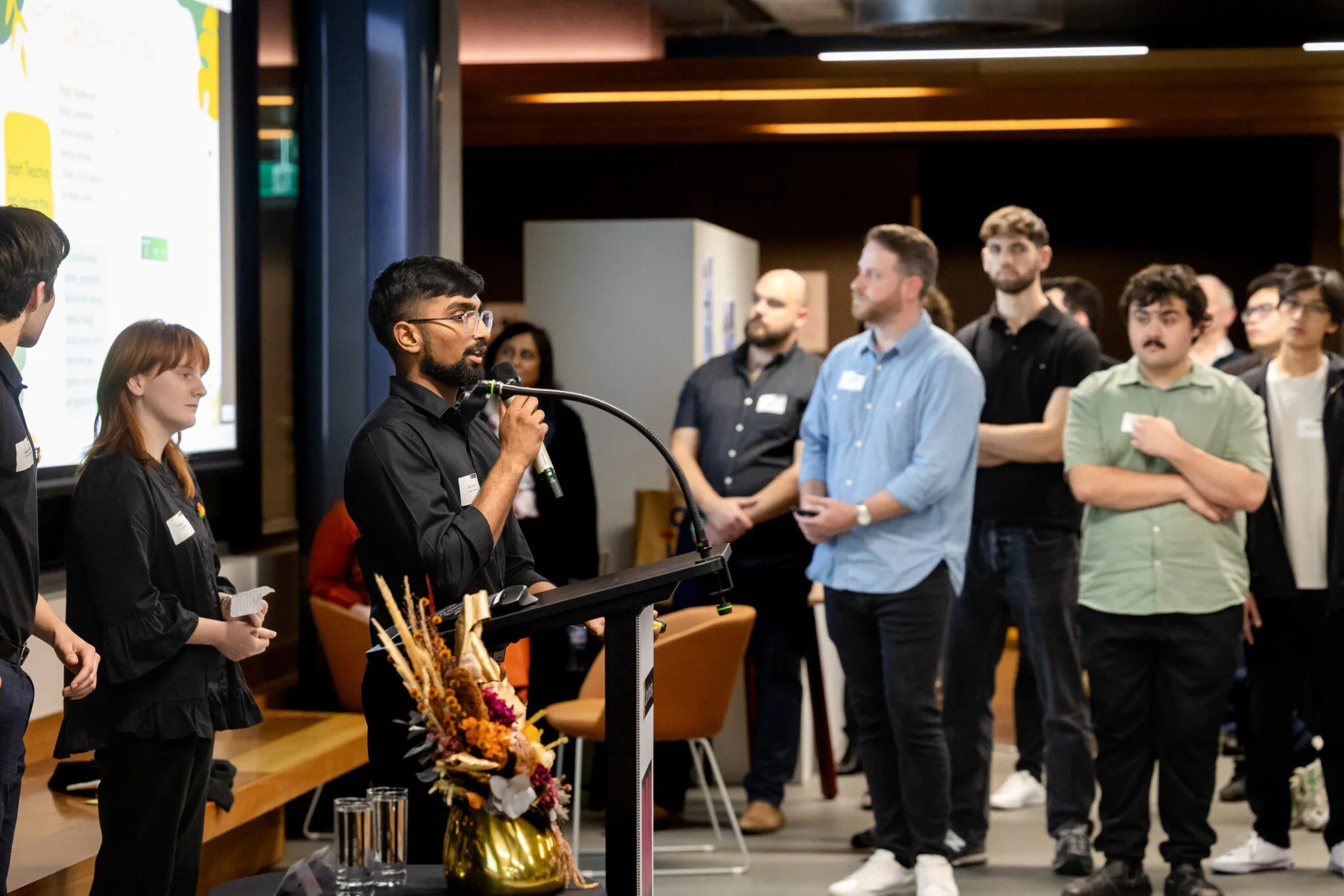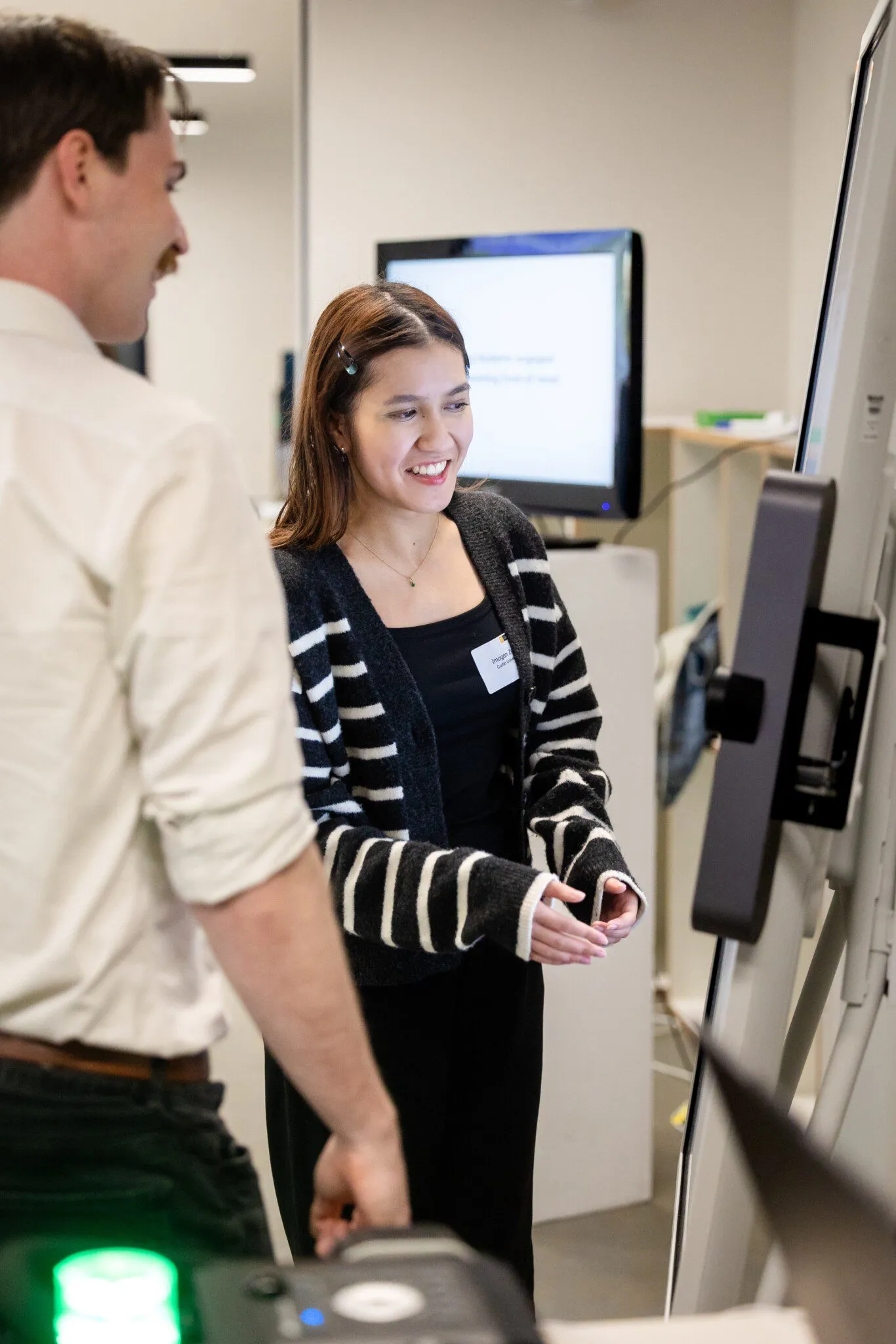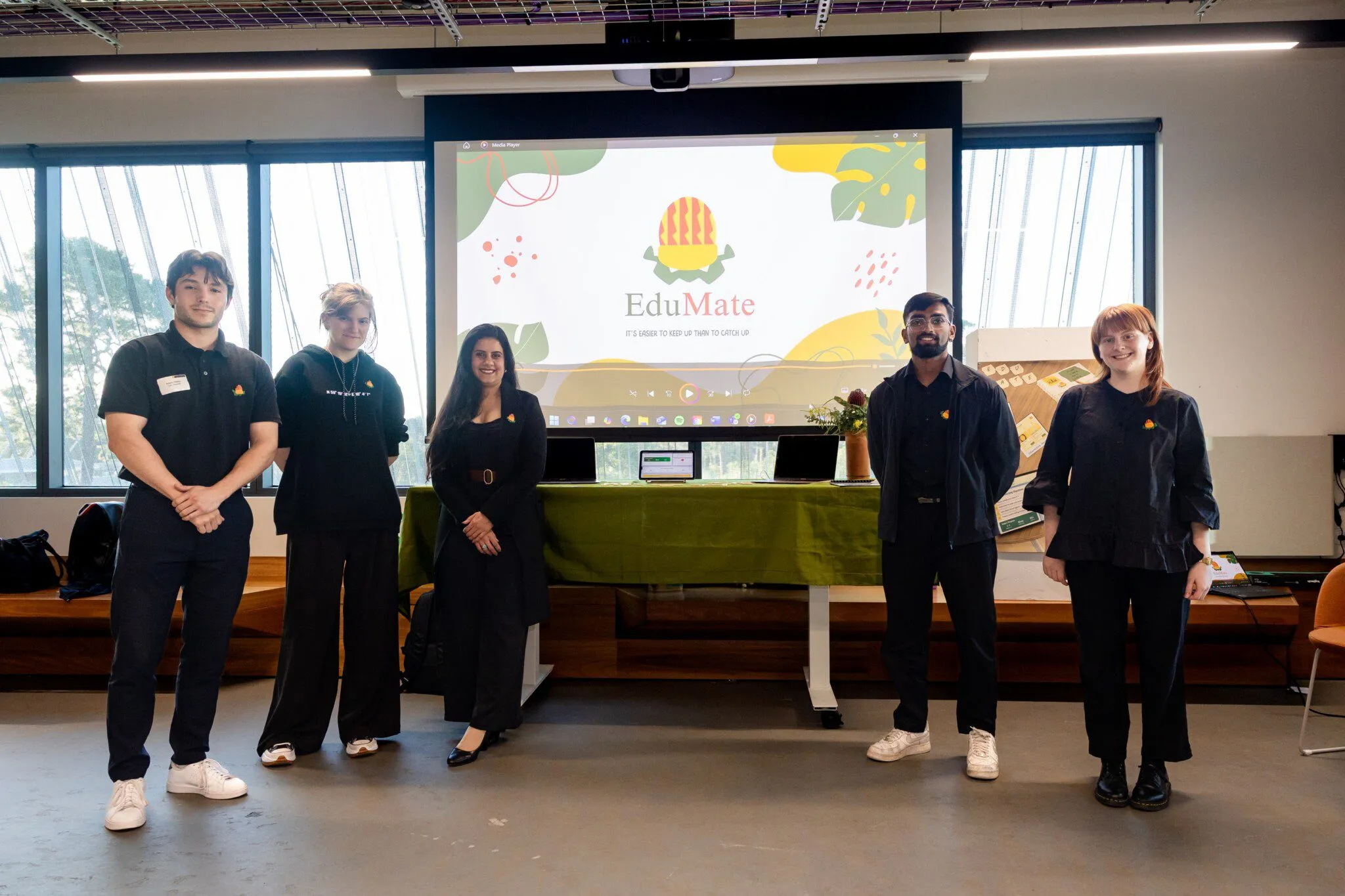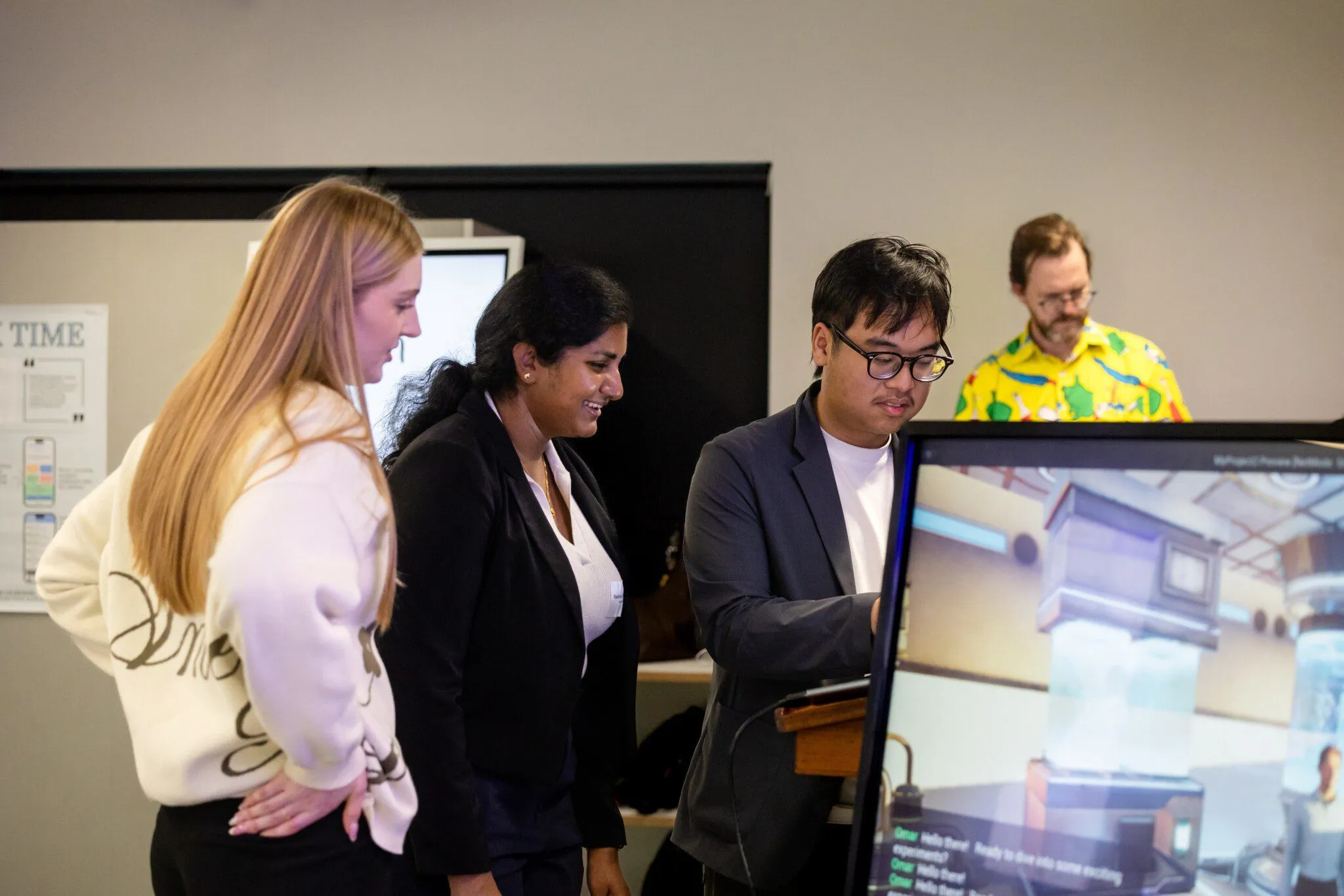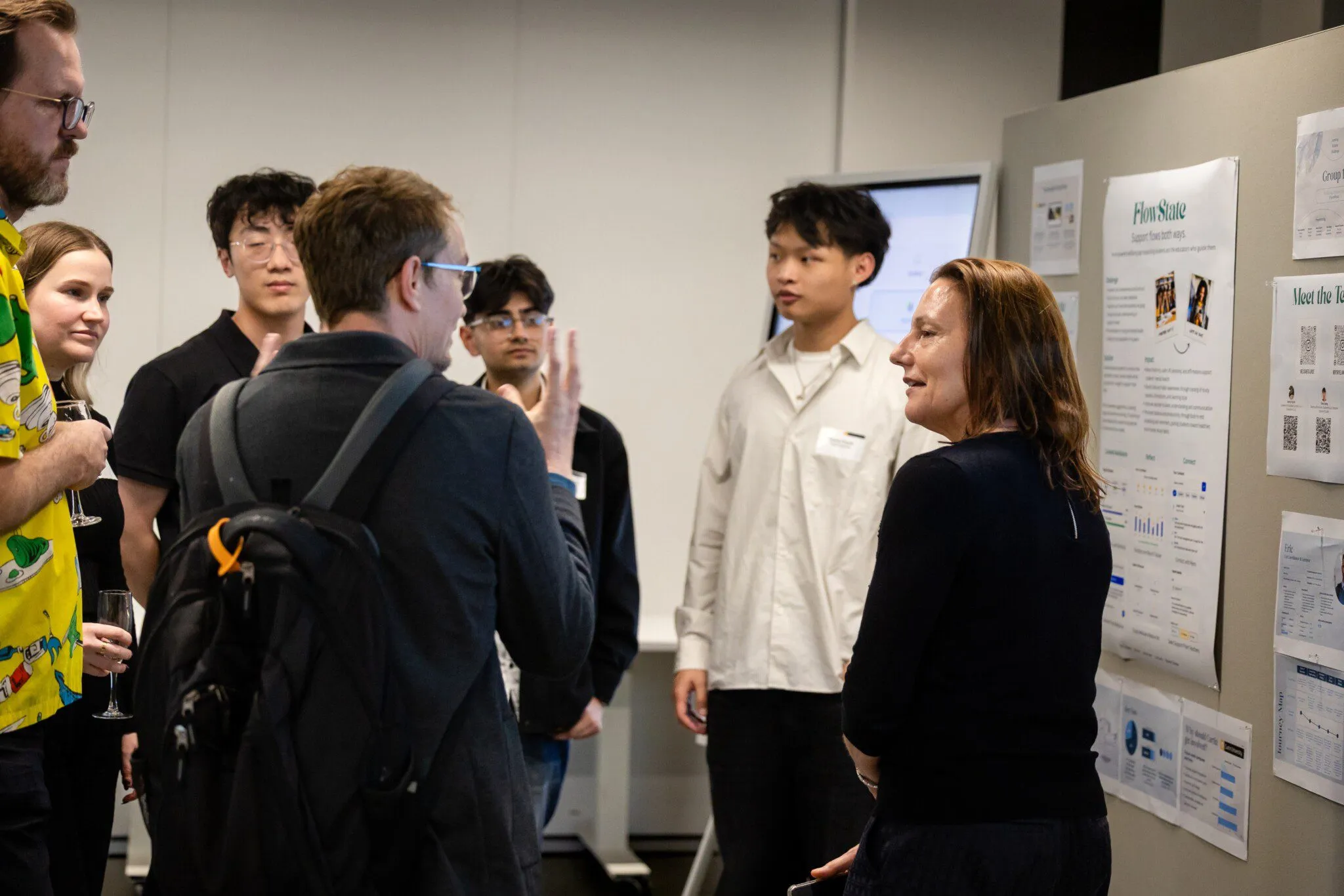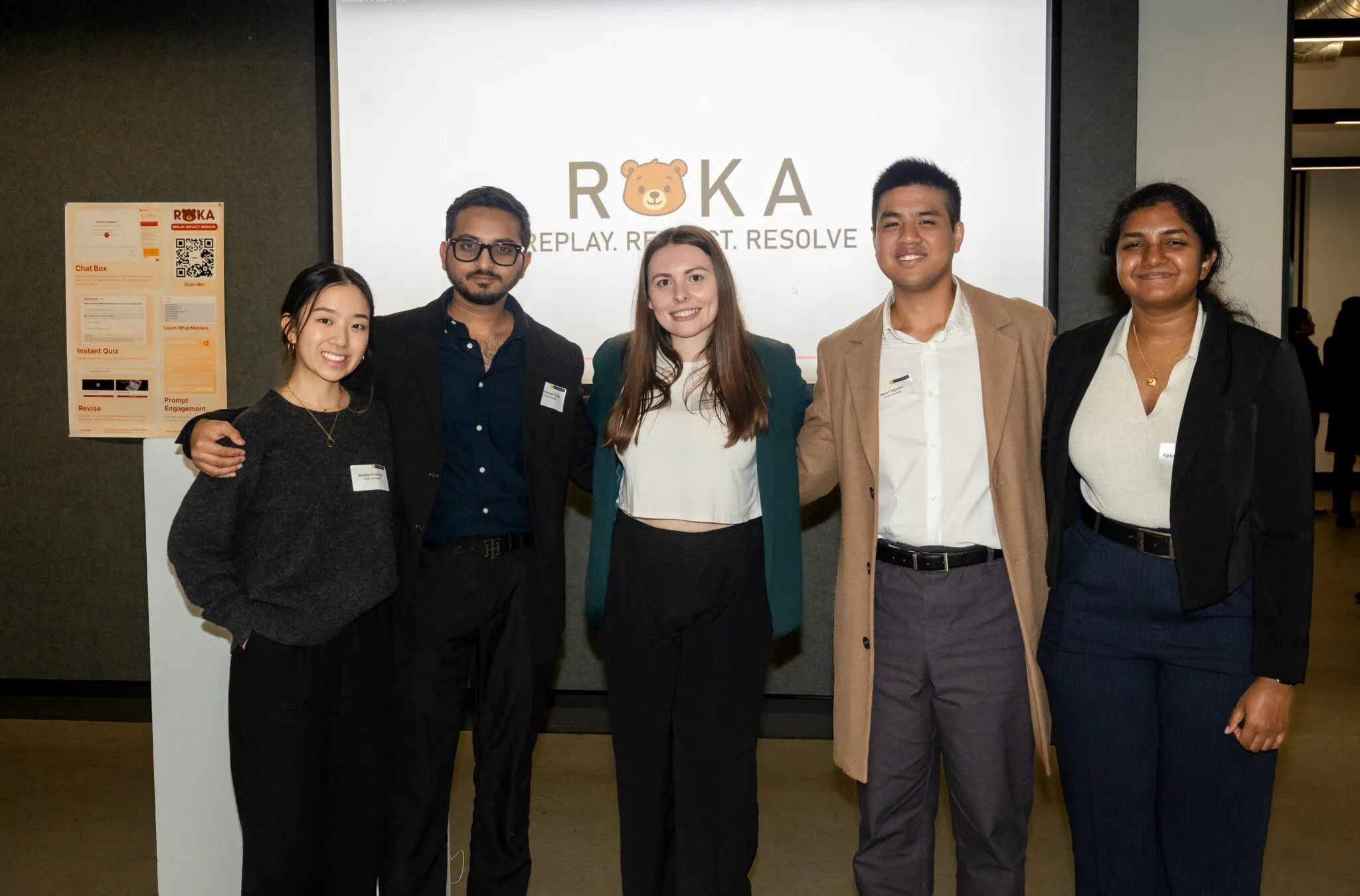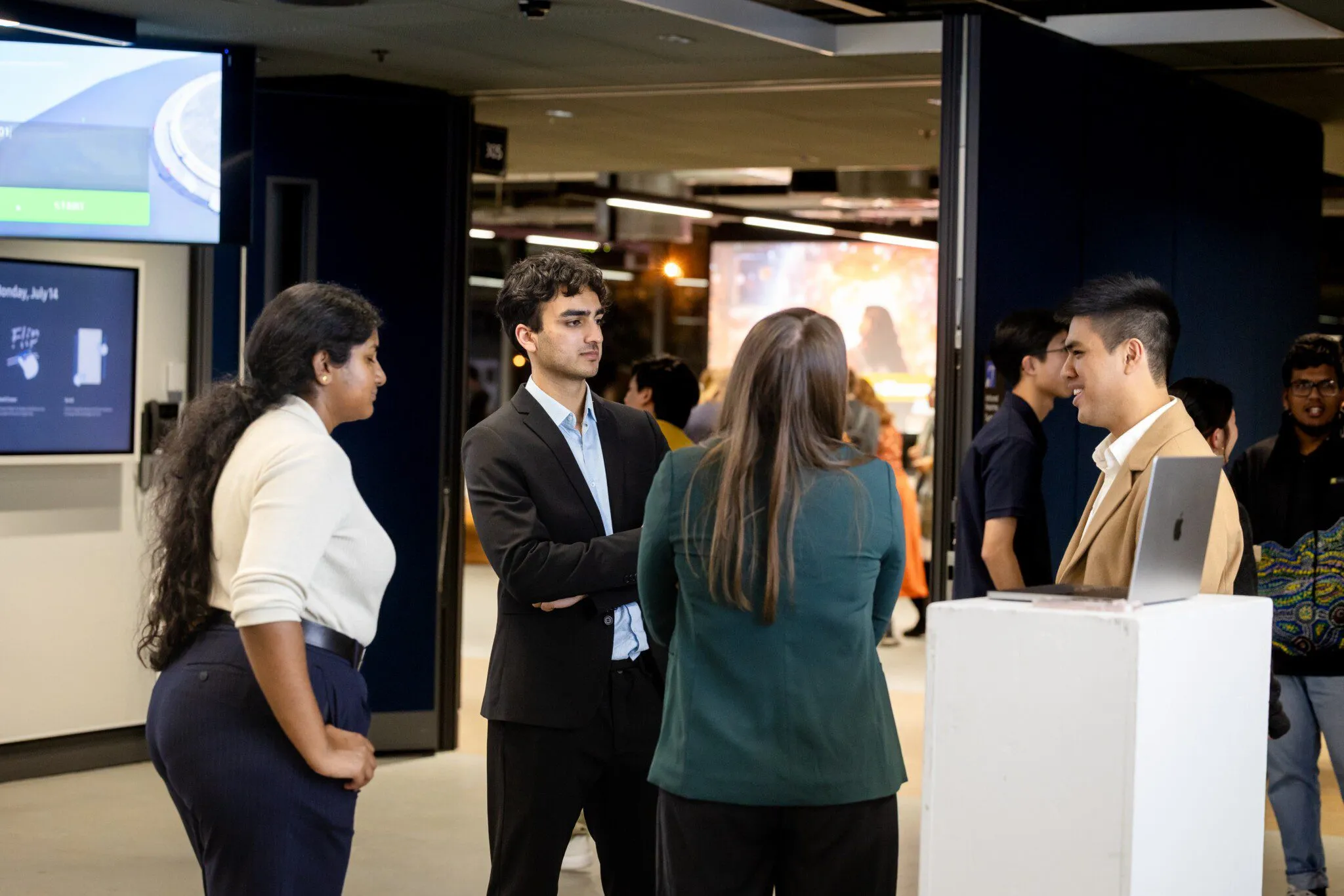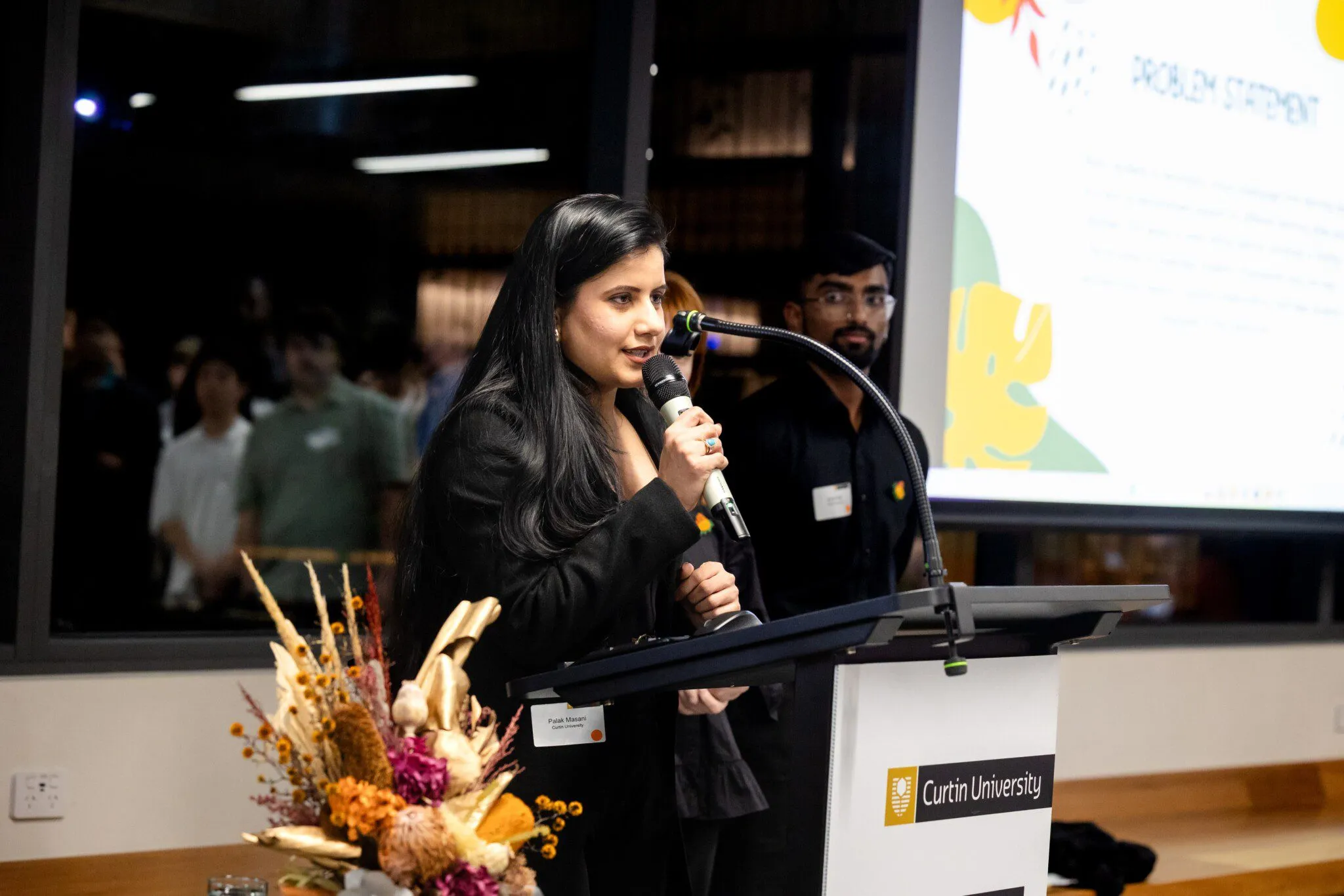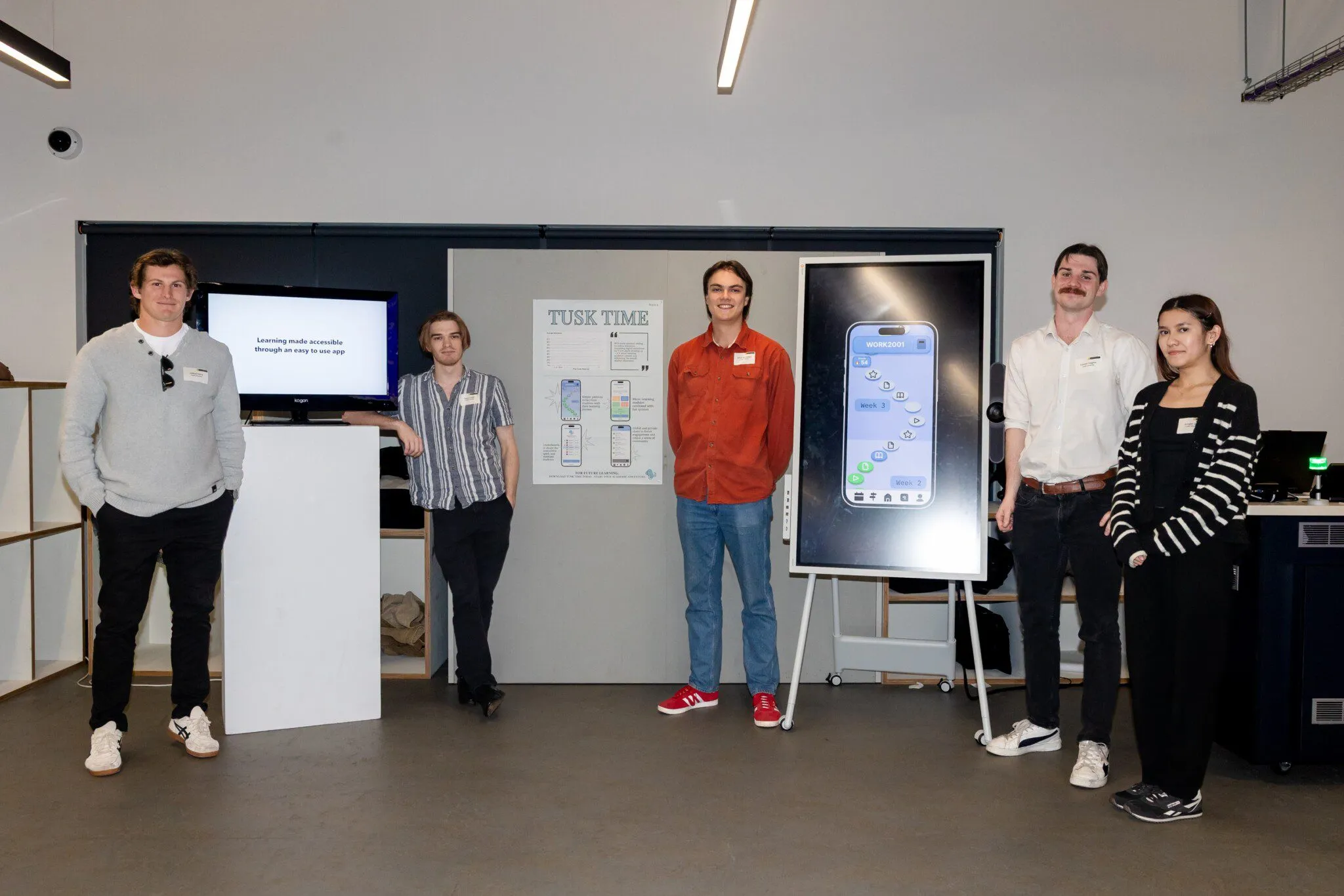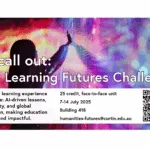Hosted by the Faculty of Humanities, the 2025 Learning Futures Challenge wrapped up last week with an inspiring showcase held on Monday. The program brought together students, industry partners and academic mentors for an intensive week of collaboration, creativity and critical thinking.
The Learning Futures Challenge is a challenge-based unit that invites students to explore topical issues and design and prototype innovative solutions for the future of learning. Over five days, students worked in interdisciplinary teams to explore real-world problems and reimagine what education could look like in an evolving digital and social landscape.
This year’s challenge was supported by leading industry partners including Viewport XR, OMG and Adobe, who mentored teams throughout the week. These collaborations gave students unique insight into current industry practices, emerging technologies and the expectations of future learners.
A Week of Creativity and Purpose
The showcase on Monday featured a series of student presentations, where each team pitched their concepts to a panel of staff, industry representatives and fellow peers. The ideas demonstrated a clear commitment to human-centred design, with many focusing on accessibility, mental health, personalisation and technology-enhanced learning.
Speaking at the event, Professor Richard Blythe, Pro Vice-Chancellor of the Faculty of Humanities, praised the depth of thinking and innovation shown across all teams.
“The Learning Futures Challenge creates a space where students are not only encouraged to think differently but to take ownership of the future. What we saw this week was thoughtful, brave and human. These students aren’t just responding to change, they are leading it.”
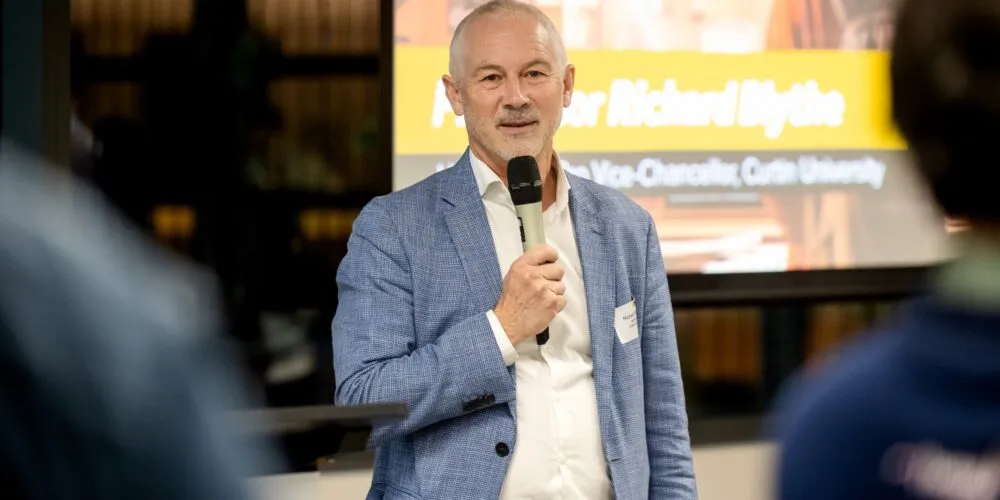
Jonathan Pillai, Dean of Learning Futures, reflected on the unique learning environment the challenge creates.
“This unit is a rare opportunity for students to work in multidisciplinary teams and to creatively respond to problems that matter with a human-centred design approach. We provided students the opportunity to frame the problems from their voice and authentically speak into the challenges of education as learners today. As a result, we have witnessed some powerful and innovative outcomes which truly challenge and envision a better future for education. In this short span of a week, it has amazed me and many others, to see how this challenge has inspired students and the future of education here in Curtin.”
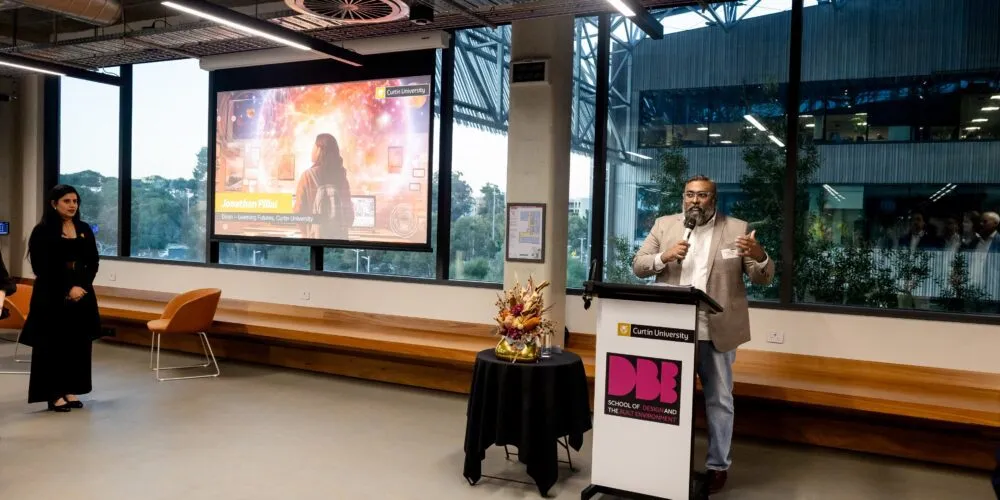
Project Highlights: Flow State and Vizora
Two standout concepts received particular attention for their originality, execution and relevance to current educational needs.
Flow State is a personalised wellbeing companion app designed to support students through their academic journey. Using AI and cross-device tracking, the app helps users monitor their study patterns, mood and mental health. In addition to personalised insights and real-time suggestions, Flow State also gives educators a broader view of student wellbeing, helping them provide more targeted and empathetic support. With a calming design and an emphasis on care, the app is both functional and deeply reflective of student needs.
Vizora is a smart browser extension that transforms passive lecture viewing into interactive learning experiences. When watching an online lecture, students can pause the video and prompt Vizora to break down a concept using visuals, simplified explanations and guided exercises. By integrating with existing learning environments, Vizora aims to make complex topics more accessible and encourage active learning, especially in online and hybrid classrooms.
A Glimpse Into the Future
While Flow State and Vizora were highlights, every project presented during the showcase reflected a strong understanding of both user experience and systemic change. Teams embraced bold ideas, whether through immersive XR environments, AI integration or emotionally intelligent design.
As the showcase came to a close, Richard Blythe reminded attendees that the future of education depends on this kind of student-led exploration.
“If we want education to be more meaningful, more human and more impactful, then we need to invite students into the conversation about how it’s designed. The Learning Futures Challenge does just that.”
Jonathan Pillai added that the work done during the week goes beyond the unit itself.
“This experience is not just about designing a solution. It’s about learning how to work with others, how to ask better questions and how to stay curious about what learning can be.”
The 2025 Learning Futures Challenge highlighted the role students can play in shaping the future of education. It also reaffirmed the importance of collaboration across faculties, industries and disciplines to create learning that is responsive, inclusive and ready for what comes next.
Learning Futures Challenge Highlight Video
Diary Room Highlights
Upcoming Learning Futures Challenges
To learn more about upcoming Learning Futures Challenges, please contact humanities-futures@curtin.edu.au
